What are your chances of acceptance?
Calculate for all schools, your chance of acceptance.

Your chancing factors
Extracurriculars.
How to Write the American University Essays 2023-2024

American University has one optional prompt for all applicants about why you want to attend AU. Additionally, the school has prompts for each of its special programs.
There are three prompts for Honors Program applicants, two prompts for Global Scholars Program applicants, three prompts for Lincoln Scholars Program applicants, three prompts for Politics, Policy and Law Scholars applicants, two prompts for Public Health Scholars applicants, two prompts for Sakura Scholars Program applicants, and five prompts for AU Emerging Global Leader Scholarship (International Students) applicants.
Since AU receives thousands of applications from academically strong students, your essays are your chance to stand out. In this post, we’ll discuss how to craft an engaging response to each of these options.
Want to know your chances at AU? Calculate your chances for free right now.
All Applicants Prompt
At american university, inclusive excellence is a cornerstone of the academic experience for our students, and we deeply value the learning that is inspired by the diversity of backgrounds and life experiences that all our community members bring with them. please share why you would like to join this community. (150 words).
This is a standard instance of the common “Why This College?” prompt . Unless this is the first college you are applying to, chances are you’ve already seen a prompt like this before. There are no tricks here; this straightforward prompt is meant to gauge your interest in AU.
The admissions committee will use your answer to determine how you fit with the University and how you’ll make the most of all its opportunities. To help them figure these things out, your essay should show how your personal goals and the AU’s resources intersect.
A good approach to an essay like this is establishing a connection with AU. There are two kinds of connections—tangible and intangible. Ideally, you’ll be able to establish both, but a good response will establish at least a tangible connection.
Establishing a tangible connection can be done by explicitly discussing resources and opportunities offered by AU that resonate with you personally. To have a strong, specific response, you’re going to need to do some research. Don’t fret if you haven’t done this before; we’ve created a handy guide to help you research colleges effectively!
To begin, try to find your desired major’s webpage by consulting this list of degree programs . You should also look into faculty members in your department. To do that, you can use this searchable directory to find your department, which will have its own faculty list. Finally, look into the wealth of centers, institutes, and initiatives at AU.
Here’s an example of what a successful, specific response might look like:
“I am from a multicultural family; my mother is Jewish and my father Muslim. This background exposed me to some profound discussions of geopolitical affairs from a fairly young age. I am fascinated by international studies and I wish to contribute to initiatives that aim to reduce conflict between Israel and Palestine. AU’s International Studies program at the School of International Service offers in-depth classes that are highly relevant to this passion of mine. RELG-475 Religion and Violence and SISU-319 Arab-Israeli Relations specifically will grant me insights into the religious roots of the conflict that I simply cannot learn by just talking to my parents.
I am particularly interested in the work of Professor Mohammed Abu-Nimer. My mother showed me his book Evaluating Interreligious Peacebuilding earlier this year, and I found his thoughts on conducting evaluations in conflict areas illuminating, as they explain some consequences of fieldwork.”
This response does a few things effectively. First, it gives the admissions committee an idea of who the student is and where she comes from. Second, it establishes her motivations and passions. Third, it specifically discusses several courses and the work of one of AU’s faculty members, as well as why those resources are important to the student. You can do all these things while remaining within the small word limit.
Besides describing the particular resources to intend to make use of, you might also wish to express an intangible connection with AU. This isn’t necessary, but it would add to your application if you can do it. An intangible connection is just what it sounds like—a connection that isn’t based on the tangible resources offered by the University. Often, an intangible connection involves alignment between your personal values and those of the institution.
For example, perhaps you’re deeply invested in environmental conservation. You’ll be happy to know that AU is “the first urban campus, the first research university, and the largest higher education institution in the United States to achieve carbon neutrality.” It also achieved this goal two years ahead of schedule! You could write a bit about how much you appreciate AU’s sustainability initiatives to your response to establish an intangible connection.
Finally, there are a few things you’ll want to avoid doing in your essay:
- Name-dropping. Don’t write a laundry list of activities, classes, or professors that interest you without explaining why those things are important to you. Even though you are discussing facets of the university, this essay needs to be primarily focused on you.
- Empty flattery. Anyone can write that “AU is a well-respected institution with an amazing international studies program.” It’s nice to compliment the university, but you don’t have a lot of space, and empty flattery suggests that you don’t have anything more substantive to say.
- Generic remarks. Talking about AU’s good location, a strong program in some field, or small class sizes won’t add much to your response. These are generic things that apply to many schools.
Make sure that you do ample research, develop nuanced reasons for choosing AU, and write a sincere response, and you will be off to a great start!
American University Special Program Essay Prompts
Click on the link to be taken to the special program prompts.
- AU Honors Program
- Global Scholars Program
- Lincoln Scholars Program
- Politics, Policy and Law Scholars Program
- Public Health Scholars Program
- Sakura Scholars Program
- AU Emerging Global Leader Scholarship
AU Honors Program Applicants, Prompt 1
Au honors students are distinguished by their sense of intellectual curiosity, both inside and outside of the classroom. tell us what you are most curious about, and how that curiosity has influenced your life thus far. (300 words).
This prompt is fairly broad, so you can approach it in a few different ways. We recommend writing a sort of blend between a “Why This Major?” essay and an extracurricular activities essay . Focusing on an aspect of your intended major will show your passion for something inherently intellectual, and throwing in some of your other interests/hobbies will add nuance and personality to your response.
Before you begin writing, you’ll want to gather your thoughts so that your essay will have structure. Think of the following questions as a way to focus your thoughts:
1. What piques your curiosity and interest the most? What are your authentic reasons for being interested in this thing?
2. What are some specific examples of things that you enjoy with regard to this interest?
If this is something you’re truly curious about, you shouldn’t describe it generically. Instead of thinking “I love reading,” think “I enjoy reading novels that explore existentialist philosophical themes.”
3. How might pursuing this thing serve your life and/or career goals?
Is your curiosity about this thing a driving force in your plans for your future? For example, are you so curious about ocean life that your biggest life goal is to become a marine biologist?
4. Is this interest primarily academic or extracurricular? What are your best experiences with this interest both inside and out of the classroom?
5. Is there any recurring emotional experience that you have when exploring this thing that piques your curiosity? Why do you find that experience or state of mind appealing?
6. How has this thing influenced your development as a person? Have you developed or strengthened any personality traits or skills as a result of your object of interest?
Questions 4, 5, and 6 will be especially helpful when you’re trying to recall some anecdotes to support your interest and curiosity in it.
You only have 300 words to work with, so you should keep your response limited to one thing you’re deeply curious about (or maybe two if they’re related). A strong essay will do a few things:
- First, it will show that you have nuanced interests with intellectual depth.
- Second, it will talk a bit about the trajectory your life has been on as a result of your interests.
- Finally, it will display an important part of your personality that can give the admissions committee an idea of who you are as an individual.
There are a couple of common mistakes you should avoid when writing your response:
- Picking the wrong topic. Bad topics include: an interest you already wrote about somewhere else in the application; an interest that sounds impressive, but that you aren’t very invested in; one you haven’t spent much time on.
- Writing a generic statement about why the interest you chose is interesting or cool without addressing the personal connection you have with it. It’s great to appreciate your own interests, but you need to show the admissions committee why the thing that makes you curious is so important to you.
Some examples of strong topics would be:
- A student who’s a second-generation Japanese immigrant might be curious about the relationship between language and identity. She’s noticed while learning Japanese that it’s easier to have more complex conversations with her parents in their native tongue, and that they’re better able to express their personality. And as she’s become more comfortable speaking Japanese, she’s able to connect more with her heritage. This has led her to attend local language exchanges and start a podcast about the stories of the attendees and their thoughts on language and identity. She hopes to study Japanese at AU and become a translator.
- A runner who got tendonitis in his junior year may be curious about how the tendons and ligaments in our body work to support us during exercise. After doing physical therapy and healing his tendon, he decided to take an anatomy course and shadow his physical therapist. He wants to become a physical therapist or sports medicine doctor to help other athletes rehab their injuries.
AU Honors Program Applicants, Prompt 2
What aspect of the au honors program piques your interest the most (300 words).
This prompt is a slightly more specific version of the “Why This College?” prompt . However, you’re being asked why you’re drawn to the AU Honors Program in particular rather than to American University as a whole.
The prompt is meant to assess a few things:
- First, it’s meant to see if you know what you’re getting into with the program. If you’ve done your research on the Honors Program, you should have something detailed to say about it.
- Second, it’s intended to determine how you will fit in the program. The admissions committee wants to know what role you’ll have in the program and how you’ll make use of its resources to achieve your goals.
- Finally, it’s an effective way for the admissions committee to see which students are genuinely interested in the program.
Before you begin writing, make a list of the reasons you decided to apply to the program. You might find it helpful to explicitly jot down the things that drew you to the Honors Program in the first place. One of these reasons might very well be the subject of your essay. You should also explore the Honors Program website to make sure you don’t miss any of your reasons.
The prompt asks specifically for the aspect that most piques your interest, so you have to figure out if you want to write about an academic reason, an extracurricular one, or an intangible one. Let’s go over what makes each of these unique.
Academic reasons are as straightforward as they sound. Things such as the Honors Colloquium courses, the Honors Capstone , and research opportunities are academic aspects of the program that you might want to write about.
Extracurricular reasons include activities and opportunities that are supplementary to academics. Things such as Honors housing , the Student Advisory Council , and the Honors “Have You Ever Wondered?” discussion series are extracurricular aspects of the program.
Intangible reasons are those that involve values, beliefs, and other nonphysical things. The program’s commitment to interdisciplinary thinking and the BIPOC Affinity Group ’s dedication to “an empowering and supportive environment” are examples of intangible aspects of the program.
Your reasons for being interested in the program don’t have to be the most exotic or outlandish; you can write an effective straightforward response to this prompt. The thing that piques your interest the most might be the Honors Colloquia, the opportunity to engage with Program Associates, or the opportunities in Honors housing. All these options are valid ways to establish a tangible connection with the program.
For example, consider a student who wants to do political science research in her future career. She might be most interested in the Honors Program’s curriculum. Her response can cover the rigorous nature of the program, discuss some of the Honors-specific courses, and talk about the ample opportunities to conduct undergraduate research (such as HNRS-398 Honors Challenge Course and the Honors Capstone).
Avoid name-dropping random courses, activities, or faculty members without elaborating on how they resonate with you personally. Doing so will make your interest look superficial or disingenuous.
As long as you can describe what in particular has drawn you to the Honors Program as well as why it did so, you will be able to write an effective response to this prompt.
AU Honors Program Applicants, Prompt 3
We all have meaningful experiences that shape us and inform our worldview. what aspect of your background would you most like to share with other students in the honors program (300 words).
This is, in essence, a version of the common diversity prompt that many colleges provide. Colleges often include diversity prompts so they can learn something about your personal background and its influence on your worldview.
In June 2023, the United States Supreme Court struck down the use of affirmative action in college admissions. Nevertheless, the ruling allows colleges to consider race on an individual basis, which is one reason many schools are now including diversity prompts as one of their supplemental essay prompts. If you feel that your racial background specifically has impacted you significantly, this is the response in which you should write about that.
More generally, you can respond to this common prompt with a fairly traditional answer. One tried-and-true method you could use involves identifying the most important part of your identity, then discussing how that aspect of your background is relevant to you and your life experiences.
Before you jump into writing your response, think of aspects of your background that may have had an impact on the way you look at the world or the way you live your life. Some examples of things that have likely influenced your worldview include:
- Personal identity. Your race, ethnicity, gender identity, sexual orientation, age, etc. all have a profound influence on the way you think and perceive the world.
- Cultural identity. Your religious affiliations, political views, socioeconomic status, social class, and even the place you are from influence what issues you see the most, and what solutions you envision for these issues.
- Personal history. Things in your life may have an average trajectory. Maybe you’ve had a fortunate life with few obstacles to overcome so far, or maybe you’ve experienced a great deal of adversity or tragedy. The way things generally tend to go in your life will have a great impact on how you view life and the world around you.
- Interests. The things you’re really invested in can change how you perceive the world. If you’re a musician, for example, you might find musicality in the most mundane sounds out in the world on a daily basis.
That said, there are several angles with which you could approach this prompt. Some more specific examples of aspects of identity you might write about include:
- Having a disability that has changed your perspective on something in the world.
- Being a member of an ethnic group that has an interesting cultural practice.
- Fluency in another language that you use to help members of your community.
- Being a member of a fandom.
You have 300 words to work with, which is a considerable length, so feel free to structure your essay using an anecdote. You might begin with a time when your worldview was different, then describe how it changed due to the aspect of your background that is the subject of your essay.
One thing you should avoid is simply listing out things that generate diversity. Diversity includes everything mentioned above and more, but just writing out a list of things contributes very little to your application and also fails to respond to the prompt. The prompt asks you which singular aspect of your background you would like to share, so make sure to choose wisely and elaborate.
This prompt is one of the few opportunities you have to showcase your unique perspectives. Whatever aspect of your background you choose to write about here, make sure your response is sincere. Try to show as much individuality and specificity as you can in your response.
Global Scholars Program Applicants, Prompt 1
In your view, what is the greatest challenge facing humanity today and how do you envision yourself being part of the solution (no word count given).
In this prompt, you are asked to give your opinion on the greatest challenge facing humanity today. This sounds like a very tall order, but don’t worry; it’s an opinion question, so any reasonable challenge you choose will be fine.
Admissions committees want to see specifics, so we often recommend not identifying too broad a problem. In the brainstorming stage, however, you can think as broadly as you’d like. Global poverty, world hunger, illiteracy in developing countries, human rights abuses—each of these things can be an effective starting point.
Thinking about your identity and values might help you determine which issues are most important to you. Aspects of your identity include your ethnicity, race, country of origin, language, religion, gender identity, sexual orientation, hometown, income class, socioeconomic status, illnesses/disabilities, and even interests and activities!
Consider these different aspects of your background and list broad world issues that may have an impact on some part of your identity. For example, you might be Ukrainian and have family members directly affected by the current war. In this case, your ethnic background may compel you to write about geopolitical conflicts or human rights issues.
Be sure to narrow your topic to something specific once you begin writing. Even though the prompt asks what you think is “the greatest challenge facing humanity today,” you should be prepared to discuss concrete examples of that challenge.
For instance, if you want to write about world hunger, try to also describe particular situations and specific problems related to that broader issue—some things you might want to examine in such an essay can include widespread food and water shortages in Venezuela as a result of governmental policies, hunger in Haiti due to food insecurity and currency inflation, and the impending famine in Sudan as a result of internal conflicts.
The aforementioned examples can add a great deal of nuance to your essay for a couple of reasons. First, citing specific instances of your chosen challenge goes beyond simply stating that your challenge exists. It creates tangible reasons to be concerned about the issue. Second, having a few concrete examples demonstrates that you are informed and knowledgeable about the issue.
Once you have decided on a global challenge and have thought of a few examples to support your point, reflect on how you might be able to contribute to a solution to this problem. This program is offered by the School of International Service, so you will be pursuing a degree in International Studies.
You might already have some ideas about how you wish to help solve your chosen problem, but your essay will be even better if you can connect your goals to the school and degree. Read up on the BA in International Studies and the Global Scholars Program to inspire your writing!
There really is no wrong way to envision yourself as part of the solution. Consider the following hypothetical students to see how contributions can vary:
- A student who’s passionate about the environment might say that climate change is the greatest challenge facing humanity, and might describe how it has devastated different communities around the world, including his small coastal town, which has experienced worsening floods. He might hope to major in International Studies to eventually work in the United Nations and be a part of climate change conferences and agreements.
- A student who wants to be a doctor might say that lack of access to good, inexpensive healthcare is the greatest global challenge. She could describe how the U.S. healthcare system fails many low-income people, and how poorer countries lack the infrastructure and resources to treat easily treatable illnesses. She hopes to go to medical school then join Doctors Without Borders to help those in conflict zones and those facing disasters get the treatment they need.
This prompt is meant to gauge which global issues you deem important and how you intend to use your college education and degree to contribute to ongoing efforts to solve these issues. You’ll have a strong essay as long as you’re sincere and write about a problem you’re personally invested in.
Global Scholars Program Applicants, Prompt 2
Describe a situation in which you had to work harder than you expected. when and how did you know that your current efforts were not enough how did you adjust (500 words).
This prompt asks you to describe a time in your life when you faced a challenge that required you to put in an unprecedented amount of time and effort. What you choose to write about doesn’t have to be a singular experience; a situation in this context can be something much larger.
You can choose to describe any experience—academic, personal, extracurricular, and so forth—in your answer. Like most other prompts, the key will be in how you not only relate your chosen situation to your personality, but to the Global Scholars program at large.
Think first about your identity and your environment—are there any distinguishable experiences in which you have always felt that you’ve had an uphill battle or unfair disadvantage? Think about periods of your life in which you may have had to undergo a major transition or change.
Regardless of the situation you choose, remember that the best answers come out of asking yourself questions. This applies equally to a situation you may describe that does not involve your identity or environment—you can also approach this prompt by thinking about any life-altering events that forced you to pivot or make a change.
For example, maybe COVID-19 left one or both of your parents unemployed, and you had to pick up a job on top of your schoolwork. While you may have expected to be able to handle the part-time job, perhaps you saw your schoolwork and relationships begin to slip through the cracks and you were forced to really reevaluate your time management skills.
You may end up writing about an experience that is similar to that of other applicants, so it’s how you relate it to yourself and to your environment that will make you stand out from the crowd. Make sure you continue to emphasize your emotions and honesty throughout your answer, and lastly, try to relate your chosen experience back to the Global Scholars program at large.
You can conclude by writing about how you hope to apply what you learned from your life experiences to your participation in the Global Scholars program—how you hope to apply your newfound understanding of various financial or personal circumstances to learning about various cultural and global circumstances.
Lincoln Scholars Program Applicants, Prompt 1
Tell us about a morally complicated text that you think would lead to good discussion for first year college students. in what way is the text morally complicated and why do you recommend it (no more than 500 words).
This might seem like a daunting prompt, but it can be easier than it seems. Don’t worry about having some grandiose, impressive tome to talk about for this essay. If you think creatively, you should be able to identify moral complications in simpler texts. This is the kind of essay that really benefits from careful argumentation.
Brainstorming your topic:
There are two kinds of texts that would probably make for a strong essay:
- Texts you’ve read recently, which should still be fresh in your mind
- Texts you’ve read a long time ago and still remember because they were impactful or profound to you
It’s important that you pick one of these kinds of texts because you’ll want to write about something you know well enough. If you choose a text that you don’t really remember, or worse, a text you haven’t read that looks impressive, your points will probably be shallow and superficial, which will drag the overall quality of your essay down.
As far as the text itself is concerned, you can write about nearly anything (just make sure it’s not too trivial, like a children’s book). Perhaps you have read a clearly morally complex text, such as Victor Hugo’s Les Misérables or Harper Lee’s To Kill a Mockingbird . If you have, and you remember the details well enough to explain your choice, then by all means write about it!
However, if you haven’t read a text like that, that’s fine too. Think of things you’ve read recently that have moral dilemmas you might discuss. For some idea on how you might stretch the theme of morality, consider some examples:
- Lois Lowry’s The Giver, a young adult novel, discusses themes related to individuality and emotional depth and can be pitted against order and conformity. This moral conflict leaves a lot of room for debate, as the balance between individuality and societal conformity is one that is often hard for individuals to navigate.
- Marvel Comics’ Civil War, a seven-issue comic book storyline from 2007, has a plot centered around the U.S. government requiring super-powered individuals to reveal their identities to be superheroes under official regulation. While this may not be a traditional text, it has been acclaimed for its exploration of the conflicting desires of security and freedom that are still discussed in American politics today.
- Walter Isaacson’s Steve Jobs, the authorized biography of Apple’s co-founder, is a thorough look at the life of the controversial business magnate. It discusses not only his great achievements in the worlds of business and technology, but also his personality, which has been described as abrasive or difficult at times. This text allows students to examine the ways in which massive corporations, their employees, and their consumers can be directly affected by the very human individuals who lead them.
As you can see from the above examples, you can find and argue for moral complications almost anywhere you look. You might use a traditional example of a large, classic novel with clear and distinctive moral ambiguity, or you might explore some more creative options, such as biographies, YA novels, and even comic books or graphic novels!
Tips for writing your essay:
A good response will answer every part of the prompt. You should strive to identify the text, explain how it’s morally complicated, and detail your reasons for recommending it. The first and last part shouldn’t be too hard once you’ve settled on your text—naming the text and talking about why you’re recommending it are tasks that you can probably do easily if you know your chosen text well. After all, you know why you like the book.
It’s the second part of the prompt that will require some more careful thought. Effectively explaining how the text is morally complicated is only something you can do if you’re familiar enough with the text and its themes. Oftentimes, the moral complications of a book aren’t directly relevant to the plot—they’re often a thematic consequence of a character’s actions or are intended to be seen behind the main narrative, but not the focal point of the text itself.
That said, it might actually be a good idea to consult online summaries, videos, and study guides of the text you chose. Of course, you should absolutely have read the text and have a decent grasp of its material, but this isn’t a test for school—you can and should see how the moral themes are discussed by other readers. This will inform your argument that this text should be used in discussions among first year students.
Mistakes to avoid:
There aren’t too many ways to tackle this prompt incorrectly, but there are a couple of things you should avoid , which have already been mentioned but are worth repeating:
- Choosing a text you aren’t familiar with, just because it looks more impressive. It’s better to write a thoughtful, intelligent essay on a text that might be seen as lackluster than to write a shallow, generic essay on a text seen as impressive. Remember, the admissions officers aren’t making decisions based on books you have or haven’t read—they’re making decisions based on the quality of your essays.
- Choosing a trivial or juvenile text. Most young adult novels should be complex enough to be valid texts for this essay, but don’t try to be overly creative by writing about something for little children. Children’s books are intentionally written in a way that does not deal with the complex, intellectual themes that you’re tasked with discussing here.
As long as you pick a decent text (i.e., one you’re familiar with that isn’t too trivial), describe the ways in which it deals with questions of moral complexity, and make a good case for its use in Caltech’s first year classrooms, you’ll be well on your way to crafting a strong response.
Lincoln Scholars Program Applicants, Prompt 2
One goal of the lincoln scholars program is to encourage intellectual and political diversity on campus. what does this goal mean to you and why does a program with this goal interest you (no more than 500 words).
This prompt puts a specific spin on the common “Why This College?” and “Why This Major?” prompts, with a couple of key differences:
- First, you’re asked about a particular goal and what it means to you.
- Second, rather than discussing the University as a whole or a particular major, you’re tasked with describing why a program like the Lincoln Scholars Program appeals to you.
Make sure to address both parts of the question to have a full response. You have up to 500 words to work with, so you can really go into detail about each part. A good approach would be to answer each portion of the question in turn.
Before you begin writing, think about what intellectual and political diversity mean to you. Note the wording of the prompt: “What does this goal mean to you?” You can take advantage of the nuanced meanings of the word “mean.” In a literal sense, the question is asking how you would define such a goal. But in another sense, it’s asking why the goal is significant or important to you.
It might be helpful to jot down some bullet points that you might want to build on in your response. You might end up with a list that looks something like this:
- Having a group of people with different fields of expertise work on one project from various angles
- Different viewpoints creating points for intellectual debate
- Multiple people of various backgrounds informing each other’s perspectives
- Generating varied approaches to the same problem with the shared goal of solving it
Whatever you think of, try to come up with a solid personal definition of intellectual and political diversity. From there, you can begin to describe why these kinds of diversity are important to you. Using an anecdote-driven narrative to explain this point is a good approach. For example, perhaps you participated in a school project in which a different perspective was the one that led to a solution. Or, maybe you were part of a debate club and learned to see a topic differently because of a well-informed persuasive argument on the other side.
As you develop your thoughts on why such a goal is important to you, transition into a discussion of the program and why it interests you. Here, it’s essential that you establish a connection to the program. Do some research on the program’s webpage to learn about resources and opportunities that are offered.
Perhaps one of the program’s courses is appealing to you because of its content. Or, maybe you resonate with the program’s mission “to explore the great questions of moral and political life in a context of intellectual and political diversity.” Be sure to describe how and why a program like this piques your interest.
Connect the goal of intellectual and political diversity to your personal goals and values. This is the strongest way to convey your interest in the Lincoln Scholars Program and in exploring big questions from multiple viewpoints.
Lincoln Scholars Program Applicants, Prompt 3
List five texts, magazines, movies, websites, podcasts, music, or other media that you regularly engage with and explain briefly why you like each one. please list a variety of types of media. (1-2 sentences per item, no more than 400 total)..
This is a more niche prompt that you probably haven’t seen often, if at all. Luckily, there’s really no right or wrong answer! In fact, the program’s webpage lists some of the books that students have applied to the program with this year, and they include all kinds of works—ancient epic poems, classic novels, niche novellas, poetry collections, philosophical dialogues, and memoirs!
AU is curious about what interests you, how you think, how you’ve developed intellectually, and how you may have challenged yourself with the media you consume. Choose your examples carefully, but also be honest.
One great way to think about this prompt is through the idea of a “capsule wardrobe.” In a capsule wardrobe, each piece of clothing is unique and works well on its own—you might have a graphic tee, a leather jacket, a button-up shirt, and a few pairs of jeans. Even though each article of clothing has its own character, each also works toward your overall style—the entire wardrobe. Combining items into outfits can highlight different aspects of each item as well as similarities they share
The same idea applies to the texts, movies, websites, and music in your list. Each item should be compelling on its own, but should also contribute to the wardrobe that is your intellectual style. A great list will have items that complement each other, like a belt that matches with a pair of shoes. Some more style tips:
1. List items that build on each other. You want your list to have synergy . Just like wearing two matching items together can convey your sense of style, including two similar items in your list can display a sustained interest in a subject. For example, if you include both Romeo and Juliet and West Side Story in my list of films, you’re showing the admissions officer that you’re interested in exploring how the same story has been interpreted by different creatives from different times and places. Neither Romeo and Juliet nor West Side Story could demonstrate this idea alone—when included together, the message is greater than just the sum of its parts!
- Show multidimensionality. There’s something to be careful about. It’s possible to show sustained interest in a topic without indicating growth, and this is something you’ll want to avoid. For example, if your entire list consists of true-crime podcasts, it will look a bit one-dimensional and bland because each item effectively conveys the same message. Aim to list works that show your interest in the multiple angles of a topic. For example, listing the true-crime podcast Serial and Criminal Perspective as well as the journal Psychological Review and a blog on forensic psychology will add levels of intellectual nuance to your interest in the broad theme.
- Don’t overdress. You might want to only include the most impressive, difficult, intellectual media you’ve consumed to show that you’re intelligent and academic, but too much of that will probably make you look like you’re exaggerating for the admissions committee. Instead of doing that, balance the weightier, deeper items with some more relaxed or jocular ones. Hawking’s A Brief History of Time and Einstein’s Relativity: The Special and General Theory are going to look less like you’re pandering if you include something like Hitchhiker’s Guide to the Galaxy in your list. Balance the intellectual interests you wish to show off with your some distinctive personality.
- Don’t underdress. The opposite of the previous tip is also true. While throwing in some fun little books, movies, or music can add some dimension and personality to your list, they shouldn’t be the only things you include. You absolutely can (and should) include a sitcom or a non-academic novel on your media list, but make sure you don’t overfill the list with items of lesser substance. Also avoid including items that are too juvenile. Think smart casual clothing—you don’t need to wear a suit everywhere you go, but some places (like this supplemental essay) require a bit more than sweatpants and flip flops. Some nice jeans and a polo can be enough.
- Recognizable brands can be effective. Mentioning a couple of notable pop culture items will increase your list’s relatability in the admissions officer’s eyes. And, psychologically speaking , similarities on paper can help you in non-personal interactions. Just make sure you pick something that is well received both critically and by the masses, like a Beatles album or the movie Parasite —something that you and your reader could have a robust intellectual debate about.
- Moderation. If it’s not already clear by now, making a strong list is going to be a delicate task. You’re going to need to find the middle ground between casual and intellectual, specific and general, fiction and nonfiction, books and movies, etc. Don’t wait until the last minute to cobble together a list of random things just because this isn’t a fully fledged essay. Remember that you still need to explain and defend your choices. Devote as much time to this list and you do to your essays. The list reveals as much about you as an individual as a full essay does—be sure to treat it with the same respect.
- Be honest! You may be asked about this list somewhere down the road during the admissions process. Don’t get caught off guard by what you’re passing off as your own list. Nothing is more embarrassing and detrimental during this process than not having a clue about something you purport to have read/seen.
Politics, Policy and Law Scholars Program Applicants, Prompt 1
The politics, policy, and law scholars program is an intensive course of study in which students from diverse backgrounds live and learn together. given its intense and unique nature, why do you want to be a part of the program why do you think you would be a good fit for the politics, policy and law scholars program (250 words).
This is essentially a “Why This College?” prompt , but applied to a special program rather than AU as a whole. Moreover, in addition to describing how the program is a good fit for you, you’re tasked with describing how you are a good fit for the program.
Brainstorming your essay:
A recommended strategy for prompts like this is to establish a connection to the program. Two kinds of connection you might try to establish are a tangible connection and an intangible one.
A tangible connection can be made by identifying specific program offerings that resonate with you personally. To find such resources, you should do some in-depth research on the program. A good place to start is the PPL Scholars website . There you’ll find the course of study, the applicable majors, information about the living learning community, and more.
You might write about things like the campus culture, specific classes or academic opportunities, particular professors, etc. Given the rather low word limit, try to stick to academic features, as others might come off as less important.
An intangible connection can be made by discussing how your personal values align with those of the program. The PPL program emphasizes “the principles, practices, and institutions of politics and law from quantitative and qualitative, philosophical, and social science perspectives.”
If your personal values deeply resonate with the ideas of practicing law, government, public policy, criminal justice, or a similar field, you might wish to discuss how those values will be supported and informed by those of the program. Be sure to take a look at the PPL Scholars FAQ webpage to get a little more insight into the program.
Since you only have 250 words to work with, it would be a good idea to choose either a tangible connection or intangible one to discuss, rather than both. Remember, you need to save some space to discuss how you’re a good fit for the program.
Also note that it’s okay if you can’t develop a really strong intangible connection to the program—that is usually the harder kind of connection to write about. A strong tangible connection and a good explanation of how you’re a good fit for the PPL Scholars Program will make for a good response.
For example, consider a hypothetical student whose mother is a lawyer and whose father is a police officer. She might feel deeply connected to issues of justice and reform through the stories her parents tell her. She might write a response that begins like this:
“My parents are both deeply involved in the legal professions—my dad is a police officer and my mom is a lawyer. They have told me how the justice system isn’t perfect—both of them have seen the system succeed and fail many times. The passion with which they describe their careers has inspired me to go into a legal field too.
Having been raised by two parents in intense careers in legal fields has given me the resolve I will need to undertake such a career myself. I believe that my passion and determination, as well as my existing background knowledge about these fields make me uniquely equipped to take on the challenges of the Politics, Policy and Law Scholars Program…”
This excerpt is an excellent start to this prompt because it explains the unique features of the students past that equip her with the skills needed to succeed in the PPL Scholars Program. Note that this blurb is only half the word limit, which should give you some perspective on how much detail you might go into.
With prompts like this one, there are three things you will want to avoid doing in your response. These include the following:
- Name-dropping. It looks superficial and insincere to simply name certain courses or professors without elaborating on the ways in which these resources are meaningful or useful to you.
- Empty flattery. Don’t waste your word count talking about the prestige of the program or the University. There’s nothing wrong with being nice, but overdoing that in a prompt with a word limit might lead to you writing an essay that doesn’t answer the question.
- Naming general resources that are applicable to many schools. Don’t base your essay on things like good class sizes, strong political science courses, a nice location, etc.—these things apply to many schools and programs, and don’t showcase a personal connection to this particular program.
Politics, Policy and Law Scholars Program Applicants, Prompt 2
The living learning community and cohort aspects are integral parts of the politics, policy & law scholars program. describe a specific project, course, or other experience that required you to work with others toward a shared goal or to resolve conflict and build consensus. how did you contribute to accomplishing the goal or resolving conflict how did you engage with others how has this experience prepared you for the ppl program be specific. (250 words).
This prompt asks you to elaborate on a team-based problem-solving experience that will give the admissions reader insight into how you will fit in with the PPL program at large. As an intensive program, PPL requires all students to be a part of their Living Learning Community, meaning that you’ll be working alongside fellow PPL students both in and outside of the classroom. As such, the admissions committee wants to ensure that you’re able to support a larger community of like-minded (or even sometimes diversely minded) students.
First, think back over your time in high school and try to identify any large-scale projects that you were involved in with a group. At the same time, keep in mind that this response should not just be more explanation of something that may already appear on your application. When selecting what to write about, try to fill in the gaps your application has.
For instance, perhaps you were on the Executive Board of Model UN, and hope to share an experience about how you organized a conference hosted at your high school. While that’s definitely a valid experience, this answer should be less about the what and more about the how .
How did that conference come together? How did you delegate responsibilities among your peers and which responsibilities did you take on? What challenges or obstacles did you face as a team and how did you overcome them together? Did you have to work through any conflicts when working with one another?
Ultimately, reflect not only on your accomplishments with whichever experience you choose, but also on the failures, conflicts, and honest strategies you chose to employ to keep the ship afloat. The next step will be highlighting the crucial lessons that the experience taught you, and how you hope to apply those lessons to your time in the PPL program.
In order to brainstorm how you wish to close out your response, remember that the PPL program will require you to live and learn alongside your peers—make sure your answer emphasizes that you were able to come together as a group to tackle a complicated problem, and ultimately come out not just successful, but as a closer group overall.
Politics, Policy and Law Scholars Program Applicants, Prompt 3
You have been hired to advise a member of congress or a state legislator (you can choose which one, but you should pick one) about the issues that affect americans aged 18-26. you have been asked to identify one legal, political, or policy issue that will resonate with this group of americans and recommend a policy proposal that he or she should support and promote. explain the issue, explain why the elected official should highlight it, and propose a specific original policy solution. provide support for your proposed solution. your proposal should not simply be to support another individual’s already created policy. (650 words).
This prompt is less of a by-the-books response and more of an exercise, asking you to not only identify a major issue facing the country but also persuading a hypothetical elected official to pay attention to it and also brainstorm a possible solution.
The purpose of this prompt is to get a sense of your level of political engagement, as well as to give you a chance to attempt your first case study, which will serve as a gateway to the PPL program at large. This essay will require thorough research and deliberation, but, at its core, it’s just an expanded version of a typical Political/Global Issues prompt.
First, decide the scale of your chosen issue. Trying to brainstorm a list of possible issues to focus on will end up generating a laundry list of options, and might exhaust your brain before you even begin writing your response.
Something that may help guide you is remembering that you should have a unique perspective on your chosen issue. For example, you wouldn’t want to write your response about something general like the dangers of climate change if you genuinely don’t have anything to add to the conversation—the point is not to reiterate discourse that is already out there, but rather to think creatively and critically about the world and the ways in which your unique perspective can be valuable in trying to solve your chosen issue.
Therefore, it may be more useful to start small and then expand outwards. Look at your environment—what issues impact your community, your state, or your region? Looking again at the issue of climate change, perhaps you come from a state where fracking is not only legal, but still actively occurs. Perhaps your own family or a family you know has ties to the fracking business, and you feel as though current legislation and efforts to outlaw fracking stall because of pushback from these communities.
Tie your belief to your perspective—you may believe that fracking should be illegal, and your perspective can guide you in persuading an elected official to provide various incentives to those who rely on fracking for their livelihoods. As such, starting small will make your answer more specific and unique while still tackling a national issue like climate change.
If you don’t feel as though your environment has given you a distinct perspective on a current event, do some research on what issues have most recently surfaced in the country. For example, recent months have called attention to a migrant crisis that the United States is facing and how resources for these migrants are quickly diminishing.
Regarding this example, perhaps you are very active in community service and volunteering—how can you use that interest to frame your answer? Your proposed solution can involve rallying young people to volunteer and provide support to these migrant communities, while also trying to work with the opposing party to reach a solution.
Remember, your answer still needs an official policy proposal, so perhaps your proposed solution can immediately provide temporary shelter and resources for migrants while also opening the door to a firmer long-term solution. Your proposed solution doesn’t have to completely close the door on an issue, but it should showcase your understanding of the political process.
Public Health Scholars Program Applicants, Prompt 1
Discuss a public health issue of local, national, international, or personal importance to you. explain why it is important to you and describe how you envision impacting this issue (500 words)..
This prompt is meant to gauge two things. First, it’s trying to find out which public health issues you consider important and why. Second, it wants to discern how you intend to use your college education and life experience to contribute to a solution to this issue.
Admissions committees are constantly looking for nuance and specificity, so we recommend that you choose a problem that isn’t very broad. A problem like “COVID-19” is too vague to write an effective essay on. Instead, choose something more narrow, such as “COVID-19 in impoverished communities.”
If you’re having trouble settling on a topic to write about, think about your identity and values. Aspects of your identity include your ethnicity, race, country of origin, language, religion, gender identity, sexual orientation, hometown, income class, socioeconomic status, illnesses/disabilities, and even interests and activities! There might be an aspect of your identity that is directly related to a public health issue.
Consider these different aspects of your background and make a list of public health issues that may have an impact on part of your identity. For example, African Americans are more likely to suffer from cardiovascular disease or stroke than white Americans. In cases like this, people with your racial background may be affected by a health issue more than people of other backgrounds.
To help add nuance to your essay, be sure to cite specific examples or your chosen issue. Concrete examples will make your essay more specific as well as help you transition into a discussion of how you intend to help contribute to solving the issue.
For instance, if you want to write about substance misuse and substance abuse, discuss some specific situations in which these issues take hold. In such an essay, you might want to write about things you have seen firsthand—these can include opiate abuse by the homeless population in your home city, overprescription of certain drugs in your area, a persistent community habit of failing to finish a full course of antibiotics, etc.
The above examples can add nuance to your essay for two reasons. First, simply stating that your issue exists and is important (even if that’s true) is not a compelling argument without concrete evidence. Providing examples shows your reader that there are tangible reasons to care about the issue. Second, having some real-life examples in your essay shows that you are both inquisitive and informed.
Once you’ve picked a public health issue that you can support with tangible evidence, ponder how your future college education and life experience can afford you the ability to help solve this issue. AU’s Three-Year Public Health Scholars Program is an accelerated course of study designed to help you get a BA or BS in Public Health in 3 years (possibly on a pre-med track as well).
You might already have plans for your future contributions to solving your chosen issue, but you can potentially elevate your essay if you’re able to connect your goals to the school and degree. Look at AU’s Three-Year Public Health Scholars Program website as well as the Public Health BA website and BS website to inspire your writing!
This essay is about your plans for a career in public health, so don’t worry too much about having a “right” or “wrong” answer. Here are a couple of hypothetical student bios to show you just how different effective ideas can look:
- Jane has been curious about psychology and mental health since middle school. Throughout high school, she has had many conversations with her uncle, a cognitive behavioral therapist, about the staggering lack of mental health resources across the United States. Jane is pursuing a degree in Public Health because she feels that this field is the key to developing lasting reform in the domain of mental health.
- Robert is a Chinese-American with a family history of cardiovascular disease. Intrigued by this recurrent issue, he has done a lot of independent research on prevalence rates. Robert found that Asian-Americans are disproportionately affected by cardiovascular disease due to several social determinants. He hopes to get a degree in Public Health so he can help spearhead initiatives that will provide care to his underserved ethnic community.
Public Health Scholars Program Applicants, Prompt 2
Why do you want to join a 3-year degree program what skills and insight do you hope to acquire through this experience respond in no more than 250 words..
This prompt is a bit of a mix of two common types of prompt—the “Why This College?” and the “Why This Major?” prompts. It’s a very straightforward question meant to gauge your interest in the University, the field of public health, and the 3-Year Public Health Scholars Program. The admissions committee wants to see how you fit with the program and how you’ll make the most of its resources.
You’ll want to establish at least a tangible connection to the program. The best way to do this is to describe your interest in the field then connect it to your reasons for applying to the program.
Think about why you’re passionate about public health. For what reasons do you want to study it? What are some career and life goals of yours? How will this 3-year program help you achieve these goals?
Explore the program’s website as well as the sites for the Public Health BA degree and BS degree to help inspire your writing! Try to find unique features of the program that you can use to inform your response.
Look at this hypothetical response to see how you might establish a connection with the program:
“Growing up, I had a lot of problems with my weight and health, and I was shamed for not making ‘healthy choices.’ It was only when my dad got a promotion and we moved to a new neighborhood that I realized what the main issue was. In my old, poorer neighborhood, all we had access to were fast food restaurants and corner stores. In my new neighborhood, there were several grocery stores with fresh, healthy food within a mile. My weight and health have improved significantly ever since our move.
I want to get a BS in Public Health because I hope to make it easier for young, poor kids like I was to gain access to the resources to live a healthier life. A 3-year program will allow me to help these communities more effectively.
I look forward to taking the course Gender, Poverty and Health, which will explore the intersections between these topics and allow me to reflect on systemic ways to bring much-needed health resources to impoverished communities. Furthermore, the course Multicultural Health will allow me to approach my work through an intersectional lens, as there are many immigrants in low-income communities who face unique health disparities based on their backgrounds.
Good health is not as simple as just ‘making the right choices’ when there are systemic barriers to making those choices. I hope to help remove those barriers in my work.”
This example is effective for a couple of reasons. First, it gives the admissions committee an idea of the student’s background, motivations, and passion. Second, it answers each point of the prompt explicitly and clearly. The student describes why he is interested in a 3-year program, then lists the main skills he hopes to acquire through this program.
There are a few things you should avoid when crafting your essay:
- Empty flattery. Writing about how unique or prestigious the University/program is might sound nice, but you shouldn’t talk about how cool a program is to you without elaborating on why . This kind of approach is vague and doesn’t add any nuance to your essay.
- Name-dropping. Don’t simply list a bunch of classes, professors, or activities that appeal to you without describing why they’re interesting to you.
- Being generic. A good location, a strong program in public health, a nice core curriculum, etc. are things that apply to many schools and programs. They are too vague and will make your essay stand out less.
As long as you give a genuine answer and you have solid goals that this program will help you achieve, you’ll craft an effective essay that is sure to stand out to admissions officers.
Sakura Scholars Program Applicants, Prompt 1
The sakura scholars program requires students to study in both the united states and japan, learn the japanese language, focus on regional topics in east asia and the pacific, and complete a capstone for the joint bachelor’s degree in global international relations. why are you interested in this program what are your personal and/or professional goals and how will this program help you to reach them (500 words).
This prompt is similar to the common “Why This College?” prompt , but more specifically applies to the intercollegiate Sakura Scholars program. This prompt is meant to gauge your reasons for applying to the program to see if you’re a good fit for it and if it’s a good fit for you.
To write a successful essay, you‘ll need to establish a connection with the program and express how your goals are best served by being a part of it.
There are two kinds of connections that you can make with a college, program, major, etc. The first kind is the tangible connection. This involves identifying specific concrete reasons for applying to the program. To do this effectively, you will need to do in-depth research on the program and its offerings.
If you’ve made it to this point, you have probably written your response to the All Applicants prompt that was covered at the beginning of this guide. If you have, doing research on the program will be very similar to doing research on American University broadly, as you did earlier. If you haven’t done that essay yet, don’t worry! We have created a guide to help you research colleges (and programs) for this type of essay.
Go to the program’s website to begin your research. Scroll through the main site and the FAQ page to learn more about the program. In this program you have the choice of starting your undergraduate career at American University or Ritsumeikan University, so be sure to check out Ritsumeikan University’s program site as well! This will help you determine where you want to spend your first semester. Regardless of which school you choose, you’ll spend four semesters at AU and four semesters abroad.
The program awards a degree in Global International Relations, so a good approach to this essay is to describe why the field of international relations is important to you and how the program is uniquely equipped to help you achieve your goals in this field.
One direct way to establish a tangible connection between the program and your goals is to find courses or faculty members that really resonate with you. Since the program is between two universities, you should look through the faculty lists of both American and Ritsumeikan .
Consider the following excerpt from a response that might be written by a hypothetical Uyghur student, whose ethnic background has many people suffering human rights violations abroad:
“The Sakura Scholars program is the perfect opportunity for me to study international relations in the United States and Japan. It would give me unprecedented access to Western and Eastern perspectives. I am particularly interested in the work of Professor Jeffrey Bachman at American University and that of Professor Rieko Kitamura at Ritsumeikan University.
Prof. Bachman studies genocide, political violence, and human rights, and Prof. Kitamura has done work on human rights protections. Studying under the supervision of these professors will offer me the chance to delve deeper into specific regional issues. The degree awarded by this program will offer me new ways to help end the plight of my people.”
This response is very effective for a number of reasons:
- First, it establishes a personal background that helps the admissions committee understand the student’s personal motivations.
- Second, it showcases the student’s sincere interest in the Sakura Scholars program.
- Finally, it explicitly names resources (specifically professors) at both universities that will be assets to the student’s education and to the realization of the student’s personal goals.
The second kind of connection you can make with the program is an intangible connection. This involves things like seeing if your values and those of the program are aligned. For example, you might appreciate how the program takes place in the East and West, emphasizing “voices, experiences, and theory from a truly multicultural, multiregional, global perspective.”
There are some things you’ll want to avoid when writing your response:
- Name-dropping. Don’t simply list activities, courses, or professors that interest you without explaining why you’re interested in them. This essay needs to be about you more than the program itself.
- Empty flattery. Anyone can write about the reputations of AU and Ritsumeikan. Compliments are nice, but empty flattery suggests that you don’t have anything more substantive to say.
- Generic aspects of the program. Talking about good locations, a strong program in international relations, or small class sizes won’t really add to your essay. Try to write about unique aspects of the program or things that are rare .
Make sure you give yourself plenty of time to do deep research before you begin writing. Also be sure to write about nuanced personal motivations for applying to the program. Most importantly, write a sincere response! Honestly will go a long way, both in the application process and beyond.
Sakura Scholars Program Applicants, Prompt 2
In this joint degree program, you will gain first-hand comparative international experience as you spend two years at american university and two years at ritsumeikan university. think of a time when you faced a challenge or found yourself in an unexpected situation. explain what happened, what you learned, and how this experience might help you adapt to different intercultural situations, and work through future challenges as a sakura scholar. (no word count given).
This prompt is a very standard example of the Overcoming Challenges essay . You’re being asked about a challenge you faced as well as the lessons you learned from it. These questions are to give the admissions committee an idea of how you handle moments of adversity or surprise, and how you learn from adverse or unexpected experiences.
Before you begin writing, you should plan out your topic as thoroughly as you can so that the writing process can move smoothly. When trying to decide on a topic, think about any major challenges you’ve faced in life. Also consider any unexpected life events that may have turned out to be formative experiences. The prompt specifies that challenges and unexpected situations are both fair game, so don’t feel restricted to thinking only of negative experiences.
Once you’ve thought about possible experiences you could write about, create a list of the challenges that came to mind and a separate list of unexpected situations. For each list, ask yourself which experiences taught you the most important or influential lessons about yourself or the world.
Finally, after deciding on the best experience to talk about in this essay, ask yourself the following questions about it:
- What happened?
- In the moment, what was your reaction to the situation? How did it affect you, your thoughts, and your emotions? How have these emotions changed over time?
- Why was this experience so important to you? What is its personal significance?
- Consider the steps you took to manage the situation. Were they successful? Why or why not?
- Reflecting on the outcome of the event, how did the experience allow you to grow and mature as an individual? What did you learn from the success or failure of your approach? What lessons did you learn, both broadly and specifically?
- How did the experience prepare you to face occurrences like it in the future? How has it equipped you to adapt to different intercultural situations?
Once you’ve chosen a topic and answered these questions, writing the essay shouldn’t be so daunting.
Maybe you don’t have a clear answer for every question above. That’s fine, but be sure that you can do at least three things to effectively respond to the prompt:
- Describe the event/experience.
- Explain the most important lessons you learned from the experience.
- Detail the ways in which these lessons have improved your ability to adapt to different potential intercultural situations and your capacity to be a strong Sakura Scholar.
With regard to structuring your essay, you may find it helpful to frame it with a narrative format. After all, part of your response requires an explanation of the experience, which would benefit from an anecdote.
Here’s an outline to help you organize your writing:
- If you choose to use a narrative format, begin with an anecdote—a vivid and evocative retelling of the event to draw your reader in.
- After introducing the topic through an anecdote, describe yourself (your attitudes, beliefs, motivations, etc.) prior to the event that you learned from.
- State specifically how the experience was a turning point for you. How did your life change? What did you learn about yourself, others, and/or the world? The lesson should ideally reflect the way you now embrace challenges or unanticipated occurrences, and the ways in which you’re better equipped to tackle intercultural issues.
- If storytelling is one of your strong suits, you might choose to rearrange the order in which you describe events. For example, you might start with a summary of who you are now and how you’re able to approach intercultural situations, then transition to a discussion of who you were before the experience, then discuss the experience and how it affected you.
A hypothetical student might write about an experience related to his multiracial background. Perhaps the student felt like he had to deny both of his ethnic backgrounds to fit in with the American teens around him at school. He began to embrace his identity and eventually overcame his fear of being judged. He learned that innocent childhood ignorance was not a reason to detract from his own identity, a lesson that will help him later on because he has spent years confronting issues of identity in a multicultural context.
This example would be effective because it explicitly outlines the challenge the student had to confront, his response to adversity, what he learned about himself from overcoming the challenge, and how it has prepared him to undertake life as a Sakura Scholar in this multicultural program.
There is no word count given, but you should try to keep your response around 300 words. An essay longer than 350 words might become drawn out or redundant, and one shorter than 250 words might not leave you with enough space to be sufficiently detailed.
A Note About the AU Emerging Global Leader Scholarship Prompts
The following five prompts are all required for applicants to the AU Emerging Global Leader Scholarship. This scholarship covers all billable AU expenses (full tuition, room, and board) for one international student who will need a non-immigrant visa (preferably an F-1 or J-1 student visa) to study in the United States.
Since the scholarship is only being offered to international student applicants, you can disregard the next five prompts if you’re a U.S. citizen, U.S. permanent resident, U.S. pending permanent resident, or dual citizen of the U.S. and another country. You are also not eligible to apply if you’re enrolled in or have already begun any post-secondary studies at another university in your home country or the U.S., or if you graduated secondary school earlier than 2022.
AU Emerging Global Leader Scholarship Applicants (International Students), Prompt 1
Discuss a significant issue in your home country about which you are passionate and describe how you would use the education you obtain at our institution, american university (au), washington, dc, to create positive civic and social change once you return home. (250 words).
This prompt is intended to help you reveal a few important things about yourself—your ability to find significant civic and social issues around you, the types of problems that are important and interesting to you, your critical-thinking and problem-solving skills, and your plans for using your college education to its full potential after graduation.
This prompt is a bit like the common community service prompt , albeit in the future tense. It’s different in that rather than describing how you helped solve an issue in the past, you’re tasked with writing about how you foresee yourself contributing to the solution to a problem in the future.
Before you begin writing, think about the issues that truly bother you in your home country. Since you’re just brainstorming a list right now, these problems can be big or small. To have an essay that stands out, however, you should ultimately pick something substantial when you begin writing.
Your problem doesn’t have to be within any specific domain as long as you can envision civic and social change being integral to the problem’s resolution. As you think, consider social, economic, political, governmental, environmental, war-related, and public health issues.
The prompt isn’t asking you to write a whole textbook on the issue, but be sure that you research it well enough to describe its important points at the very least. You need to write a description of the problem, as well as some ways in which your American University education will help you tackle the problem back in your home country.
That being said, you should have a good understanding of what the problem entails. You might want to pick an issue in which you have some personal investment so you can add a nuanced perspective to your essay.
You only have 250 words to address every part of the prompt, so be succinct and direct in your explanation of the issue. Don’t only talk about the basic facts, though. Be sure to also touch on why the problem is important to you. Be careful not to let bias direct how you report the facts. Try to strike a balance between straightforward reportage and personal interest.
For example, consider a hypothetical student from Ethiopia, a country still facing the effects of a yearslong civil war. Perhaps he has noticed that the problem primarily stems from a lack of communication between the government and the rebelling military faction. He might write a response like this:
“In December 2020, my family fled its home, the Tigray Region of Ethiopia, at the outset of war. The Tigray People’s Liberation Front, a political party that ruled Ethiopia for decades, held an election during the COVID-19 pandemic that the current federal government ruled illegal. This debate escalated to violence, beginning a war that, despite a ceasefire, still has lasting impacts.
My family fled and thankfully found a safe haven in Europe, but so many other families did not have such luck. Hundreds of thousands of people have been displaced or killed in this senseless conflict that is ravaging my homeland.
It is my hope that a strong education will equip me with the skills and knowledge to go back home and contribute to a more definite end to this conflict. Despite the ceasefire, some occupations continue and famine is widespread. I believe a degree in International Studies will help me better understand the causes of war and the preconditions necessary to end it.
I cannot solve this issue myself, but I can no longer watch my home get torn apart. I want to help resolve this conflict by participating directly in the peace and rebuilding processes. If nothing else, I can at least use my education on the global stage to direct more eyes to this dreadful time period. Ghanaian diplomat Kofi Annan once said, ‘Education is the premise of progress, in every society, in every family.’ I know in my heart that he was right.”
This is an effective response. First, it provides a fairly detailed outline of an issue in the student’s home country. Second, it describes why the issue is such an important problem and why it’s so hard to solve. And finally, it discusses how a degree from AU can help the student contribute to awareness of the issue and attempts to resolve it.
You will craft a strong essay if you can address three things:
- What – Define the issue thoroughly but concisely.
- Why – Describe why the issue is important to you and to the people it directly affects.
- How – Detail how your AU education will prepare you to contribute to efforts to resolve the issue.
AU Emerging Global Leader Scholarship Applicants (International Students), Prompt 2
Discuss your current involvement in community service projects and volunteer activities. describe what you have learned about yourself as a result of these activities. (250 words).
This is a prime example of the community service essay. Schools that use this prompt want to know about your level of engagement with the people and environment around you. The Emerging Global Leader Scholarship—a program that emphasizes “leadership development and global engagement” —is especially interested in your impact on your community.
Be sure to check out CollegeVine’s guide to writing the community service essay for some in-depth tips and examples!
Since you only have 250 words, you won’t be able to write about many activities. In fact, we recommend sticking to 1-2 really meaningful and long-term projects. These are the projects that tend to show a genuine commitment to community service. If you only have short-term projects to write about, then you can mention 2-3 in your response.
When picking a topic, try to think about any projects you do that might be less common. For example, painting murals on old buildings to brighten up the neighborhood is less common than volunteering at a food drive or soup kitchen. There’s nothing wrong with writing about a more common volunteering experience in this essay, but if you have a unique project to write about, it may make your essay more engaging.
If you deem all your volunteering activities and community service projects are fairly commonplace, try to choose the ones that are more meaningful to you. If you feel more connected to a particular experience over the others, your writing about it will be more passionate and vivid.
Once you have decided on an activity (or a few), think about these questions:
- What happened during the activity?
- What went through your mind and how did you feel as this was happening?
- How have your emotions regarding the activity changed over time?
With your activity and motivations in mind, think about how you want to structure your essay. If you’re writing about a singular experience, consider taking a narrative approach. An essay that simply lists facts lacks important emotion. Tell about your experience with vivid imagery—show, don’t tell. This is a good way to draw your reader into the experience.
For example, perhaps you speak Spanish and do volunteer work where you can serve as a translator. Maybe you have seen firsthand the impact that speaking someone’s native language can have. Lessons this experience might have taught you about yourself can include the following:
- Your ability to switch between two languages is better than you thought.
- You can take on a leadership role even under the pressure of needing to speak a second language.
- You have more patience than you thought you did.
- You’re really good at working with the elderly, and you didn’t know that before.
As you can see, there are plenty of lessons you can glean from even one volunteering experience. These might include skills, abilities, personal attributes, or something else entirely.
This shouldn’t be a difficult essay to write, but you should note that there are three particular things to avoid :
- Listing out everything that happened. You have 250 words to work with. While this is ample space, you should use it wisely. This isn’t a play-by-play, so stick to the most important details. Your essay should focus more on the lessons you learned.
- Using a privileged tone. You’ll want to maintain a balanced, humble tone. Looking entitled or pretentious is not going to help your application in the least. Show how the experience is important to you without painting yourself as some kind of savior.
- Clichés. You might think it’s a good idea to quote a famous person or to use a trite, old life lesson, but we actually recommend avoiding these strategies. Admissions officers have seen them hundreds of times, so they won’t contribute much to your application.
When you write your response, be genuine about your motivations, honest about your impact on the local community, and specific in your descriptions of activities. Doing all those things will ensure a strong essay.
AU Emerging Global Leader Scholarship Applicants (International Students), Prompt 3
Describe an obstacle or challenge you have faced in your life. how have you overcome this challenge and grown from this experience (250 words).
This is the classic Overcoming Challenges prompt , so we recommend that you read our linked guide for advice and examples.
AU Emerging Global Leader Scholarship Applicants (International Students), Prompt 4
The au diplomats are a diverse group of current au international students and us global nomads who have been selected by the au admissions team to form and maintain connections with new and prospective american university (au) students, and to represent au to the international community., our emerging global leader scholar is expected to play an impactful role in the work of our au diplomats group. what outreach, communication, and/or intake strategies would you employ to inform and welcome new and prospective students to american university, washington, dc (250 words).
This prompt tasks you with highlighting how you envision yourself connecting with new and prospective students who may also be international students. While it may seem daunting to have to think ahead to welcoming and guiding others to a University you yourself are currently applying to, the answer is really based more on your experience than you may think.
Think about how your application process has felt so far. Applying to a school in a country different from your own may have been an overwhelming process, and it’s perfectly all right to write about that feeling—in fact, it may even guide your answer.
Imagine you were in contact with an AU Diplomat or a current Emerging Global Leader scholar. What questions would you ask now or would you have asked in the past? Doing some role-reversal will help you imagine the kind of Emerging Global Leader Scholar you can be to help new and prospective students like yourself.
Additionally, reflect on what you wish you knew prior to the application process. How did you find American University? Did anything or anyone help you along the way? How did you engage with American University prior to applying? And eventually, what advice would you give to a younger student who will soon be in your shoes?
For example, perhaps you live halfway across the world, and had trouble attending virtual information events at many schools because of the time difference. Maybe American University offered some information sessions specific to your country or region of the world—how did that make you feel more connected to the school? Maybe you want to volunteer for these events to give more prospective students the opportunity to learn about the school, and maybe even reach areas that haven’t yet been reached.
Your strategies will come from your personal experiences, so be open and honest about your past and present—even though your own future may still be undetermined.
AU Emerging Global Leader Scholarship Applicants, Prompt 3
This is the classic Overcoming Challenges essay, so we recommend that you read our linked guide for advice and examples.
AU Emerging Global Leader Scholarship Applicants, Prompt 4
The au diplomats are a diverse group of current au international students and us global nomads who have been selected by the au admissions team to form and maintain connections with new and prospective american university (au) students, and to represent au to the international community. our emerging global leader scholar is expected to play an impactful role in the work of our au diplomats group. what outreach, communication, and/or intake strategies would you employ to inform and welcome new and prospective students to american university, washington, dc (250 words).
This prompt tasks you with highlighting how you envision yourself connecting with new and prospective students who may also be international students. While it may seem daunting to have to think ahead to welcoming and guiding others to a University you are applying to, the answer is really based more in your experience than you may think.
Think about how your application process has felt so far. Applying to a school in a different country than your own may have been overwhelming, and it is perfectly all right to write about that feeling – in fact, it may even guide your answer.
Imagine you were in contact with an AU Diplomat or a current Emerging Global Leader scholar. What questions would you ask or would you have asked in the past? Doing some role-reversal will help you imagine the kind of Emerging Global Leader Scholar you can be to help new and prospective students like yourself.
Additionally, reflect on what you wish you knew prior to the application process. How did you find American University? Did anything or anyone help you along the way? How did you engage with American University prior to applying? And eventually, what advice would you give a younger student who will soon be in your shoes?
For example, perhaps you live halfway across the world, and had trouble attending virtual information events at many schools because of the time difference. Maybe American University offered some information sessions specific to your country or region of the world – how did that make you feel more connected to the school? Maybe you want to volunteer for these events to give more prospective students the opportunity to learn about the school, and maybe even reach areas that haven’t yet been reached.
Your strategies will come from your personal experiences, so be open and honest even though your own future may still be undetermined.
AU Emerging Global Leader Scholarship Applicants (International Students), Prompt 5
What are the characteristics of leadership that you most admire who is a leader that exemplifies those qualities, and why (250 words).
There are two main approaches you can use to navigate this prompt. You can certainly begin by brainstorming a list of leadership qualities you find most important and then find a leader you admire, but it may actually be wise to work backwards and reverse-engineer your answer—essentially, choose a leader you admire first and then identify the qualities that make them a great leader. Choosing someone you already admire may make your response more sincere and detailed.
There are no real wrong answers to this prompt, which also means that the more specific and unique you can get, the better. It is, however, best to avoid leaders who would be generally named immediately. For example, you would not want to pick a figure like the current President of the United States, other former Presidents, or other well-renowned world leaders, as they will likely be a common answer to this question.
Instead, think about whether your home country has any leaders—political, social, environmental, etc.—that would make for a strong response. Remember, this answer isn’t just about proving why your choice is a strong leader, it’s about showing the admissions committee your perception of what makes for great leadership.
After you’ve selected a leader, analyze the characteristics of that leader that resonate with people. Are they a great public speaker? Have they managed to unify a wide populace of differing perspectives? What is their public image? What impresses you most about their accomplishments?
These questions can help you identify how your chosen leader reflects your perspectives on great leadership as a whole, and will allow you to craft an answer around your thesis rather than the other way around.
Where to Get Your American University Essays Edited
Do you want feedback on your AU essays? After rereading your essays over and over again, it can be difficult to spot where your writing could use some improvement. That’s why we created our free Peer Essay Review tool , where you can get a free review of your essay from another student. You can also improve your own writing skills by reviewing other students’ essays.
If you want a college admissions expert to review your essay, advisors on CollegeVine have helped students refine their writing and submit successful applications to top schools. Find the right advisor for you to improve your chances of getting into your dream school!
Related CollegeVine Blog Posts


American University Essay 2022-2023
American University Essay 2022-23
American university essay: quick facts.
- American University Acceptance Rate: 36%– U.S. News ranks American University as a more selective school.
- 1 (~ 150 word) essay
- American University Application: Students must submit their American University application through the Common Application . Make sure to have all of your American University supplemental essays and other required application materials ready when applying.
- Early Decision: November 15th
- Early Decision 2: January 15th
- Regular Decision: January 15th
- American University Essay Tip: There is only one American University essay to complete. Make sure that you take the time to answer carefully and thoughtfully.
Does American University require any supplemental essays?
Yes. There is one 150-word American University essay that students must complete—the “Why American University” essay.
Since there are not multiple American University essay prompts, you should do all you can to make this Why American University essay count.
You only have 150 words to use in this American University supplement essay. Although there aren’t various American University essay prompts and the only required “Why American University essay” is short, that doesn’t make it easier to complete. The difficulty lies in writing about a broad topic in a small amount of space.
Showcase your writing
Your American University essay is your only chance beyond your Common App essay to showcase your writing skills. It also lets you show American University why you belong on their campus. As such, your American University supplement can make a major difference in your application. A strong American University supplement essay, then, will increase your admissions odds. So, when strategizing around how to get into American University, prioritize your American University supplemental essays. This will give you an advantage .
If you’re not sure where to begin, don’t worry. Below, we’ve provided a detailed guide on how to write a successful “Why American University essay.”
What are American University’s Essays?
Here’s the American University supplemental essay prompt:
Why are you interested in American University? (150 words max.)
As we discussed, there are not multiple American University essay prompts. Take advantage of your one chance to impress the American University admissions committee! Students who write excellent American University supplemental essays are sure to stand out.
You might be familiar with “Why School essays” from other supplements. So, approach the “Why American University essay” with the same strategy that you might have used on other applications . Namely, your essay should show the American University admissions committee why you belong at their school.
This essay also helps the American University admissions committee envision you on campus. The admissions team wants to admit students who will enrich their community. Your American University essay, then, should show how you’d actively contribute to campus life . Successful American University supplemental essays will answer not only the why American University essay prompt, but also show American University why they should invest in you.
Standing out

No matter your interests, showing passion and leadership will help you stand out . In your American University supplement, therefore, you should highlight exactly how you’d engage with American University and its offerings. Students who write successful American University supplemental essays will show their motivation and enthusiasm for the school.
This American University supplement also assesses how well a student fits in with the school’s culture. American University Admissions doesn’t just want to know why you want to attend their school; they also want to know if their school will serve your needs . Well-written American University supplemental essays need to touch on both of these points.
With this in mind, do some research before writing your American University supplement. The Why American University essay reveals how much you know about American University. It also shows how you’ll take advantage of the resources the school provides. The best American University supplemental essays will show specific knowledge about American University and provide strong evidence that the writer will succeed on campus.
Demonstrate your interest
Pay attention to how this prompt uses the word “interested.” In your American University supplement essay, you should show “ demonstrated interest ,” or DI. Unlike some top schools, American University tracks demonstrated interest. This means that they evaluate how much you engage with the school and actively show that you want to attend.
Universities often use DI as a tool to measure exactly how much a student wants to attend. Since “why school” essays are useful for determining DI , many universities use questions like the American University essay prompts in their supplements.
Now that you know more about the American University supplement essay, let’s look at how to write it. You can also use the tips in this guide to answer similar questions on other university supplements. If you apply anywhere else with a “why us” essay, the information below will help you complete supplements like the American University essay prompts.
Approaching a “Why School” essay
As we now know, there aren’t multiple American University supplemental essays. So, applicants are faced with the tricky task of impressing admissions officers with one short, well-crafted American University supplemental essay. You may be thrilled at the prospect of not having to respond to multiple American University essay prompts. However, without multiple American University supplemental essays to write, the spotlight is truly on your “why American University essay.”
You’ll likely see the why school essay in other college applications. You shouldn’t reuse essays, as they need to be specific to each school. However, they will all achieve the same general goal. You should use the why American University essay to amplify your application by showing what you’ll gain from attending their school. However, a successful why American University essay won’t stop there. You’ll also need to show how you will enhance the school. What will you bring to campus? This “why American University essay” is your opportunity to show that you are a perfect fit.
Research is key
There are probably specific qualities that attracted you to the school. Essentially, ask yourself why you want to go there. Is there a certain major , internship , or other program that excites you? Are there clubs you want to join or courses you want to take there?
Try not to think of this research as another chore in your American University application process. Get excited about learning more about the school. Authentic passion and drive will come across in successful American University supplemental essays. However, it can’t be faked. So, take advantage of not having multiple American University supplemental essay prompts to manage. Then, dive head first into your why American University essay research.
Avoid common mistakes
The biggest mistake that students make when responding to the why school essay is being overly general. Vague or dispassionate American University supplemental essays will not help you overcome the American University acceptance rate.
Use what you learned during your college search to help you get started. What qualifying factors did you use to compare colleges ? What made you decide to go through the lengthy American University application? Reference specific programs, courses, or unique campus qualities when writing your why American University essay.
If American University is truly a good fit for you, you’ll probably have many things to talk about. The challenge will be keeping your American University essay focused and within the 150 word limit. Be sure to choose a topic for your Why American University essay that is truly unique and specific to the school.
Highlight your strengths

Another important part of responding to a why school essay is showing why you are a good fit for the university. What will you bring to campus that no one else could? What kind of experience or leadership skills might you apply to your activities on campus? Think about your skills, talents and interests. Then, highlight them in a way that makes it impossible for American University admissions to deny the positive impact you’d have on the school.
The majority of schools you apply to will have some version of the why school essay. Similar to the American University essay, NYU only has one supplemental essay which follows the same style. The difference with the why NYU essay is that applicants have 400 words to answer, whereas the American University essay is much shorter.
Northwestern University, like AU, only gives applicants one supplemental essay apart from the Common app essay. Students must answer the why Northwestern essay prompt in 300 words or less. Check out these successful essays from admitted students.
UChicago also has a why school essay. However, it is one of multiple supplemental essays that students must complete. And, unlike students responding to the American University essay prompts, UChicago applicants have no word limit to their why school prompt.
How do I write American University’s supplemental essay?
Writing the “Why American University essay” starts with brainstorming the reasons why you want to attend. Even if American University is not your top choice, you should still have specific reasons why it interests you. The American University admissions team wants to know these reasons!
Think about why you would want to attend American University. Ask yourself what specific aspects of American University most interest you, and make a list. If you’re struggling, do some more research on the school. What extracurriculars does it offer that align with your interests? What academic programs seem exciting to you?
Focus on the details
Once you have your list , make the details as specific as possible. For example, if you wrote down that you like American’s academic programs, try to find a specific discipline or major that American University offers. If you wrote that you enjoy the setting in Washington D.C., you could discuss a specific way AU allows students to interface with the city. The more specific and personal your reasons for applying are, the more the American University admissions committee will want to admit you.
Then, narrow down your list to two or three specific areas of interest to discuss in detail. Because you only have 150 words in this American University supplement essay, you likely can’t mention every item on your list and stay within the word limit. So, instead of listing everything that interests you in your “Why American University essay,” focus on the most significant items. Although this significance can be subjective, you should likely discuss the programs and offerings that will most influence your choice to attend.

Do your research
After you have your topics, do some more research. Find out exactly how American University will help you pursue your interests. Your American University supplement essay will be more effective if you can reference traditions, specific academic courses, or other opportunities. This shows the American University admissions committee why the school is a good fit for you.
Some good ways to get that information include:
- Visiting the school’s website: You can look up specific course offerings , browse extracurricular activities , and explore various aspects of student life. Just be sure you use the school’s official page or another trusted source.
- Speaking to a current or former student: If someone you know attends American University or has recently graduated, reach out to them. Their insights can help you connect your interests with specific opportunities at American University.
- Attending a college fair: These events give you a chance to talk to American University admissions representatives about your interests. They also let you gather more information about the school. Plus, speaking to a representative at a college fair is a great way to show DI.
You should also mention any interactions you have had with students or staff in your American University supplement essay. Whether you visit the school (either in person or virtually) or simply email an American University admissions counselor, every engagement with American University shows demonstrated interest. Referencing these conversations in your American University supplement essay reinforces the research that you have done and shows how proactive you are.
Find a hook

As you begin your “Why American University essay,” start with an interesting hook or topic sentence to grab your reader’s attention. If possible, avoid the standard: “The first reason I want to attend American University is…” because it sounds plain and formulaic. Think about immersing your reader into a story instead of restating the prompt.
Some examples of strong introductions include:
- A description of how you first heard about American University: You might open with the story of a memorable campus visit or an anecdote told by a family member about American University. This introduction establishes an immediate, personal connection with the American University admissions team.
- A career or academic goal that American University will help you achieve: If you already know what career or major you want to pursue, this is a great way to make your intentions known. The rest of your American University essay can then explain why this school will help you achieve your goals.
- A special or unique feature about American University: In your research, you may have encountered a tradition, club, class, or professor that makes American University stand out. Mentioning this in the opening sentence shows that you understand what sets American University apart from other schools.
Focus on core themes
In the body of your “Why American University essay,” stay focused on your core themes. Remember, you may not have enough room to address everything you want to say. Find the essential aspects of American University that make it the ideal school for you. Then, use them as the foundation of your American University supplement essay.
American University Essay Reflections Questions:
- Does this essay show you’ve done research on American University?
- Do you explain why American University is a good fit for you?
- Does this essay reference specific qualities about American University?
- Do you use an interesting hook or introductory sentence?
- Does this essay describe your reasons for applying to American University?
Want more advice about writing your American University supplement essay? Check out this article for additional tips on impressing American University admissions!
American University Essay & American University Admissions
You may be wondering just how important the American University supplemental essays are in the grand scheme of the American University application. Well, the American University acceptance rate is competitive at 36% .
For the Class of 2022, there were nearly 19,000 applicants , with the average GPA of admitted students falling in the range of 3.47-4.00. American University currently has a test optional policy. So, if your SAT scores don’t hit at least 1240 (the low end of the average SAT score range for accepted applicants), then you don’t need to submit them. High grades and test scores can help you impress the American University admissions committee. However, grades and scores alone won’t be enough to stand out in the American University admissions process.
With so many competitive applicants, you’ll want to make sure that you craft an impressive American University application narrative. The American University essay plays an important role in that narrative. The essay matters even more if you’re applying with an average GPA or feel like you don’t have a good SAT score that you want to submit. The American University essay is your opportunity to show admissions what makes you stand out. Use it to highlight why you should be accepted out of the many other qualified candidates.
Beyond the American University Essay
Knowing how to write the American University supplement essay is important, but in order to figure out how to get into American University you also need to know how to maximize your admissions odds. Since the American University acceptance rate is competitive, your American University supplement essay is incredibly important. And of course, there are other American University supplemental materials that will help to enhance your American University application, such as your teacher recommendation letter .
The American University admissions committee accepts the Common Application . This means all applicants must complete the Common App essay. You will also submit the American University supplement. On your Common Application, you will report your GPA and courses, share your extracurricular involvement, and write a short personal statement. Each part of the application lets you show the American University admissions team what makes you unique.
Many factors to consider
Admission to a selective school like American University depends on many factors, including the American University essay prompts. While grades and scores matter, the American University admissions committee also considers things like writing skills and personal qualities. They also evaluate whether American University is the right fit for you.
To determine these more abstract metrics, the committee relies on the Common App essay—also known as your personal statement —and the American University supplement essay. The American University essay prompts, therefore, let you show why you belong at American University.
American University admissions states that they have a holistic admissions policy. This means that they look at the whole picture when considering each American University application. So, wondering how to get into American University? AU admissions looks for well-rounded, passionate applicants. Do your best on every part of the American University application, including your American University essay.
Top 3 Tips for Writing the American University Essay
While there aren’t multiple American University supplemental essays, that doesn’t necessarily make things easier. It will take thoughtful planning to write your compelling yet concise American University essay.
However, an exceptional American University essay could be what has you opening your acceptanc e letter and planning your college enrollment for fall semester. So, get excited. The more passionate you are about the school, the stronger your essay will be. Here are 3 tips for students to consider in order to write their best American supplemental essays.
American University Essay Top Tips
#1- get specific.
This isn’t not the time to generalize or be vague. Use this American University essay to really learn about specific programs and offerings that are only found at AU. Why did American University make it onto your college list ? A well written why American University essay will highlight the unique education that only American University students can enjoy.
#2- Why you?
While you want to highlight specific details of American University that you would take advantage of as a prospective student, you also need to tie it back to what you would bring to the campus. Sure, you’re interested in AU, but why should they consider you out of their large pool of competitive applicants? What separates you from the rest?
#3- Make it interesting
Bring your passion and creativity to this American University essay. Think of all the American University supplemental essays that admissions officers have to read. To be successful, yours needs to stand out. Bring some sparkle to your essay by showing off your writing skills and getting innovative while answering the prompt.
Want more advice about writing your American University supplement essay? Check out this video from American University admissions for additional tips on what to include!
Still looking for inspiration before tackling the American University essay prompts? Before you write your American University supplemental essays, check out some examples of successful college essays . You’ll be able to see what works well. Then, you can use the same techniques to write your best American University essay.
College Essay Examples: 10 Best Examples of College Essays and Why They Worked
American University Supplement Essay: Final Thoughts
When reviewing your American University supplement, the American University admissions team wants to see answers to two distinct questions: “what does this student know about our school” and “what makes our school a good fit for this student.” Understanding these two implied questions behind the “Why American University essay” will help you craft the best possible response.
Address each part of the question
To answer the first question, let your research shine through in your essay. Use specific examples to let the American University admissions team know that you know a lot about the school. Finally, make sure your American University essay reflects what you might pursue in college.
To answer the second question, make sure you clearly articulate your goals. You want to connect those goals to opportunities at American University and explain how this particular school will help you achieve them. If the topics discussed in your American University essay could apply to any other college, look for more specific details.
Finally, don’t hesitate to have someone else look over your American University essay before you submit it. A second pair of eyes can help you see ways to improve your writing that you may have missed!

This American University essay guide was written by Sarah Kaminski . Looking for more admissions support? Click here to schedule a free meeting with one of our Admissions Specialists. During your meeting, our team will discuss your profile and help you find targeted ways to increase your admissions odds at top schools. We’ll also answer any questions and discuss how CollegeAdvisor.com can support you in the college application process.
Personalized and effective college advising for high school students.
- Advisor Application
- Popular Colleges
- Privacy Policy and Cookie Notice
- Student Login
- California Privacy Notice
- Terms and Conditions
- Your Privacy Choices
By using the College Advisor site and/or working with College Advisor, you agree to our updated Terms and Conditions and Privacy Policy , including an arbitration clause that covers any disputes relating to our policies and your use of our products and services.
American University Supplemental Essay 2023-24 – Prompt and Advice
July 26, 2023

Back in the ‘90s, American University had an acceptance rate of nearly 80%. In recent years, the acceptance rate has fallen as low as 26% and is typically under 40%. Test-optional for over a decade, this now highly-selective university in Washington, D.C. utilizes a truly holistic method of assessing candidates and this means that the American University supplemental essay now plays a key role for AU applicants.
(Want to learn more about How to Get Into American U? Visit our blog entitled: How to Get Into American University: Admissions Data and Strategies for all of the most recent admissions data as well as tips for gaining acceptance.)
Given this increasing level of selectivity, the American University supplemental essay offers applicants a crucial opportunity to showcase their writing ability by generating a detail-rich essay that will stand out to an admissions officer.
2023-2024 American University Supplemental Essay Question
Why are you interested in American University? (150 words)
American University isn’t messing around here. Think of this one as similar to ending up in an elevator next to a potential investor. You have 20 seconds to sell your million-dollar idea. In this “elevator pitch” essay, you only have 150 words worth of real estate to communicate why American is one of your top choices. As such, this one is going to require a fair amount of school-specific research and a good deal of editing in order to tighten up your essay enough to stay under the word count.
American University Supplemental Essay (Continued)
Below are some examples of unique facts about American University that may help you as you brainstorm your response:
- There are more than 170 academic programs (80 bachelor’s degree programs) at American University.
- There are students from all 50 states and 124 countries, so you will meet people from around the globe.
- 150+ student organizations exist on campus. Talk about the ones you would like to join.
- AU offers funding opportunities for undergraduate research . Talk about a research idea that you’d like to pursue while at AU.
- A 12:1 student-to-faculty ratio leads to small class sizes: the average undergraduate class enrolls only 21 students.
- AU runs its own study abroad programs in Brussels, Nairobi, and Madrid.
- More than half of all undergrads take a semester abroad.
- 91% of American U grads participated in at least one internship. What’s your dream internship?
- Students have won over 140 Fulbright awards since 2000, as well as dozens of Truman and Udall Scholarships.
- Over 240 students have won Boren and Gilman scholarships since 2000.
- The AU radio station WAMU reaches an astounding 900,000 listeners every week.
- AU was the first U.S. university to become carbon neutral in 2020.
Of course, these are just 12 out of the countless number of possible features that could be part of a successful essay. As you enter the prewriting stage, you’ll want to avoid some common pitfalls that we observe applicants fall into when attacking the AU “Why Us?” essay. We don’t want to label these as “mistakes” (there is nothing inherently wrong with them); they just don’t add any needle-moving value, which is the only goal here!
American University Supplemental Essay (Continued)
Common components of a mediocre “Why American U?” essay
- Recycled statements from your other “Why Us?” essays that come across as stale, impersonal, or worst of all–irrelevant/inaccurate.
- An itinerary of all the things you plan to do in Washington, D.C,
- Statements about how AU “feels like home,” you know it’s the right place for you, or you’ve wanted to attend since kindergarten; show this through specifics instead.
How to write a winning “Why American U?” essay
- How will you become an active, contributing member of the student body?
- Show evidence of how your past/current endeavors will carry over onto AU’s campus.
- Make sure to address both a) why AU is the perfect fit for you and b) why you are the perfect fit for AU.
- Cite specific academic programs, professors, research opportunities, internship/externship programs, study abroad programs, student-run organizations, etc (as in the examples above).
- How will you take advantage of the university’s fantastic resources both inside and outside of the classroom?
How important is the American University Supplemental Essay?
AU only considers two factors being “very important” to their applicant evaluation process:. These are: the rigor of one’s coursework and the GPA earned. In the second tier of “important” factors are: essays, recommendations, talent/ability, character/personal qualities, extracurricular activities, and volunteer work. Clearly, essays—both the main Common App essay and the supplemental prompt—are among the most significant factors in this holistic process.
American University Supplemental Essay – Want Personalized Essay Assistance?
If you are interested in working with one of College Transitions’ experienced and knowledgeable essay coaches as you craft your American University supplemental essay, we encourage you to get a quote today.
- College Essay

Dave Bergman
Dave has over a decade of professional experience that includes work as a teacher, high school administrator, college professor, and independent educational consultant. He is a co-author of the books The Enlightened College Applicant (Rowman & Littlefield, 2016) and Colleges Worth Your Money (Rowman & Littlefield, 2020).
- 2-Year Colleges
- Application Strategies
- Best Colleges by Major
- Best Colleges by State
- Big Picture
- Career & Personality Assessment
- College Search/Knowledge
- College Success
- Costs & Financial Aid
- Dental School Admissions
- Extracurricular Activities
- Graduate School Admissions
- High School Success
- High Schools
- Law School Admissions
- Medical School Admissions
- Navigating the Admissions Process
- Online Learning
- Private High School Spotlight
- Summer Program Spotlight
- Summer Programs
- Test Prep Provider Spotlight

“Innovative and invaluable…use this book as your college lifeline.”
— Lynn O'Shaughnessy
Nationally Recognized College Expert
College Planning in Your Inbox
Join our information-packed monthly newsletter.
I am a... Student Student Parent Counselor Educator Other First Name Last Name Email Address Zip Code Area of Interest Business Computer Science Engineering Fine/Performing Arts Humanities Mathematics STEM Pre-Med Psychology Social Studies/Sciences Submit
- Search All Scholarships
- Exclusive Scholarships
- Easy Scholarships to Apply For
- No Essay Scholarships
- Scholarships for HS Juniors
- Scholarships for HS Seniors
- Scholarships for College Students
- Scholarships for Grad Students
- Scholarships for Women
- Scholarships for Black Students
- Scholarships
- Student Loans
- College Admissions
- Financial Aid
- Scholarship Winners
- Scholarship Providers
Student-centric advice and objective recommendations
Higher education has never been more confusing or expensive. Our goal is to help you navigate the very big decisions related to higher ed with objective information and expert advice. Each piece of content on the site is original, based on extensive research, and reviewed by multiple editors, including a subject matter expert. This ensures that all of our content is up-to-date, useful, accurate, and thorough.
Our reviews and recommendations are based on extensive research, testing, and feedback. We may receive commission from links on our website, but that doesn’t affect our editors’ opinions. Our marketing partners don’t review, approve or endorse our editorial content. It’s accurate to the best of our knowledge when posted. You can find a complete list of our partners here .
How to Respond to the 2023/2024 American University Supplemental Essay Prompts

Cece Gilmore is a Content Writer at Scholarships360. Cece earned her undergraduate degree in Journalism and Mass Communications from Arizona State University. While at ASU, she was the education editor as well as a published staff reporter at Downtown Devil. Cece was also the co-host of her own radio show on Blaze Radio ASU.
Learn about our editorial policies

Cari Schultz is an Educational Review Board Advisor at Scholarships360, where she reviews content featured on the site. For over 20 years, Cari has worked in college admissions (Baldwin Wallace University, The Ohio State University, University of Kentucky) and as a college counselor (Columbus School for Girls).

Maria Geiger is Director of Content at Scholarships360. She is a former online educational technology instructor and adjunct writing instructor. In addition to education reform, Maria’s interests include viewpoint diversity, blended/flipped learning, digital communication, and integrating media/web tools into the curriculum to better facilitate student engagement. Maria earned both a B.A. and an M.A. in English Literature from Monmouth University, an M. Ed. in Education from Monmouth University, and a Virtual Online Teaching Certificate (VOLT) from the University of Pennsylvania.

American University is a competitive private research university located in the heart of Washington, DC. For students interested in leadership, politics, and public service, American is a top choice university. The best way to make your application stand out from the DC-loving crowd is through stellar essays. Read more in this guide on how to ace the American University supplemental essays!
Don’t miss: How to choose a college
Breaking down the American University supplemental essay prompt
American University requires applicants to respond to only one supplemental essay. Let’s figure out how to make this one American University supplemental essay the best essay you have ever written!
Before you begin responding to the American University supplemental essay, you should be aware of the limited word count: 150 words max. This is not a lot of space for creative freedom – but that’s all right. It just means you will have to be concise and thoughtful with your word choices.
Before answering the American University supplemental essay, create an outline to help narrow down your ideas. The last thing you want to do is repeat yourself in the words allowed.
Setting your goals
Be sure throughout your American University supplemental essay that you do the following:
- Respond to the question accurately (that “why?”)
- Keep within the word count limit
- Reveal pieces of your personality and uniqueness
The American University supplemental essay prompt
At American University, Inclusive Excellence is a cornerstone of the academic experience for our students, and we deeply value the learning that is inspired by the diversity of backgrounds and life experiences that all our community members bring with them. Please share why you would like to join this community. (150 words max.)
Remember, this is the only prompt you have to respond to, so make it count! Try not to overthink this prompt. It is quite simple – why American University?
You can begin to brainstorm what has drawn you to apply to American. Some aspects can include the following:
- Diverse campus
- Vibrant location
- Extracurricular activities
Once you have crafted a list of some of the attractive features about American – narrow them down. Remember, you want to be as detailed as you possibly can in your response, so focus on one aspect that appeals to you. This will prove you have done your research and are truly passionate about what American has to offer you.
Get personal
Be sure to select an aspect of American that appeals to you specifically. For example, if you grew up loving animals and want to become a veterinarian, include some aspect of American University that appeals to your love of animals. This could include an animal science class or the proximity to a historic veterinary clinic. In this way, you are revealing that you are a serious animal lover and know how to research where to get the best education possible.
Tailor your response
The most important thing in this response is that you are justifying why you are excited to attend American University. How will American help your future? What does American University have that other colleges cannot offer you? Your response should make the reader feel as though American University is “the” place to realize your dreams. Be sure to include specific details about American U that customize your application for the reader. In other words, make it clear that your essay could not be recycled for another college application!
Also see: How to respond to this year’s Common App essay prompts
Next steps after submitting your American University supplemental essay
The most important thing to do before submitting your supplemental essay to American University is to have someone you trust read over your application. They should keep an eye out for the following:
- Any spelling or grammar errors
- Repetition throughout your response
- That your responses answer the question
Once your trusted pal has given your response the stamp of approval – it is officially time to submit your American University application!
Additional resources
Scholarships360 understands how challenging (and exciting!) the college application process can be. Therefore, we offer plenty of resources to help make this process go more smoothly. Check out our guides on how many schools to apply to , what looks good on a college application , and how to find a financial safety school . On top of all that, we can also help you decide whether to send your ACT/SAT test scores to test-optional schools . Best of luck!
Start your scholarship search
- Vetted scholarships custom-matched to your profile
- Access exclusive scholarships only available to Scholarships360 members
Other colleges to consider
- New York University (New York, NY)
- Boston University (Boston, MA)
- Villanova University (Villanova, PA)
Scholarships360 Recommended

10 Tips for Successful College Applications

Coalition vs. Common App: What is the difference?

College Application Deadlines 2023-2024: What You Need to Know
Trending now.

How to Convert Your GPA to a 4.0 Scale

PSAT to SAT Score Conversion: Predict Your Score

What Are Public Ivy League Schools?
3 reasons to join scholarships360.
- Automatic entry to our $10,000 No-Essay Scholarship
- Personalized matching to thousands of vetted scholarships
- Quick apply for scholarships exclusive to our platform
By the way...Scholarships360 is 100% free!

Guide to the American University’s Supplemental Essay Prompt
American University asks applicants to respond to the following prompt, "Why are you interested in American University?" in 150 words or less. With such few words at your disposal, you'll want to be succinct as possible. CEA's Founder and Chief Advisor, Stacey Brook, has some tips to help you get started on a distinct response.
Supplemental Essays 101
How to Write College Admissions Diversity Essays Regardless of Your Background
With the Supreme Court ruling on Affirmative Action came an avalanche of diversity essays meant to compensate for a missing tool that aimed to level the playing field. We here at CEA have celebrated the preponderance of opportunities to address race, gender, and other identity-oriented details on the application. We have also found that these prompts can be flummoxing for some students. CEA's Founder and Chief Advisor, Stacey Brook, is here to provide guidance to applicants who feel like they don't have an obvious "diversity" story to tell.

How to Write the Vanderbilt Supplemental Essays
Vanderbilt asks 2023-24 applicants to respond to one of two prompts in 250 words or fewer. CEA's Founder and Chief Advisor, Stacey Brook, is here to walk you through drafting a distinct essay response.
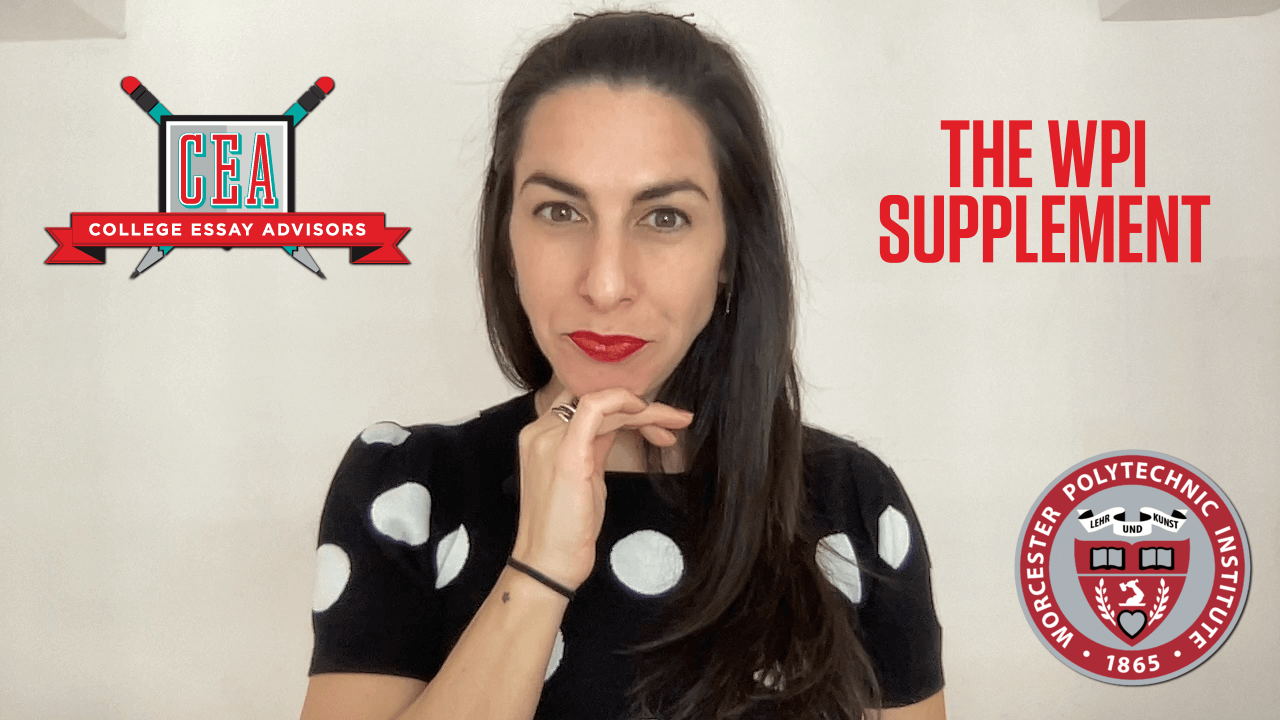
Guide to the Worcester Polytechnic Institute Supplemental Essay Prompt
Worcester Polytechnic Institute seeks students who are the right fit for its academic and campus community. CEA's Founder and Chief Advisor, Stacey Brook, is here to help you make your case as to why you're the perfect fit for WPI (and vice versa)!
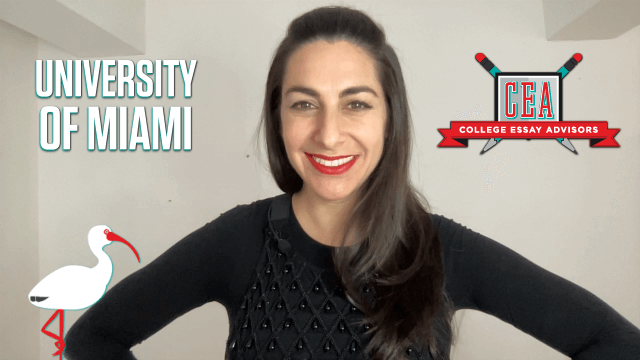
Guide to the University of Miami’s Supplemental Essay Prompt
The University of Miami asks applicants to respond to one supplemental essay prompt in 250 words or less (full text below). CEA's Founder and Chief Advisor, Stacey Brook, is here to share some tips and tricks for differentiating your response.
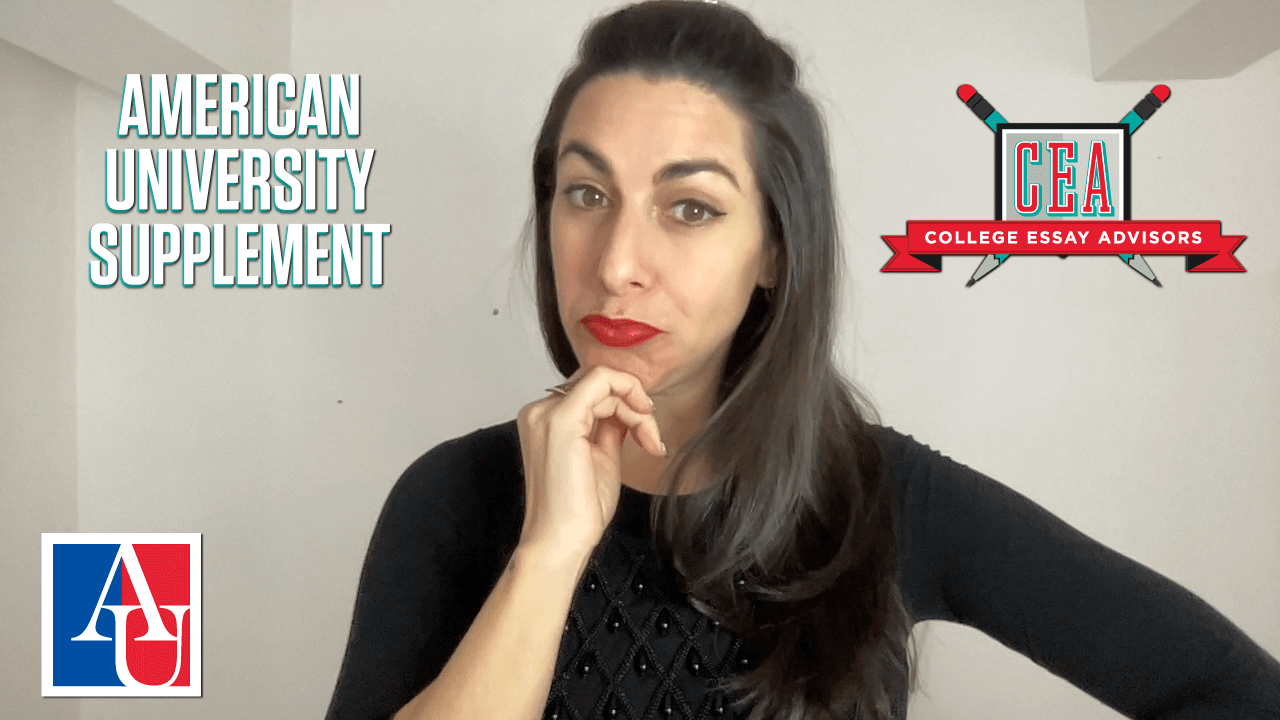
American University asks applicants to respond to the following prompt, "Why are you interested in American University?" in 150 words or less. With such few words at your disposal, you'll want to be succinct as possible. CEA's Founder and Chief Advisor, Stacey Brook, has some tips to help you get started on a distinct response.
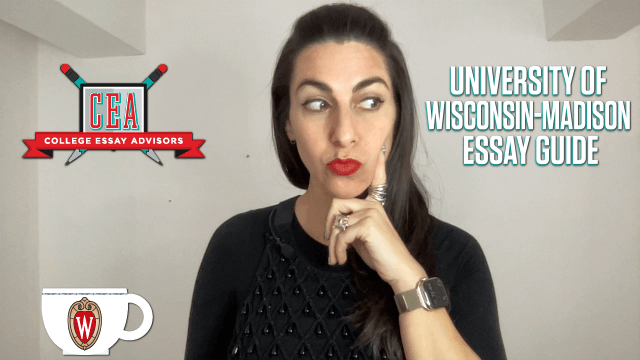
Guide to the University of Wisconsin-Madison’s Supplemental Essay Prompt
Admissions wants to know just what appeals to you about the University of Wisconsin-Madison. CEA's Founder and Chief Advisor, Stacey Brook, is here to lend tips and tricks for writing a winning supplemental essay for your Wisconsin-Madison application.
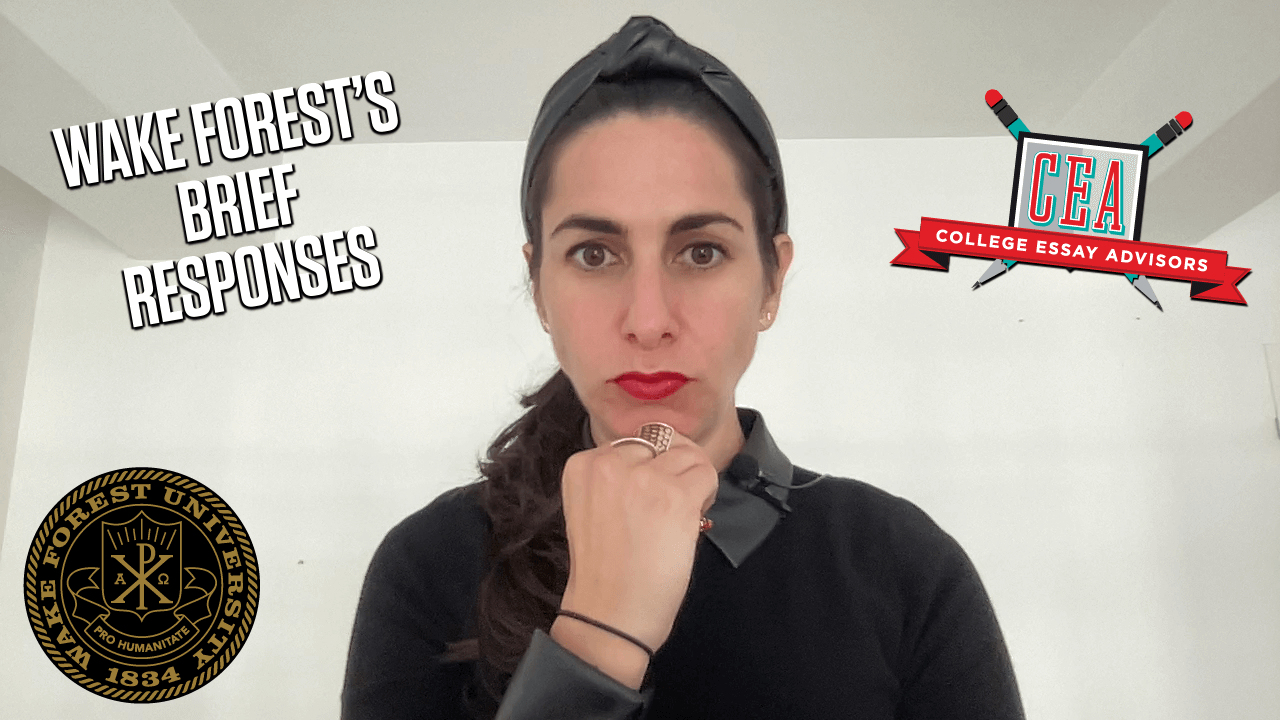
How to Respond to Wake Forest’s 150-Word “How Did You Become Interested in WFU?” Essay
CEA's Founder and Chief Advisor, Stacey Brook, is here to give you a jumpstart on your drafted response for Wake Forest's "Why?" essay: "How did you become interested in Wake Forest University? Feel free to tell us about any contact that you had with Wake Forest that was important to you. (150 words)"

How to Approach the 2021-22 Wake Forest Brief Responses (Writing Section)
CEA's Founder and Chief Advisor, Stacey Brook, is here to walk you through Wake Forest's 2021-22 Brief Responses, so you can submit a distinct and personal application to WFU.
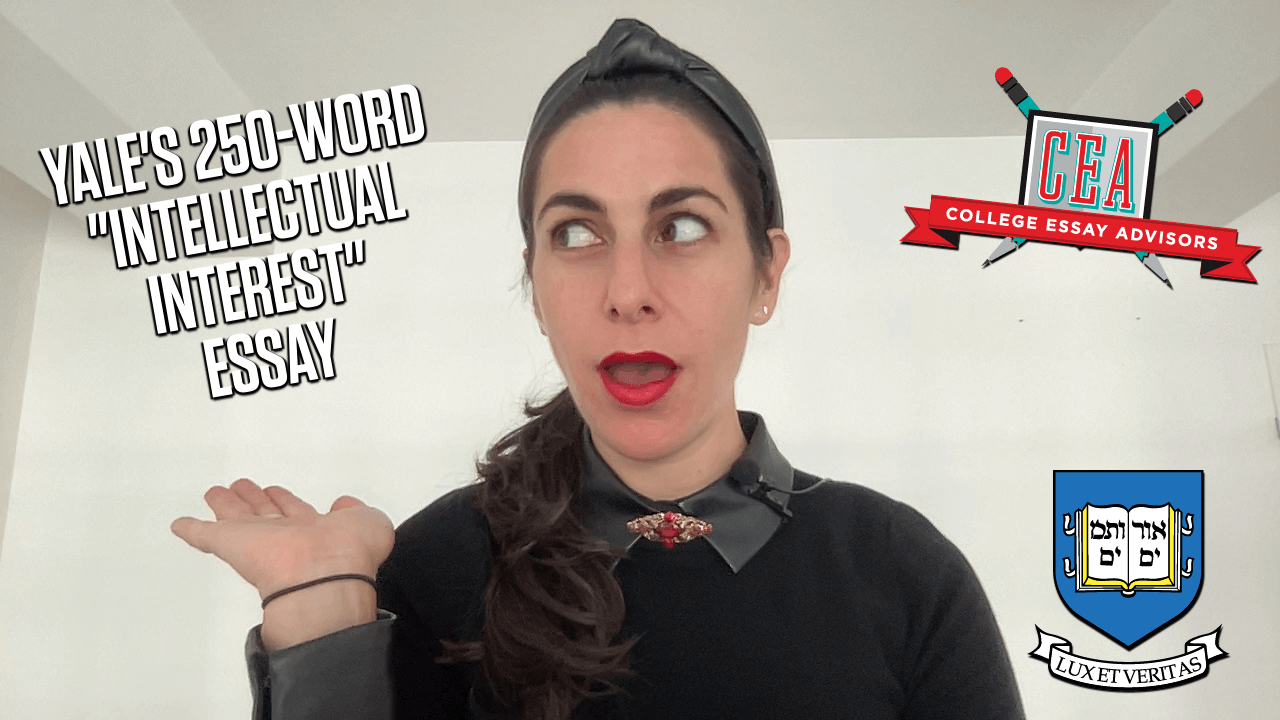
CEA’s Guide to Yale’s 2021-22 “Intellectual Interest” Essay
CEA's Founder and Chief Advisor, Stacey Brook, is here to break down Yale's 250-word "Intellectual Interest" essay, which reads, "Yale’s extensive course offerings and vibrant conversations beyond the classroom encourage students to follow their developing intellectual interests wherever they lead. Tell us about your engagement with a topic or idea that excites you. Why are you drawn to it?"
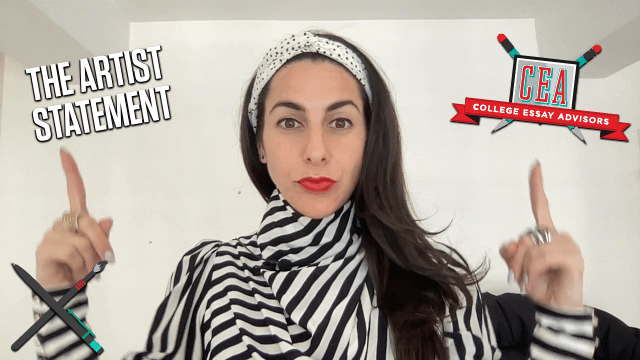
How to Write an Artist Statement
Many colleges and universities ask art students to write an artist statement as part of their applications. Writing an Artist Statement can be tricky, especially if you’re applying as an undergraduate.
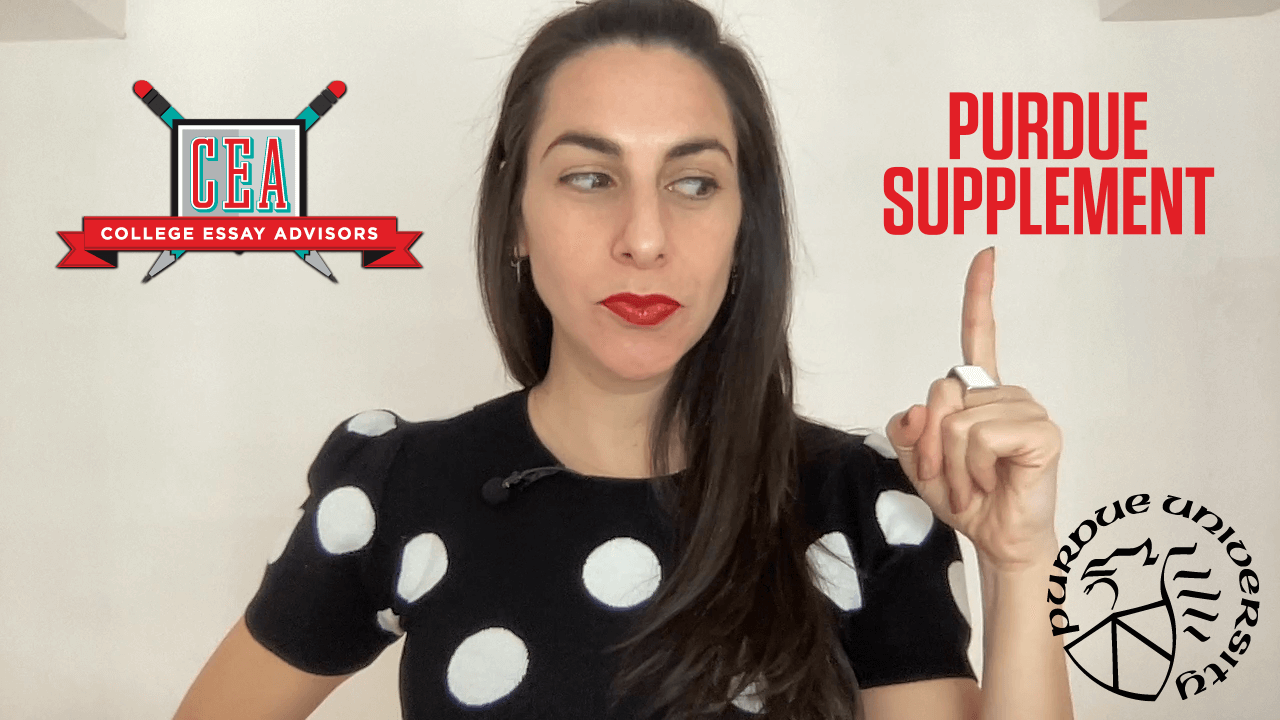
Guide to the Purdue University Supplemental Essays (2022-23)
Purdue University asks applicants to write three short supplemental essays as part of their admissions application. Founder and Chief Advisor of College Essay Advisors, Stacey Brook, is here to give you invaluable insight into the prompts and the motivation behind them so you can take advantage of this opportunity to speak to admissions in your own voice.
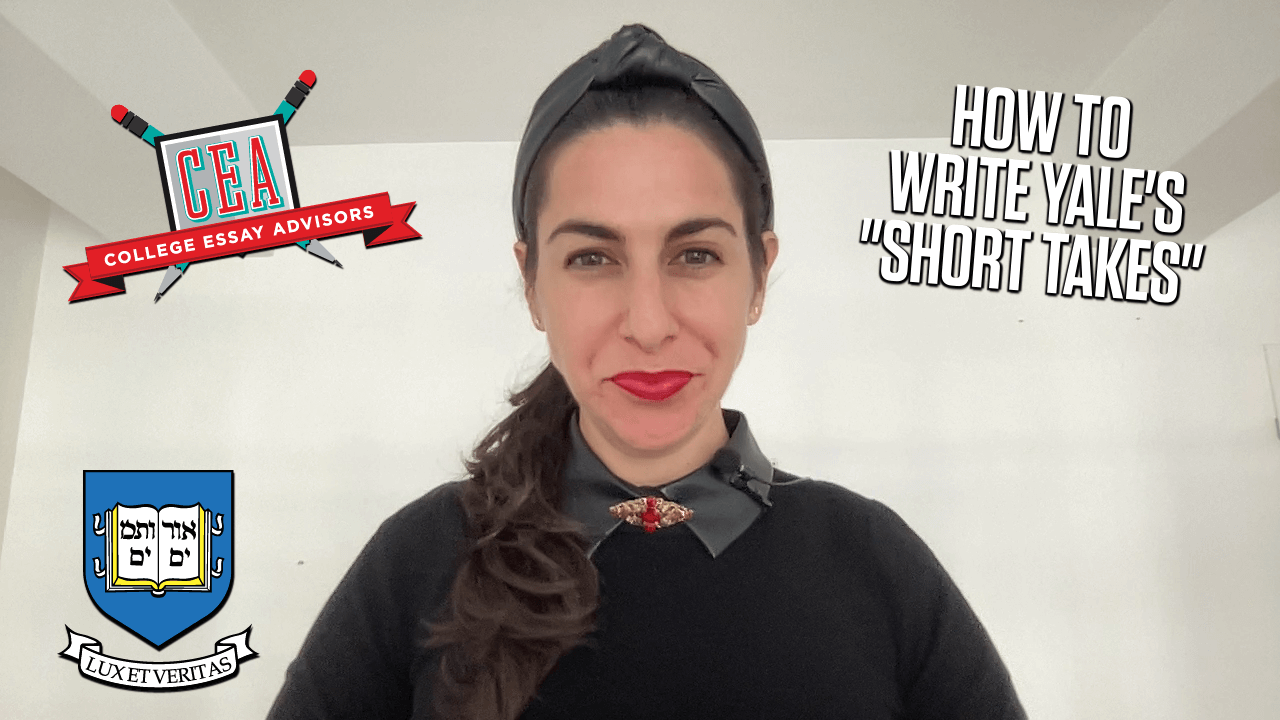
CEA’s Guide to Yale University’s “Short Takes” Supplement Section for the 2021-22 Application Year
CEA's Founder and Chief Advisor, Stacey Brook, is here to walk you through Yale University's "Short Takes" supplement section for the 2021-22 application season. It's time to brainstorm!
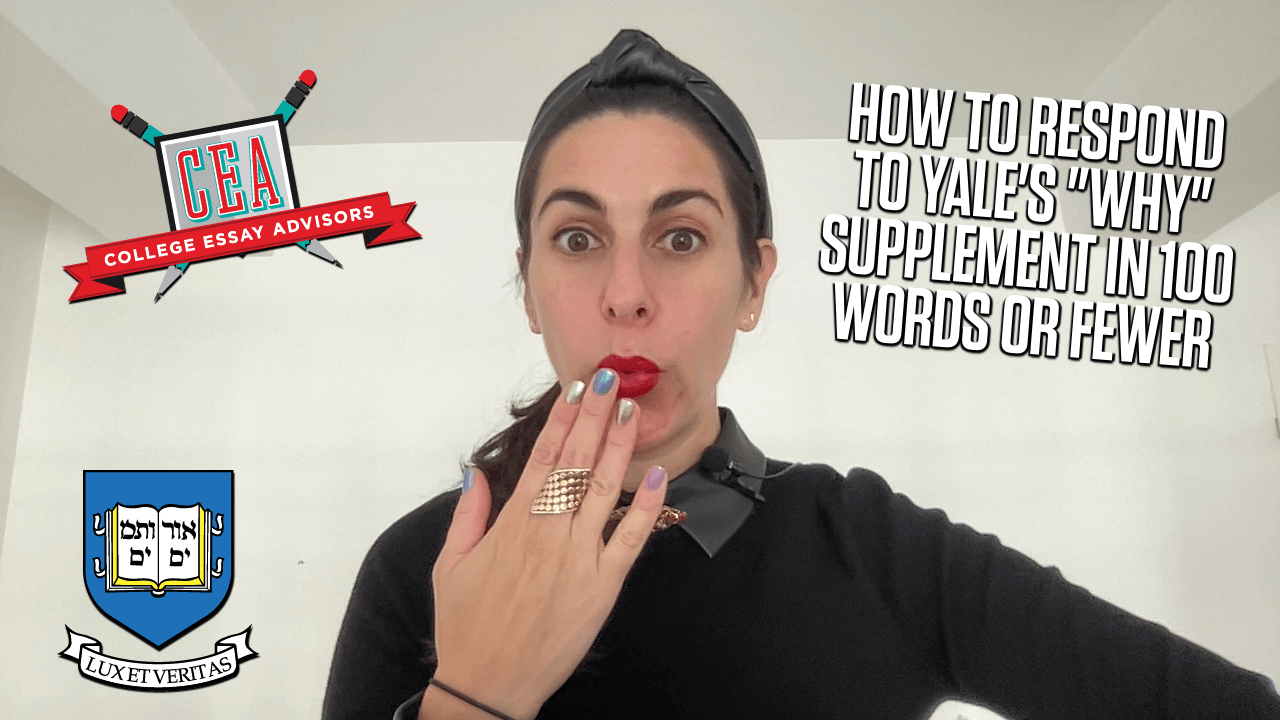
How to Respond to Yale University’s “Why Yale?” Supplement Section in 100 Words or Fewer
CEA's Founder and Chief Advisor, Stacey Brook, is here to walk you through the 2021-22 Yale University "Why Yale?" supplement section, so you can infuse your response with specificity while demonstrating fit.
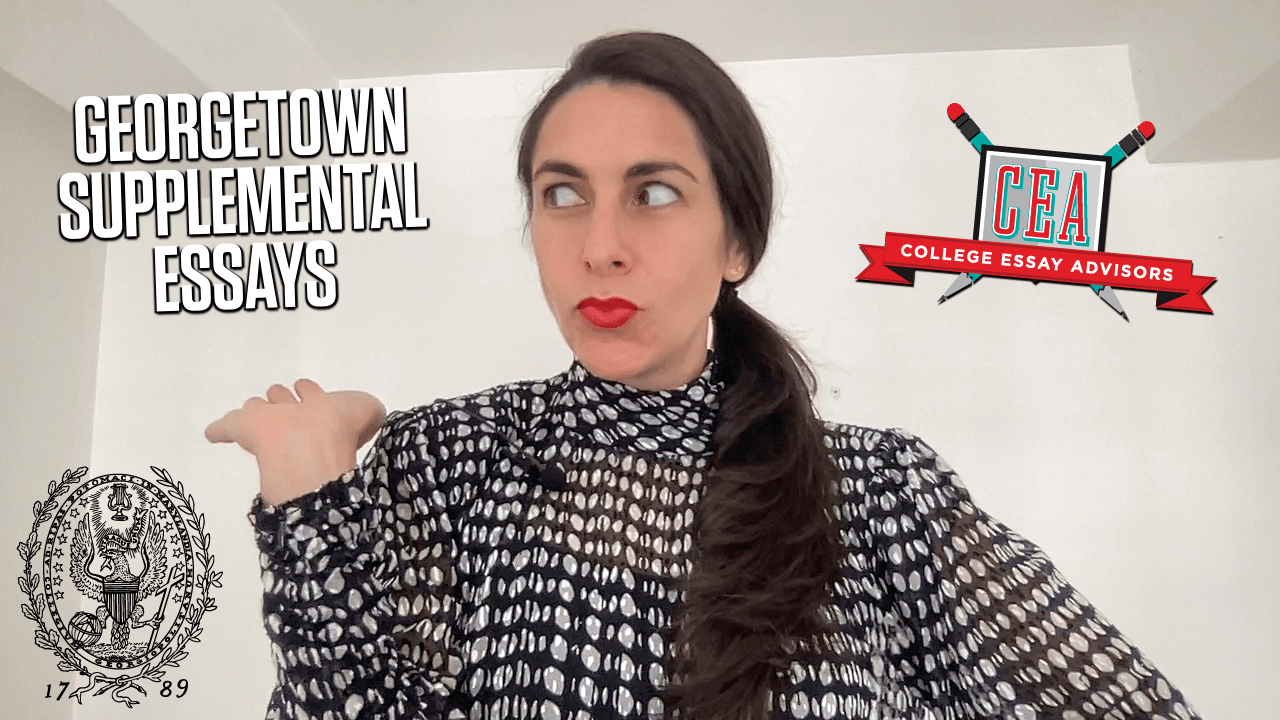
CEA’s Guide to the 2021-22 Georgetown University Essay Prompts
Georgetown University asks applicants to submit four (4) essays in their undergraduate admission application. CEA's Founder and Chief Advisor, Stacey Brook, is here to walk you through each of Georgetown's 2021-22 prompts, so you can draft with confidence.
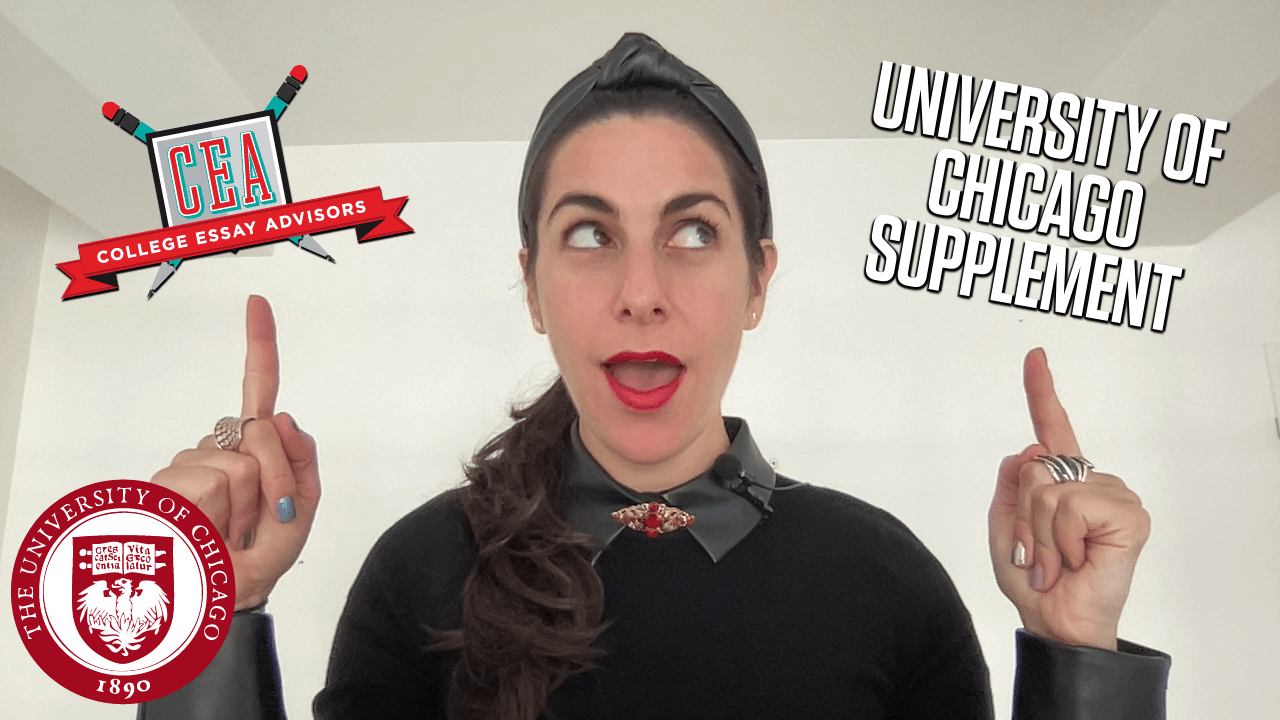
CEA’s Guide to the University of Chicago’s 2021-22 Supplemental Essay Prompts
CEA's Founder and Chief Advisor, Stacey Brook, is here to walk you through the 2021-22 University of Chicago supplemental essays, so you can better understand what admissions is looking for in your response.
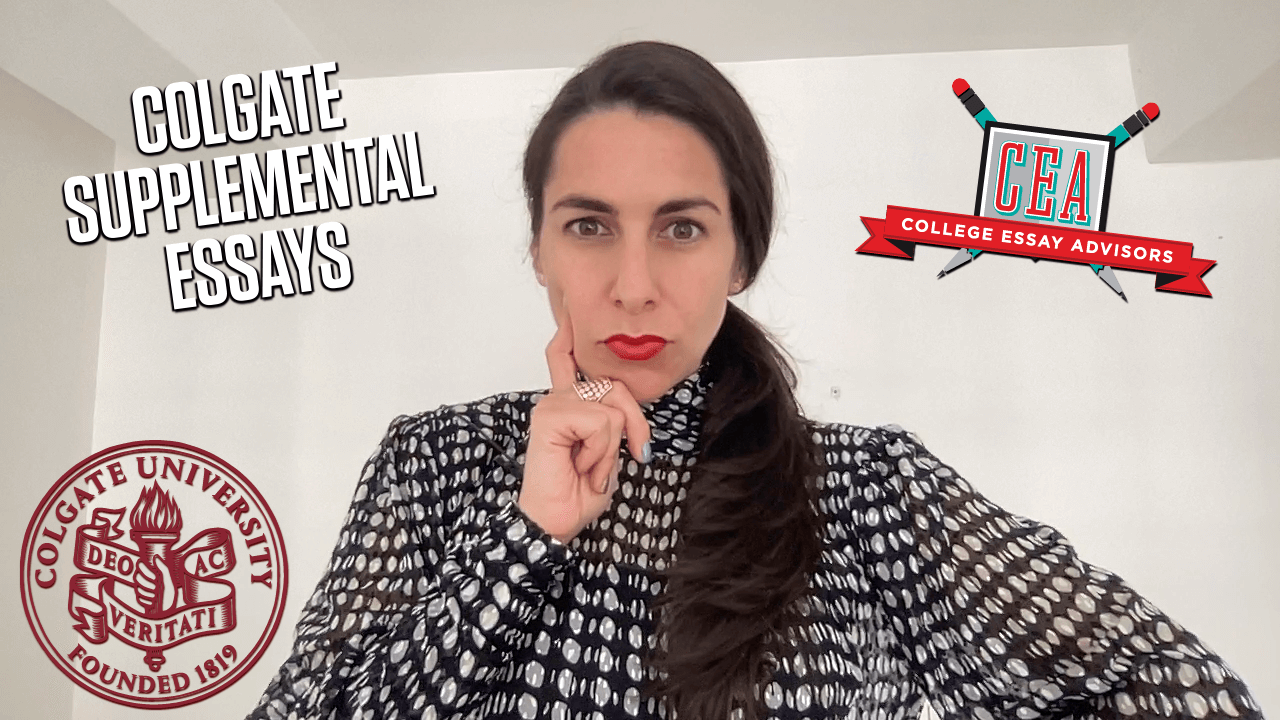
CEA’s Guide to the 2021-22 Colgate University Supplemental Essays (and List!)
CEA's Founder and Chief Advisor, Stacey Brook, is here to walk you through the 2021-22 Colgate University supplemental essays, so you can draft winning responses.
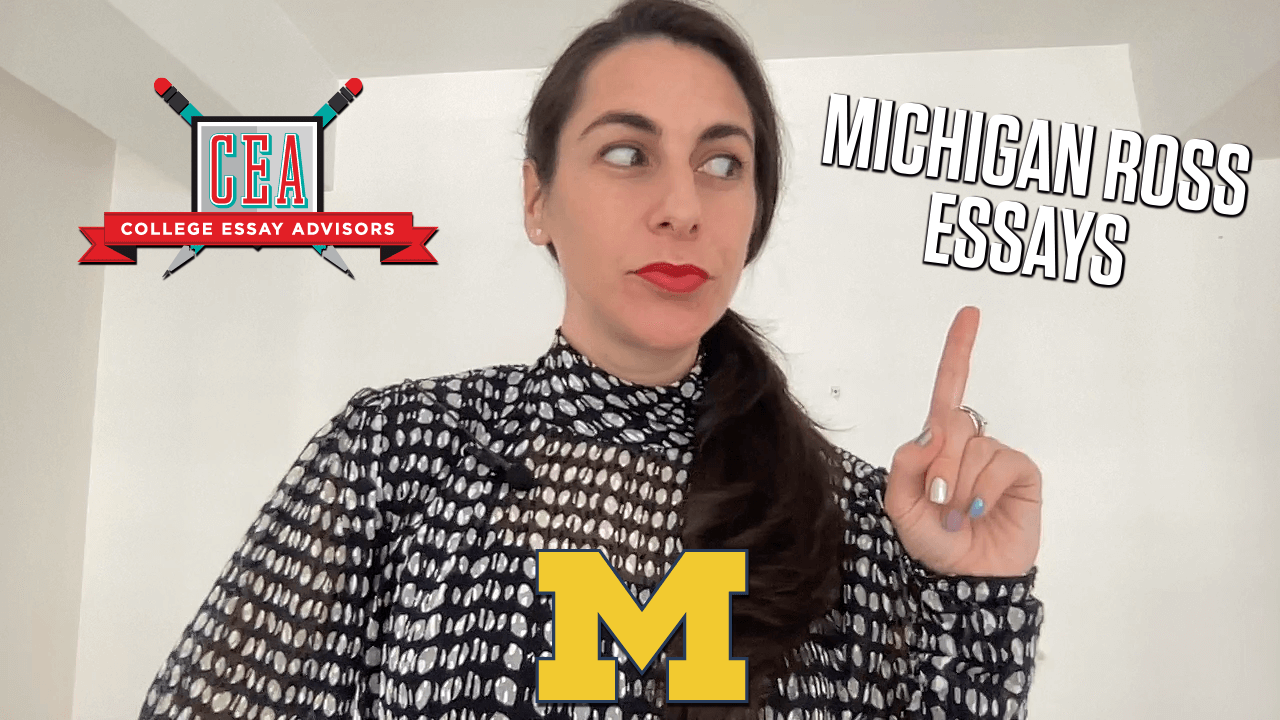
CEA’s Guide to the University of Michigan’s Ross School of Business Portfolio Submission
Preferred Admission applicants to the University of Michigan's Stephen M. Ross School of Business will complete a portfolio. This portfolio is in addition to the materials you submit with your Common Application or Coalition Application.
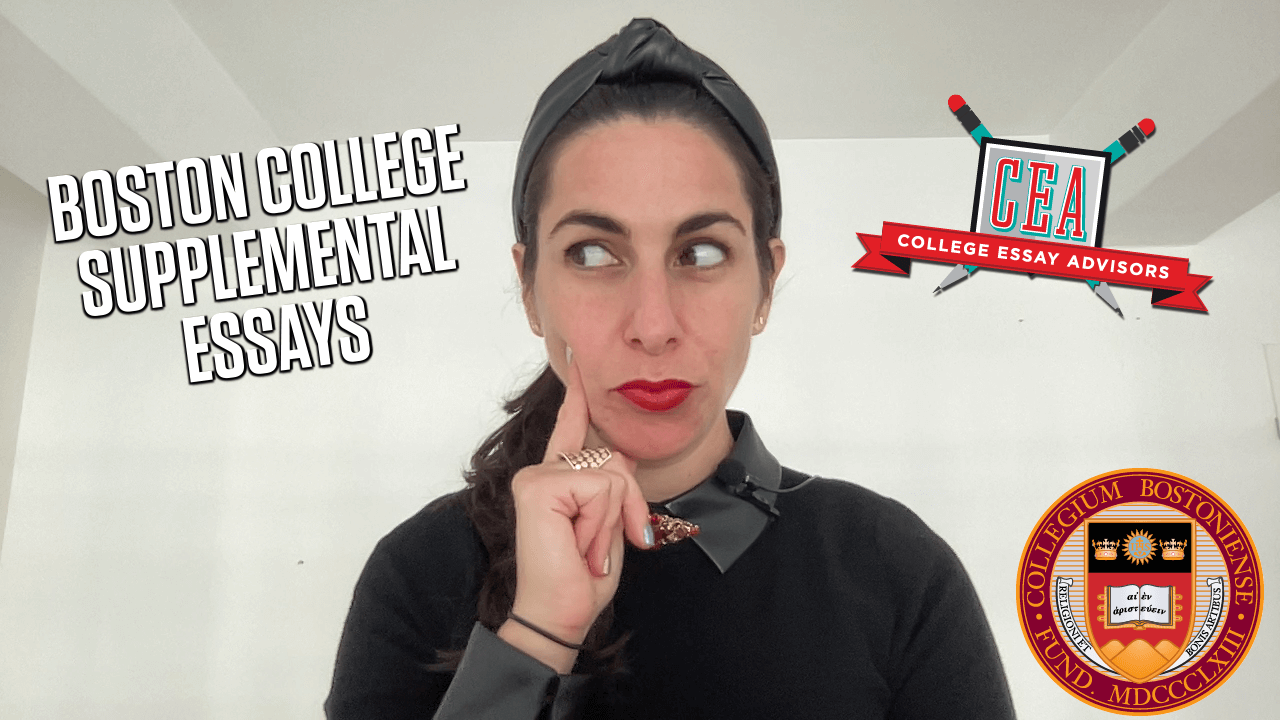
CEA’s Guide to the 2021-22 Boston College Supplemental Essay Prompts
Boston College asks students to select one prompt (out of five) to respond to in 400 words or less (prompts below). So what will you write about? Philosophy, racial injustice, conversation partners, introspection, or your favorite book? CEA's Founder and Chief Advisor, Stacey Brook, is here to give you all the information you need to select a prompt and write an amazing supplemental essay.
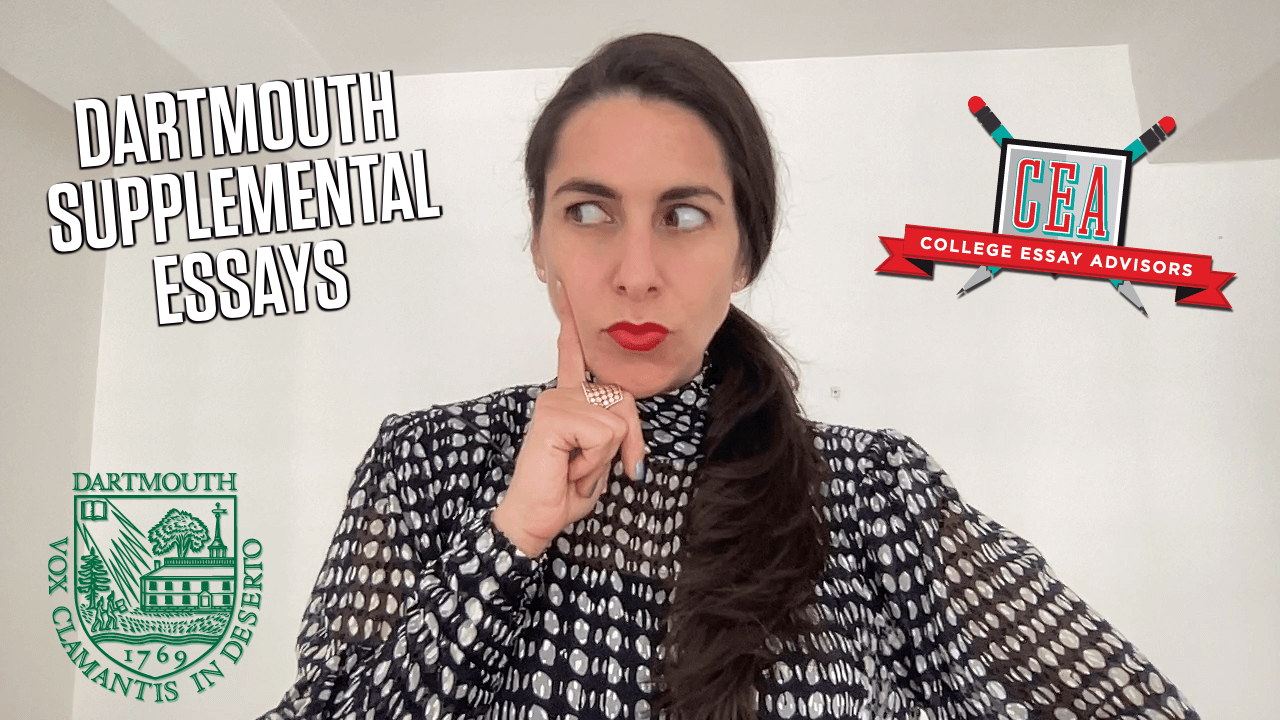
CEA’s Guide to the 2021-22 Dartmouth College Supplemental Essays
Dartmouth College is one of the most competitive schools in the country, and every year admissions officers are faced with countless applications from eager students looking to make the cut. Dartmouth's supplemental essay prompts are an opportunity for applicants to distinguish themselves from their peers. CEA's Founder and Chief Advisor, Stacey Brook, is here to break down the seven Dartmouth College supplemental essay prompts, so you can draft your responses with confidence.
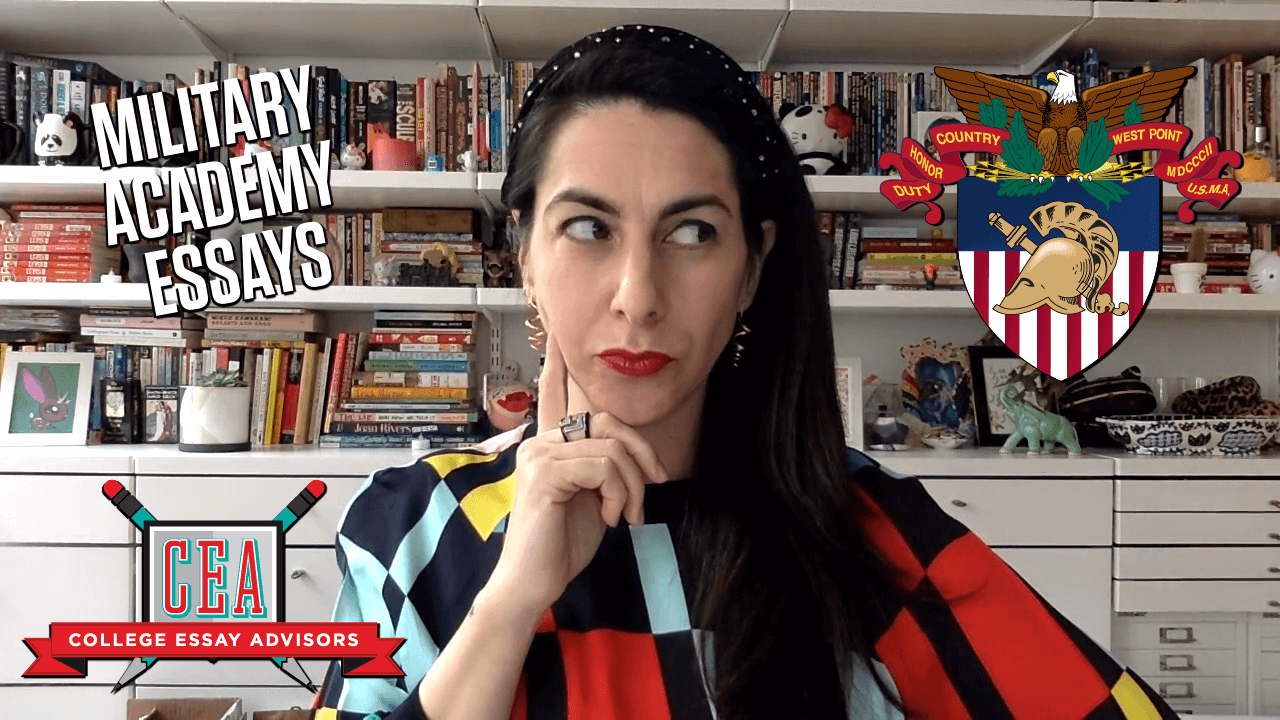

4 Types of Essay Prompts to Expect from Military Academy Applications
Whether you’re applying to the United States Air Force Academy, Naval Academy, Coast Guard Academy, Merchant Marine Academy, or West Point Military Academy, you can anticipate penning responses to these four types of essay prompts. CEA's Founder and Chief Advisor, Stacey Brook, is here to walk you through the four most common Military application essay categories!
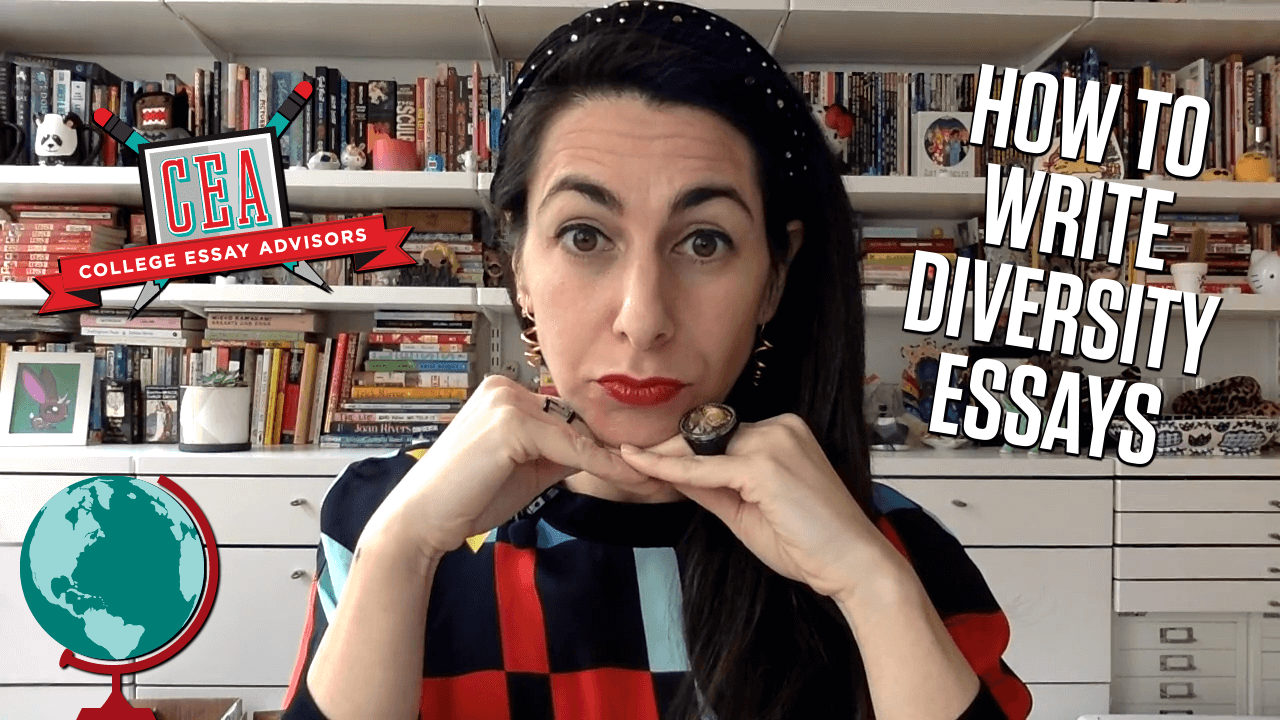
How to Respond to College Essay Prompts About Diversity and Inclusivity
Many colleges and universities have started asking applicants to respond to prompts that ask them about their experiences with diversity, inclusion, and equity. CEA's Founder and Chief Advisor, Stacey Brook, is here to walk you through the popular new supplemental essay prompt.

Guide to the 2020-21 University of Southern California (USC) Essays | CEA
So, we just have to say it: the USC application is kind of all over the place! You’ll be asked about everything from your academic interests to your life's theme song, so make sure to tighten the straps on your brainstorming helmet. Our Founder and Chief Advisor, Stacey Brook, is here to show you how to use every essay as an opportunity to showcase something different about yourself!

Guide to the 2020-21 University of California Essays | CEA
For the UC application, the rules may be unfamiliar but the game is the same: tell admissions something they don’t know, and then do it three more times! A strategic applicant will choose an amalgam of prompts that highlight vastly different aspects of their life and personality, leaving an admissions officer with a deep and complete picture of who they are. Our Founder and Chief Advisor, Stacey Brook, is here to help you avoid getting hung up on trying to find the questions admissions "wants" you to answer -- with each essay, your goal isn’t just to answer the question, but to tell a very short story about yourself!

Guide to the 2020-21 Georgetown University Essays | CEA
Since it's not on the Common App, Georgetown requires some extra special attention when it comes to its supplemental essay requirements! Luckily, our Founder and Chief Advisor Stacey Brook is here to give you invaluable insight into the prompts and discuss the motivation behind them. Take advantage of this opportunity to speak to admissions in your own voice!

Guide to the 2020-21 Harvard University Supplemental Essays | CEA
Harvard University is one of the most competitive schools in the country, and every year admissions officers are faced with countless applications from eager students looking to make the cut. As a result, Harvard's supplemental essay prompts are diverse and complex, to allow students an opportunity to distinguish themselves from their peers. If you're feeling overwhelmed, fear not! CEA's Founder and Chief Advisor, Stacey Brook, is here to break down the Harvard essays so you can hit submit with confidence.

Guide to the 2020-21 Stanford University Essays | CEA
The Stanford University application is nothing short of a doozie -- no less than EIGHT essays of varying lengths for students to answer and submit! To help you tackle this beast, our Founder and Chief Advisor Stacey Brook has created this video guide to walk you through each of the prompts, and give you the tips and tricks you need to make an impression on admissions.

Guide to the 2020-21 Boston University Essays | CEA
The Boston University essay requirements are a gift to students: two of the most straightforward prompts you could ask for, and only one of them is required! Of course, our Founder and Chief Advisor, Stacey Brook, doesn't believe that any essay is truly optional, so make sure you're taking advantage of every opportunity you have to speak to admissions in your own voice. Plan ahead, pay attention to the questions, and above all don't wait until the last minute to start your work!

Guide to the 2020-21 University of Michigan Essays | CEA
We know that submitting your application to the University of Michigan can cause some serious stress. Thankfully, this year Michigan only requires two supplemental essays instead of three! Our Founder and Chief Advisor, Stacey Brook, is here to give you invaluable insight into the prompts and provide you with tips and tricks to help you showcase yourself to admissions using your own unique voice.

Guide to the 2020-21 New York University Supplemental Essay | CEA
New York University (NYU) asks undergraduate applicants to write one supplemental essay (prompt in description below) on top of their Common App personal statement. CEA's Founder and Chief Advisor, Stacey Brook, is here to tell you everything you need to know in order to craft a winning response!

Guide to the 2020-21 Brown University Supplemental Essays | CEA
Applying to an Ivy League institution, such as Brown University, can be incredibly stressful! Luckily for you, CEA's Founder and Chief Advisor, Stacey Brook, is here to walk you through Brown's four (4) supplemental essay prompts.

Are “Optional” College Essay Prompts Really Optional?
Every year, colleges and universities around the world offer applicants the opportunity to respond to "optional" supplemental essay questions...But are these prompts truly optional? CEA's Founder and Chief Advisor, Stacey Brook, lets you in on a college admissions secret.

The Expert’s Guide to Finding Sneaky Supplemental Essays
There's probably a section of the Common Application that says "Writing", in which all of the supplemental essays live, right? WRONG! Supplements can be found in a variety of places and can sneak up on students who have spent months preparing to submit their applications. Don't let that be you! This video will detail the several different places where you can find supplemental essays.
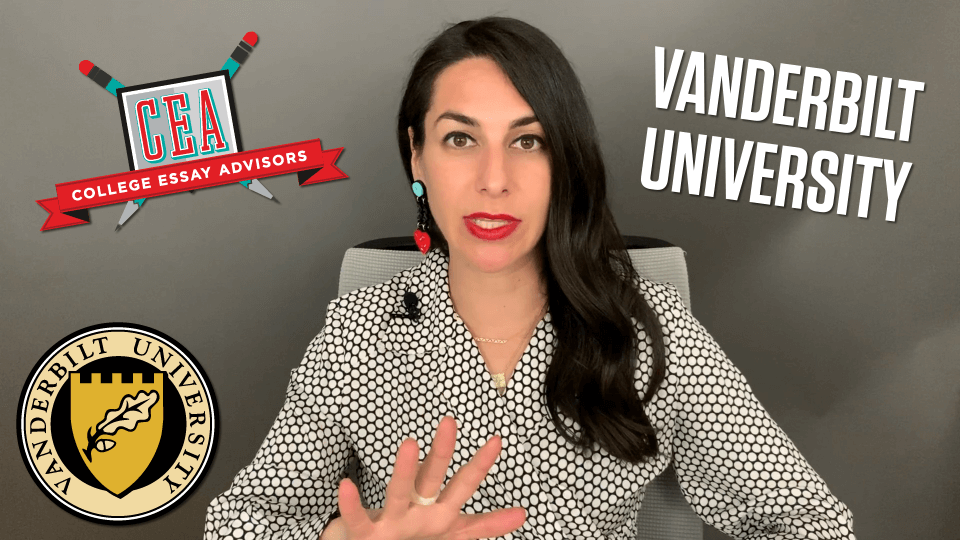
How to Write Vanderbilt University’s “Extracurricular Activities” Essay
Vanderbilt University's supplement consists of one prompt (text below). CEA's Founder and Chief Advisor, Stacey Brook, is here to help you take full advantage of this opportunity to illuminate your leadership skills or personal values for admissions.
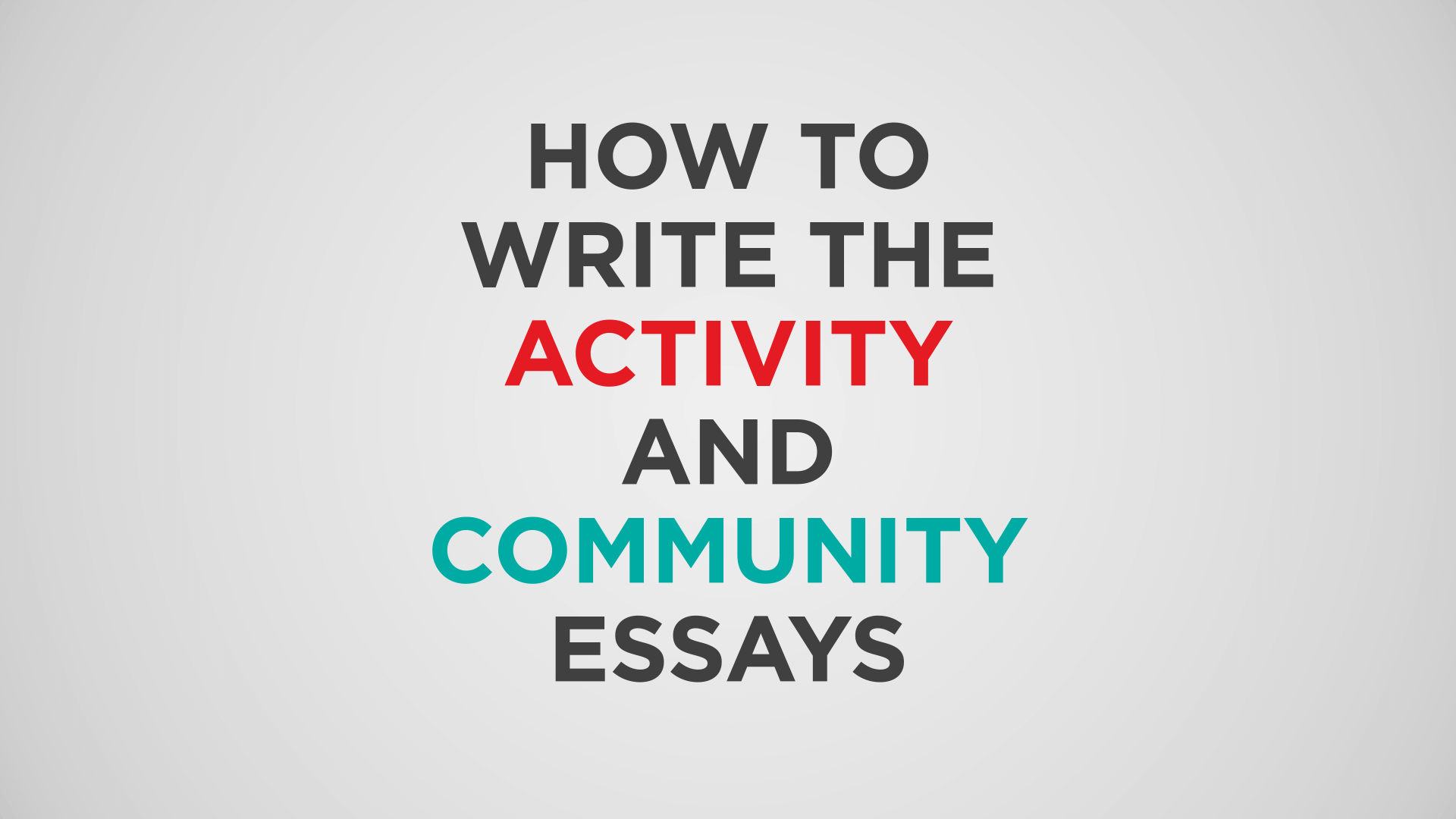
The College Application ‘Activity’ and ‘Community’ Essays: What You Need to Know
Want the key to writing the most important and pervasive school-specific supplemental essays? We've got the tips and tricks you need to conquer the ever-popular "Activity" and "Community" supplements so you can showcase for admissions how you spend your time, where you feel like you belong and what truly motivates you to action. Assigned by schools like Harvard, Stanford, The University of Michigan and so many more, mastering these supplemental essays will ensure you utilize every opportunity a school's application provides to showcase your strengths.

What is a Supplemental Essay?
Most supplemental essay prompts are designed to both gauge a student’s interest and determine where a student might fit into a school’s particular community. Typically, these essays focus more specifically on future academic and professional goals, school-related activities and a student's role in your current community than the Common App's personal statement. Watch this video for a short and sweet introduction to supplemental essays. Know what you're up against!
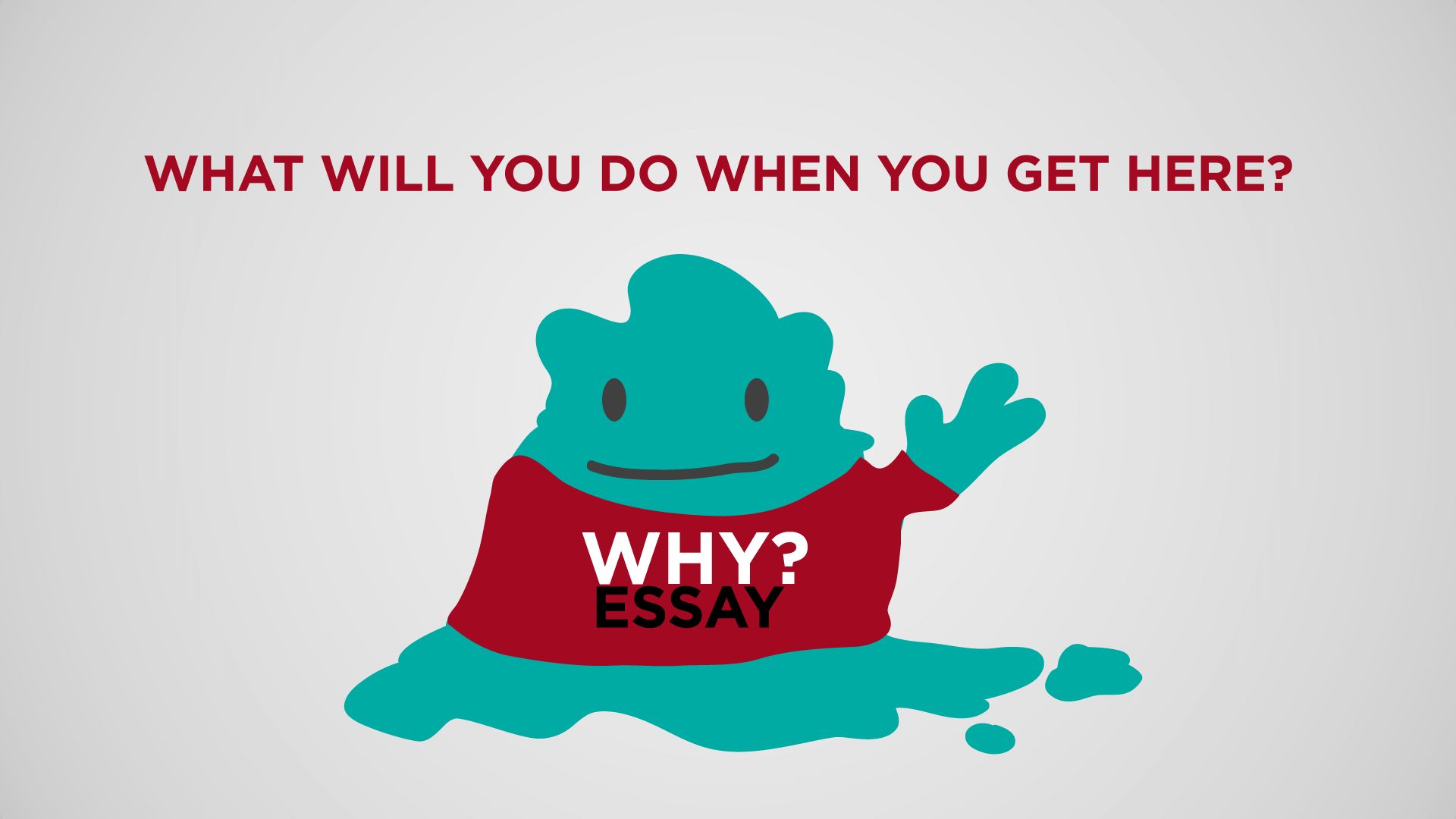
How to Write a Powerful “Why Do You Want to Go Here?” Essay (The Why Essay)
The Why Essay takes on many forms and can ask many questions: What will you do when you get here? How will you take advantage of all the resources our school has to offer? How will the school support your academic or professional goals? How do your past experiences or future goals support these claims? It’s likely that many schools to which you apply will as the Why question in slightly different ways (and with a WIDE range of word limits). This video will teach you everything you need to know about how to respond to the "Why do you want to go here?" essay.
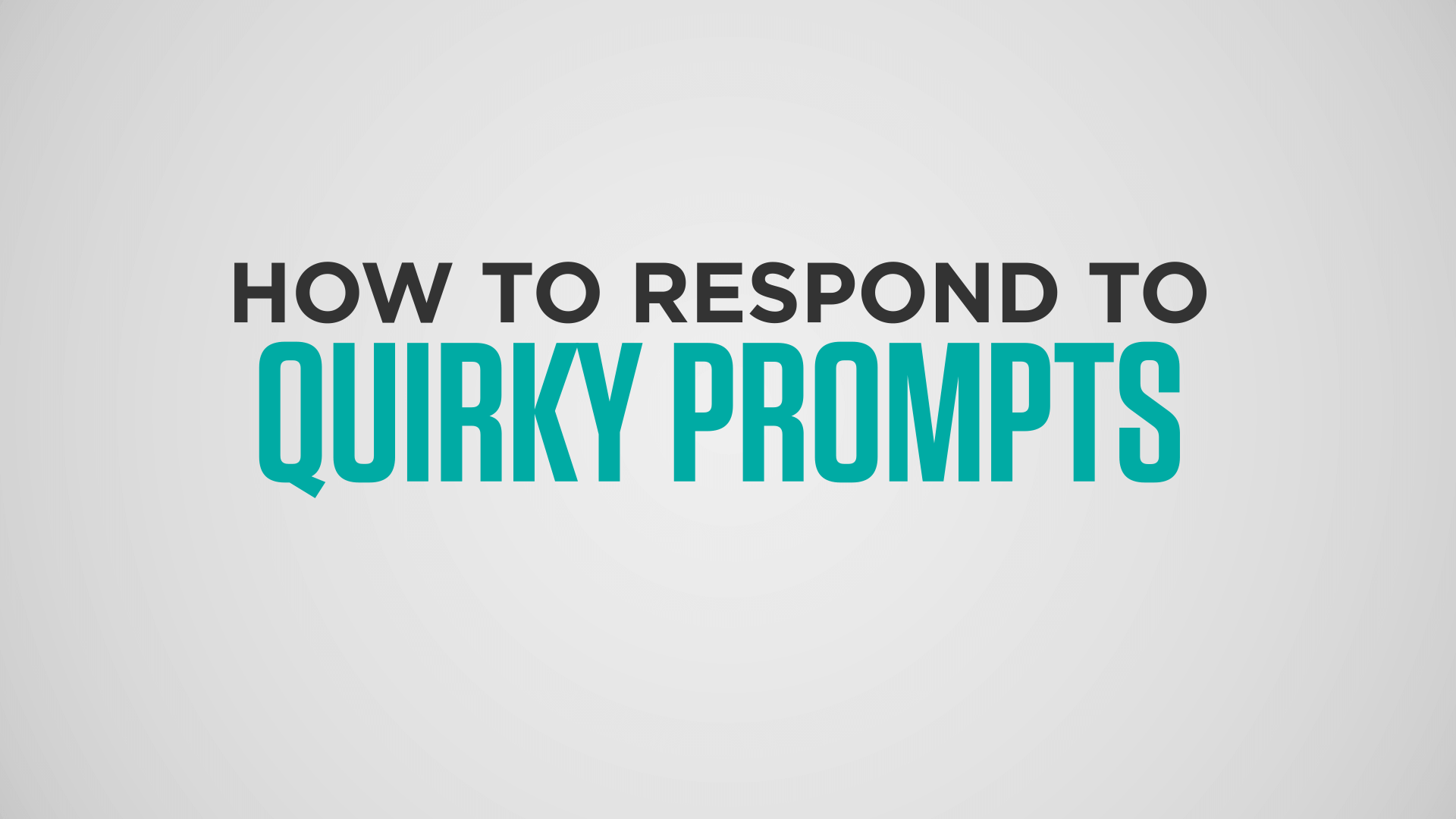
How to Respond to Quirky, Odd, and Bizarre College Essay Prompts
There are certain schools, like the University of Chicago, who have always taken special pride in developing crafty questions for their applicants to answer. In recent years, more schools are jumping on the bandwagon, luring students to their applications with questions like “What does #YOLO mean to you” (Tufts, 2013). This is both fun and exhausting for applicants who are grateful for an injection of modern, quirky inspiration, but whose creative wells may be running dry. This video will get down to the bottom line: Why are schools asking these questions and what are they looking for in applicants' responses?
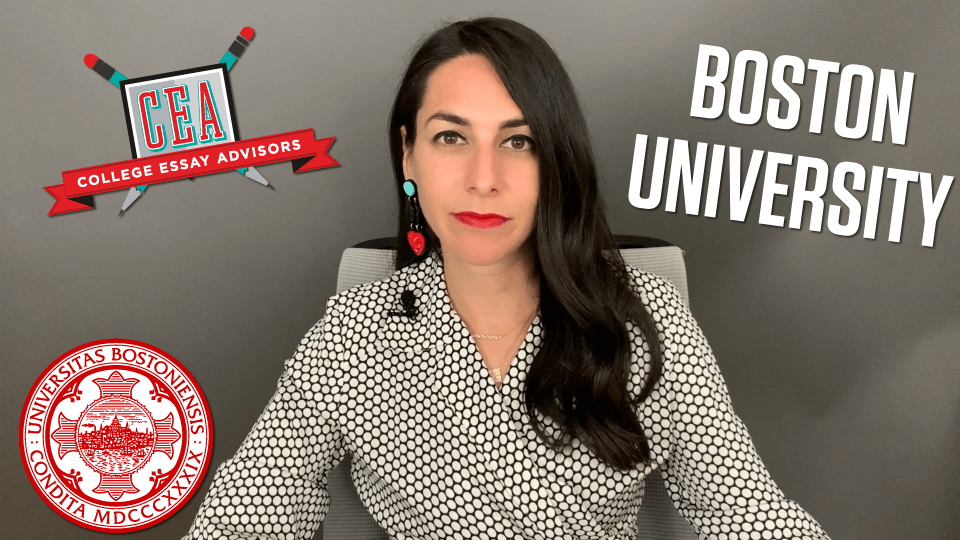
How to Gain Acceptance to Boston University (with Winning Supplemental Essays)!
The Boston University application supplement is a gift: two of the most straightforward prompts you could ask for, and only one of them is required [full prompts below]. But beware, a simple supplement is no reason to ignore a school or save it until the last minute. In fact, it means you have no excuse not to nail your essay, so pay attention and do your work!
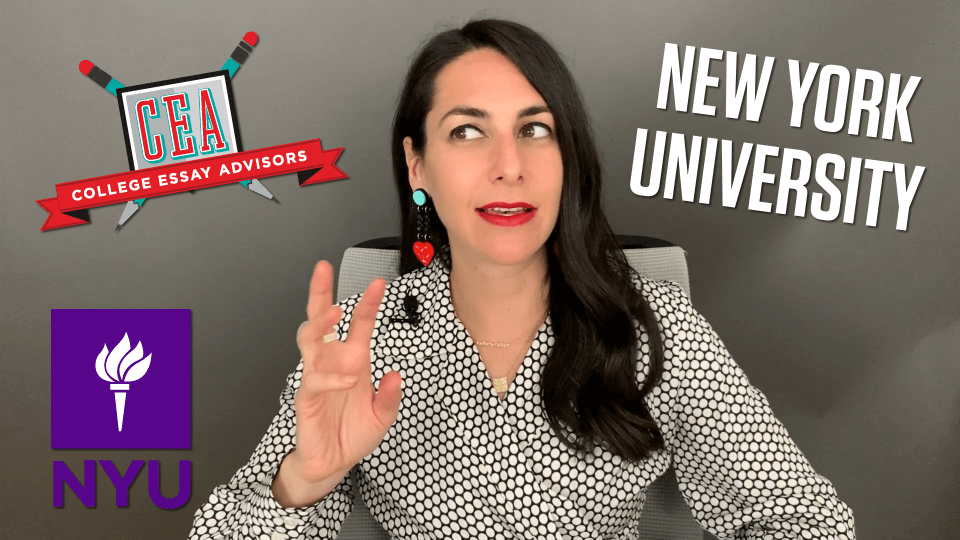
How to Write the “Why NYU?” Essay
New York University (NYU) asks undergraduate applicants to pen one supplemental essay (prompt below) in addition to the personal statement. CEA's Founder and Chief Advisor, Stacey Brook, is here to tell you everything you need to know in order to draft a compelling response.
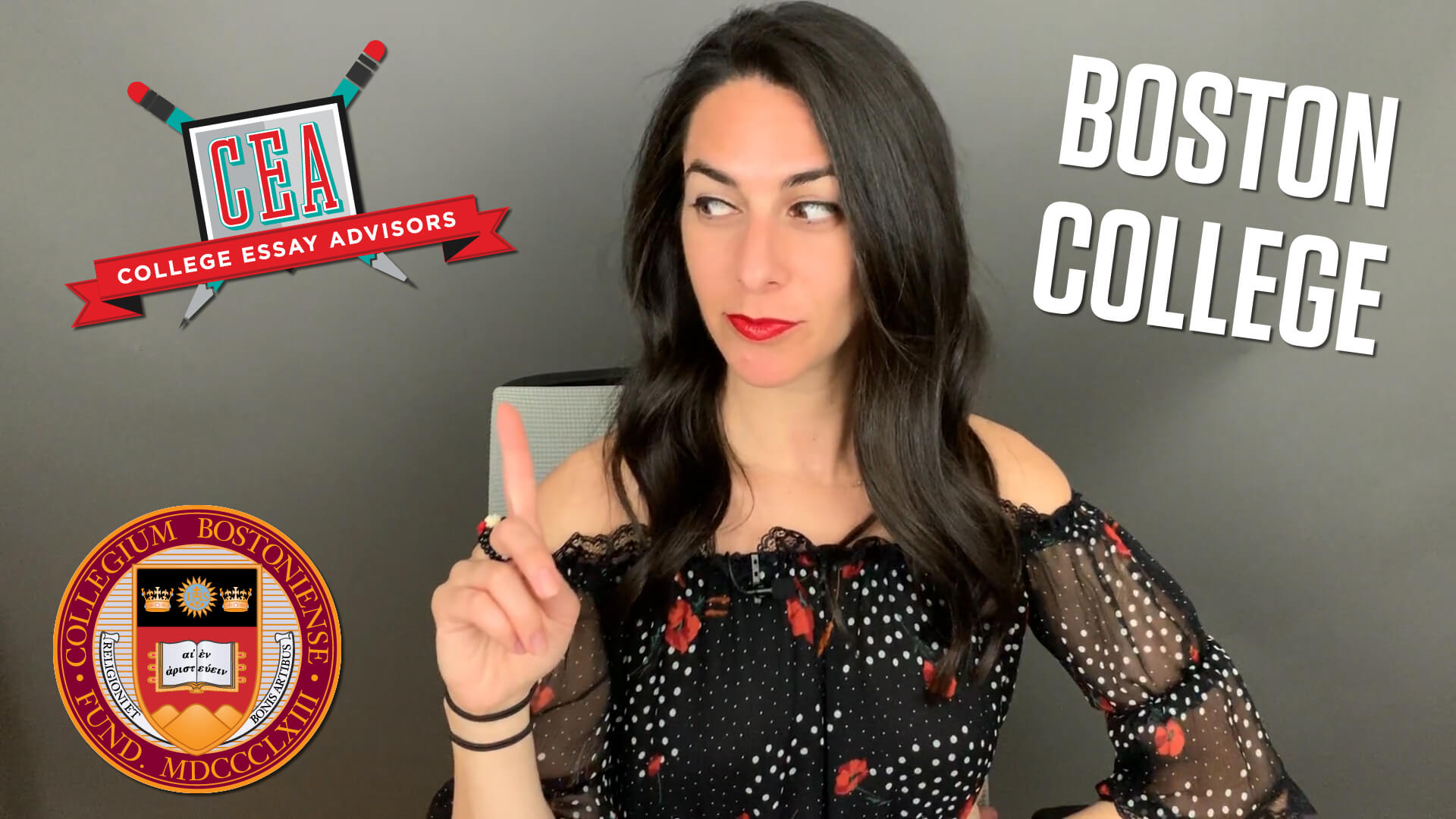
How to Gain Acceptance to Boston College (with a Winning Supplemental Essay)!
Boston College asks students to select one prompt (out of four) to respond to in 400 words or less (prompts below). So what will you write about? Art, community, a contemporary problem, or character formation? CEA's Founder and Chief Advisor, Stacey Brook, is here to give you all the information you need to select a prompt and write an amazing supplemental essay.
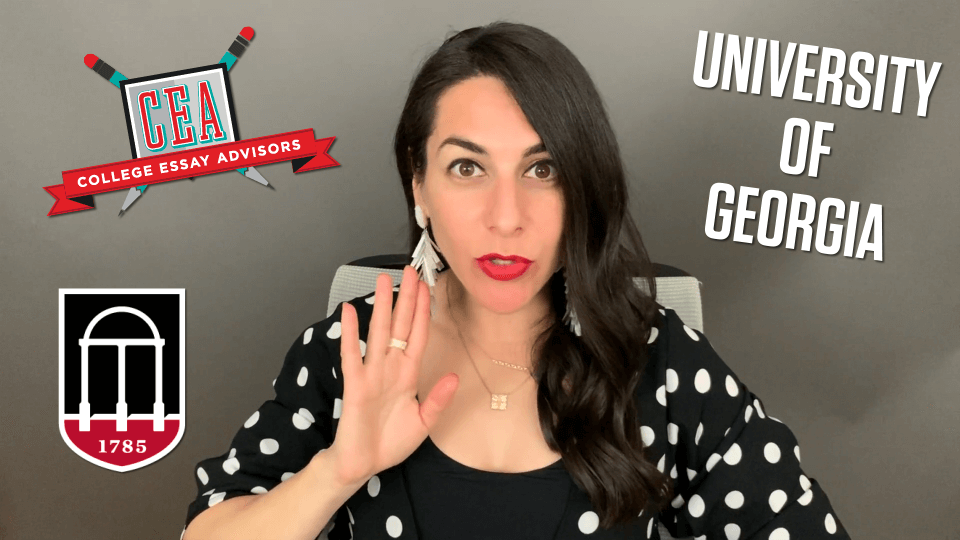
How to Write Fantastic Application Essays for the University of Georgia
The University of Georgia asks students to write two application essays of 200-300 words. The first prompt is set in stone, and for the second essay, applicants can choose one of four prompts to respond to [prompts below]. CEA's Founder and Chief Advisor, Stacey Brook, is here to tell you everything you need to know about choosing and responding to these prompts for UGA. Let's begin!
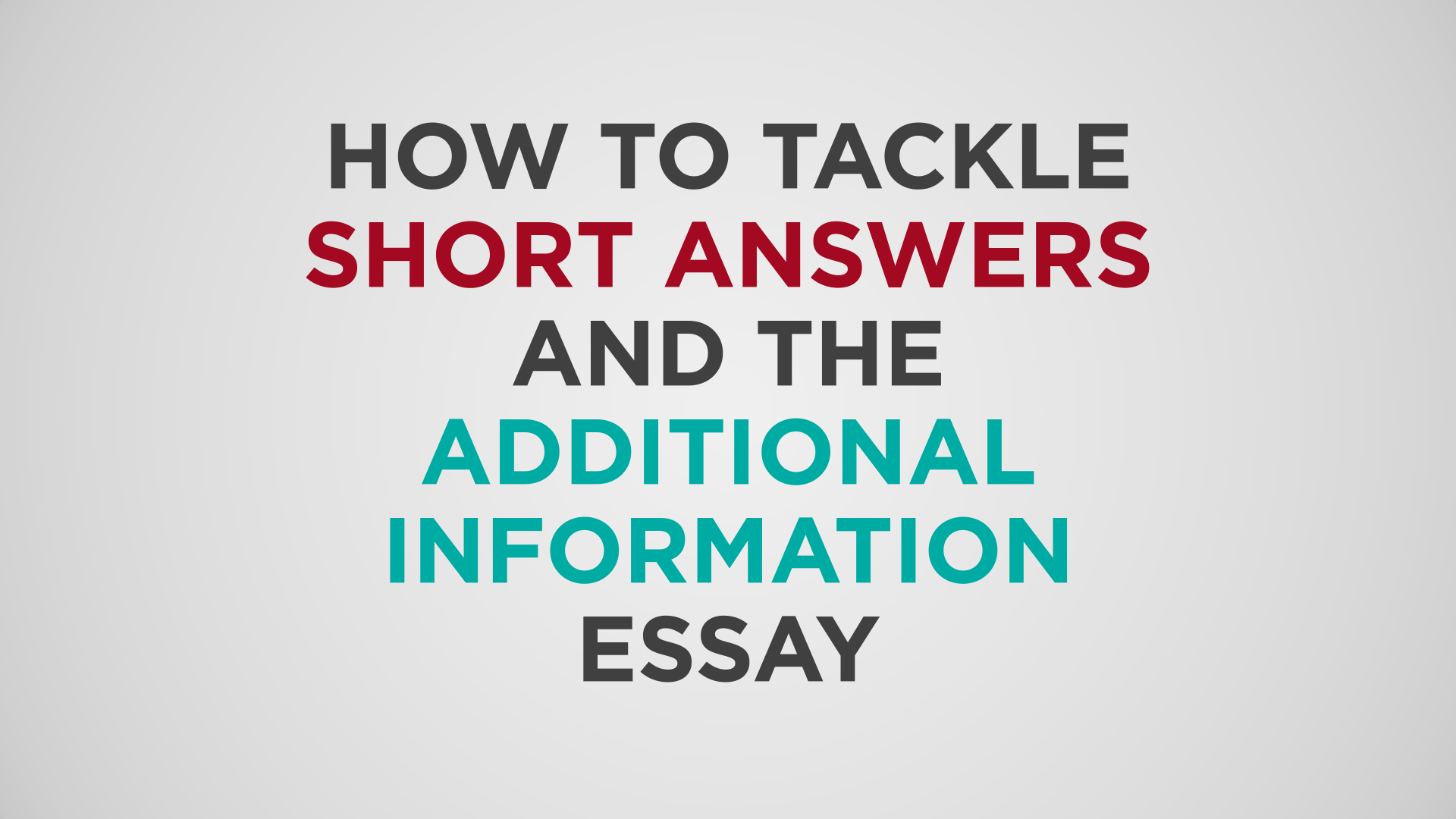
How to Write Short Answers and the Additional Info Essay
The challenge of short answer questions lies half in generating honest, unique and clever ideas, and the other in being concise. The purpose of additional info essays is to provide admissions with an explanation for a drop in grades, low test scores, or prolonged absences. Both of these essay types need to be handled with care -- and that's exactly what this video will show you how to do.
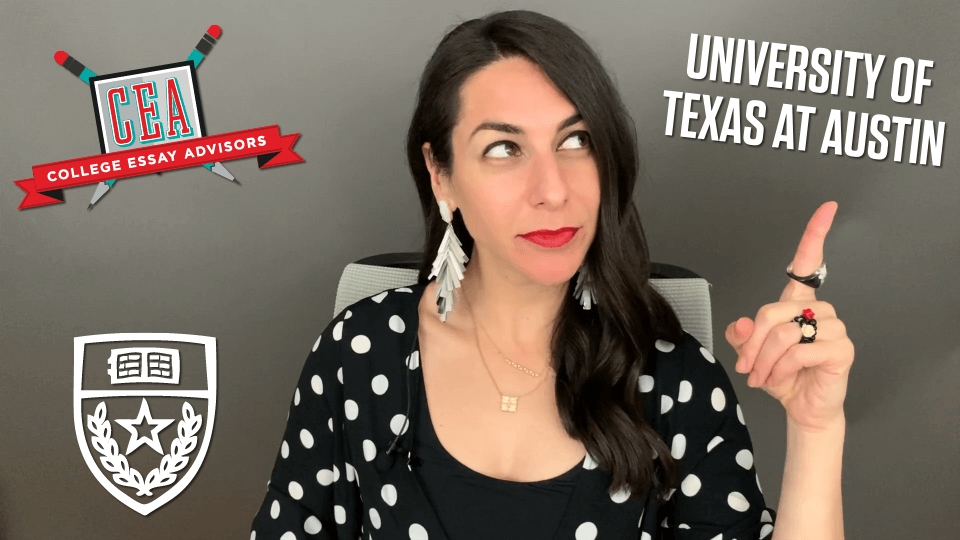
How to Get Into University of Texas: Austin (with Great Application Essays!)
The University of Texas: Austin application is a beast unto itself, with a slew of essay prompts (full text below) that ask you to dig into all aspects of your life. From your home life to your future plans, you're going to have to tell all -- and in a way that sets you apart! Luckily CEA's Founder, Stacey Brook, is here to break down the prompts so you're ready to tackle anything Texas' independent platform throws at you.
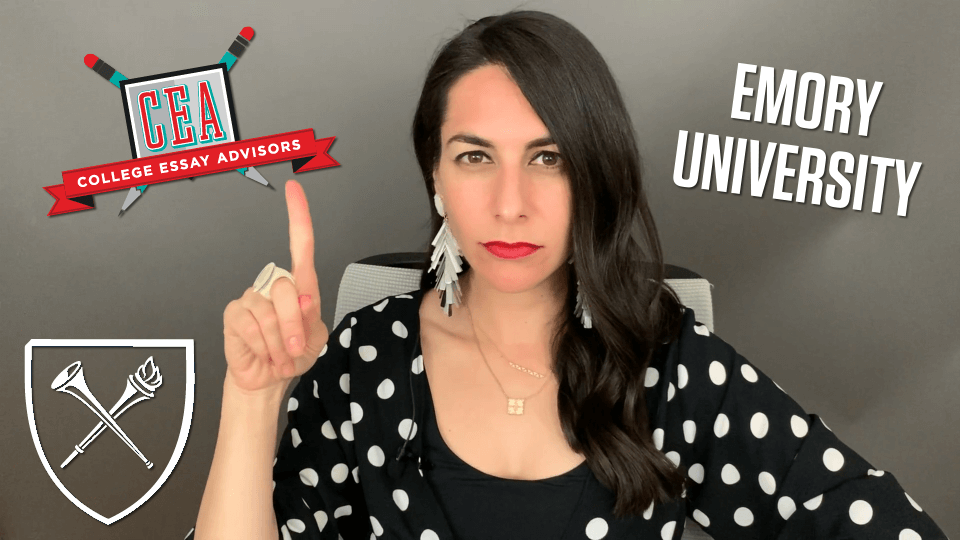
How to Get Into Emory University (With Amazing Supplemental Essays!)
Emory University asks first-year applicants to write two (2) essays in addition to the personal statement. Applicants must choose one prompt from the "Reflections" category and one prompt from the "Tell us about you" category. CEA's Founder and Chief Advisor, Stacey Brook, is here to tell you everything you need to know about choosing and responding to these prompts. Let's begin!
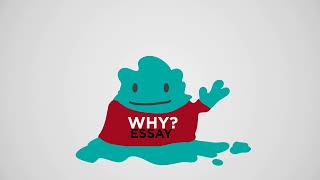
How To Answer Supplemental Application Questions: “Why Do You Want To Go Here?”
These days, most colleges and universities require supplemental applications in addition to the Common Application. You could be looking at a list of 10+ supplemental essays, so we made you a quick guide to the most common supplemental question: "Why do you want to go here?"
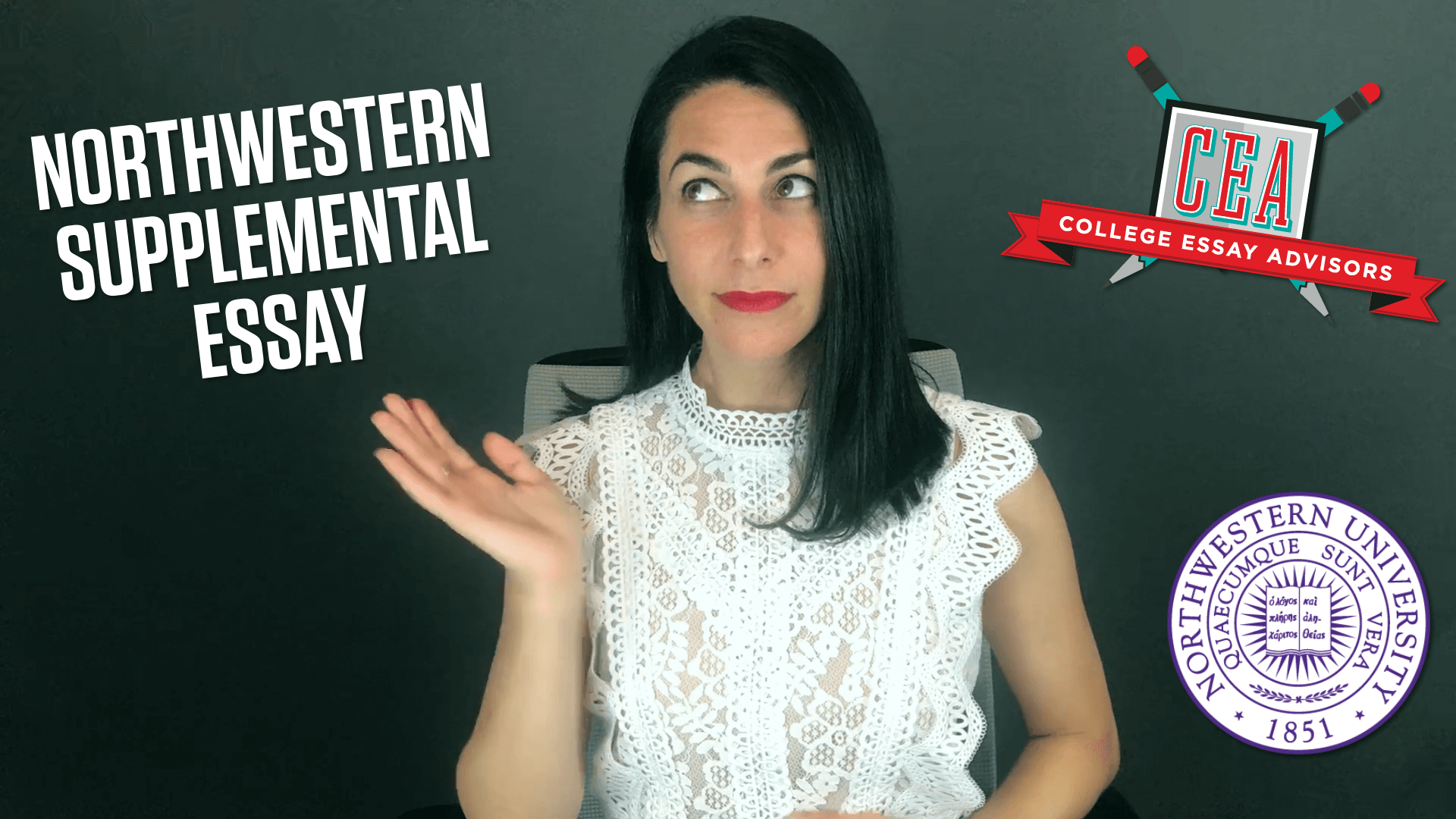
Guide to the 2018-19 Northwestern University Supplemental Essay
Are you planning to apply to Northwestern University? The Founder and Chief Advisor of College Essay Advisors, Stacey Brook, is here to give you invaluable insight into Northwestern's supplemental essay prompt so you can take advantage of this opportunity to speak to admissions in your own voice.
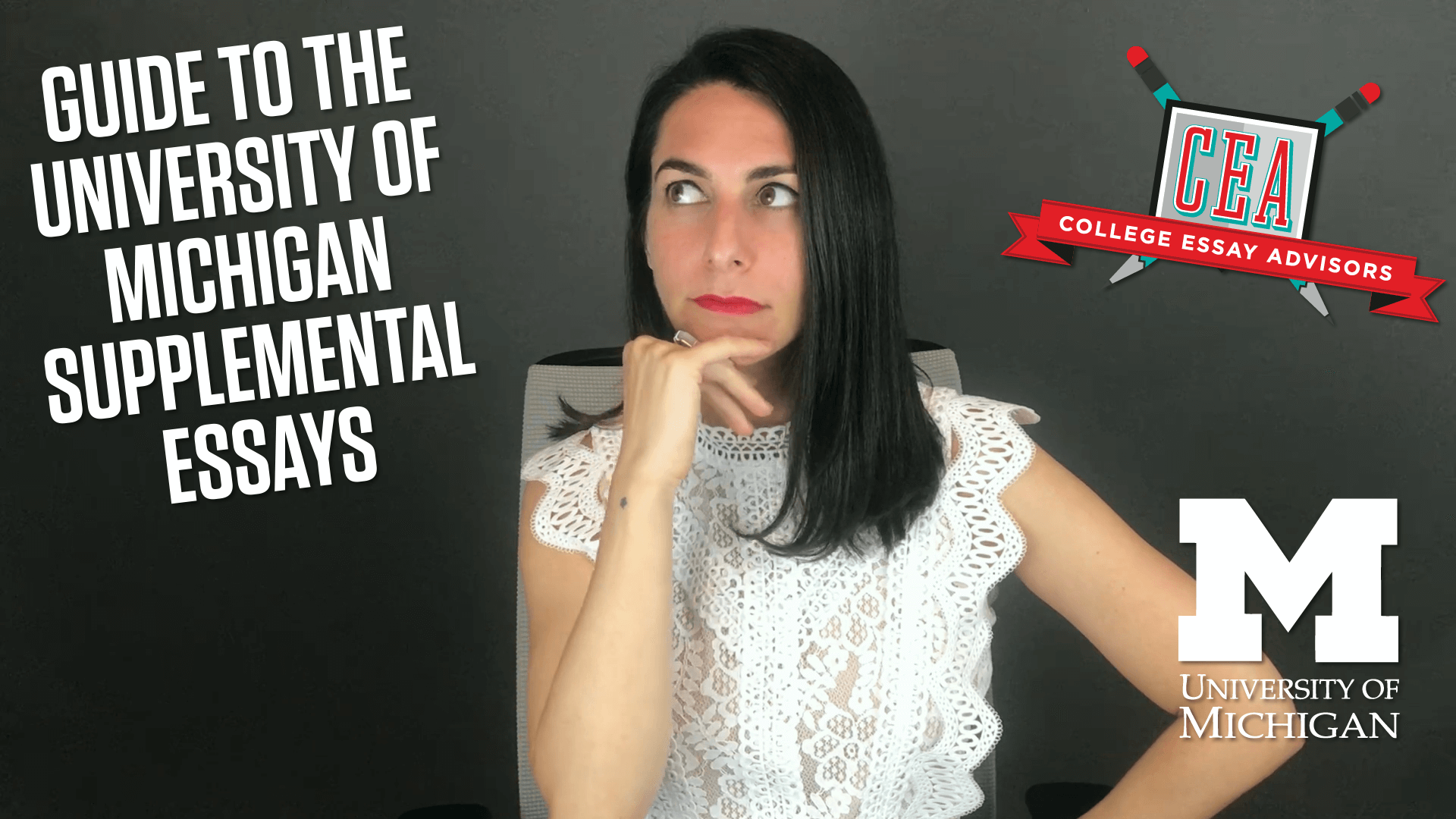
Guide to the 2018-19 University of Michigan Essays
Submitting your college application to the University of Michigan can be a real nail-biter. Michigan requires three supplemental essays. The Founder and Chief Advisor of College Essay Advisors, Stacey Brook, is here to give you invaluable insight into the prompts and the motivation behind them so you can take advantage of this opportunity to speak to admissions in your own voice.
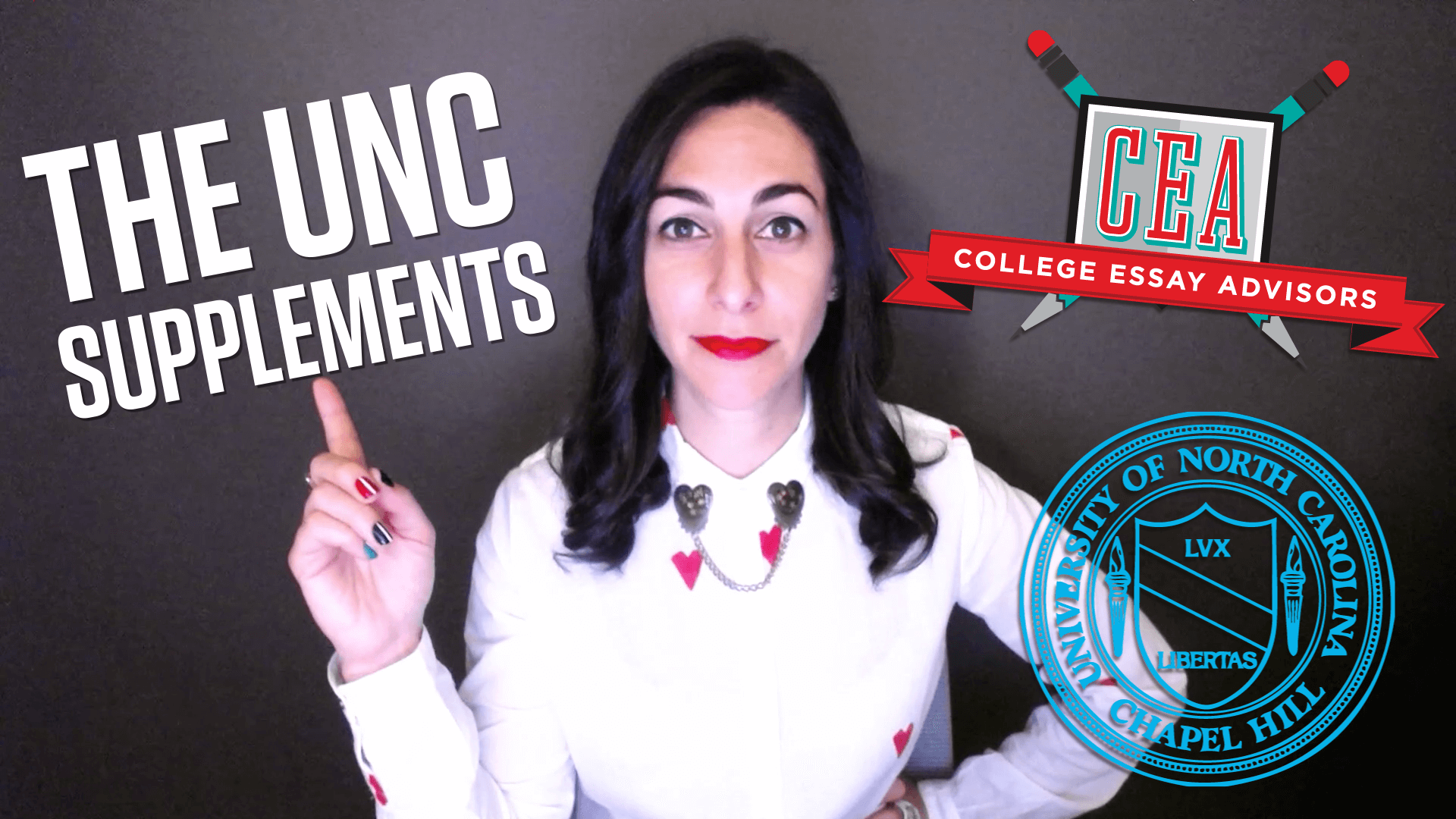
How to Get Into UNC (With a Great Essay)
UNC is well-known for being the first public university in the United States and a leader in innovative teaching strategies. The school is also known for receiving many college applications, which means it is crucial for applicants to differentiate themselves in their essays. Luckily for UNC hopefuls, the university gives students two additional supplemental prompts to respond to in order to set themselves apart from the sea of similarly qualified applicants and increase their chances of getting into UNC. College Essay Advisors Founder and Chief Advisor, Stacey Brook, is here to break down the UNC supplemental prompts so you know which essays will showcase your best attributes!
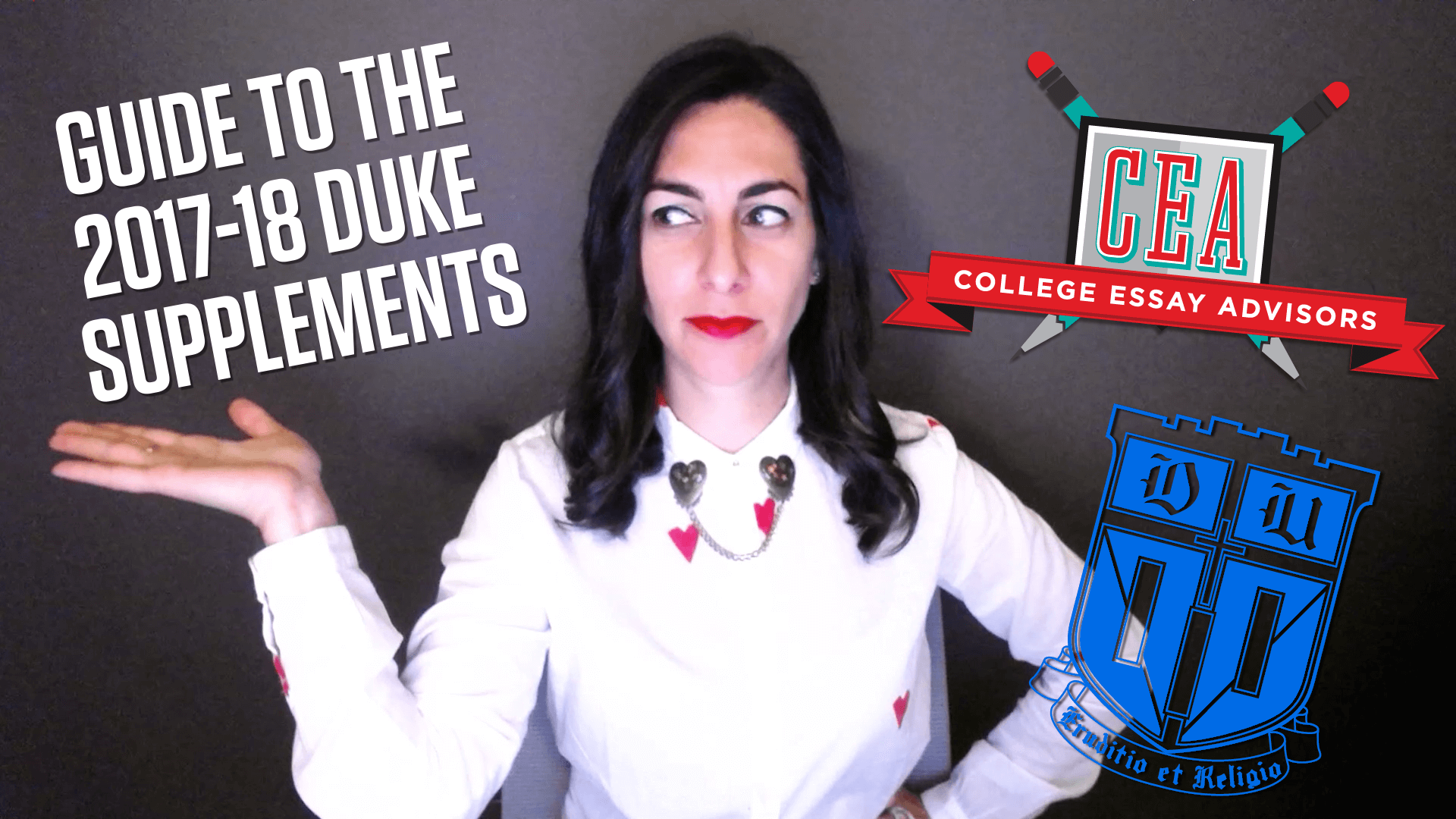
Guide to the 2017-2018 Duke University Supplemental Essays
Submitting your college application to Duke University can be a real nail-biter. Although it's probably too late now to tweak your test scores or GPA, you can make sure that your college application essays will bring you admissions success! Duke requires one supplemental short answer and gives students the opportunity to respond to two optional prompts. The Founder and Chief Advisor of College Essay Advisors, Stacey Brook, is here to give you invaluable insight into the prompts and the motivation behind them so you can take advantage of this opportunity to speak to admissions in your own voice.
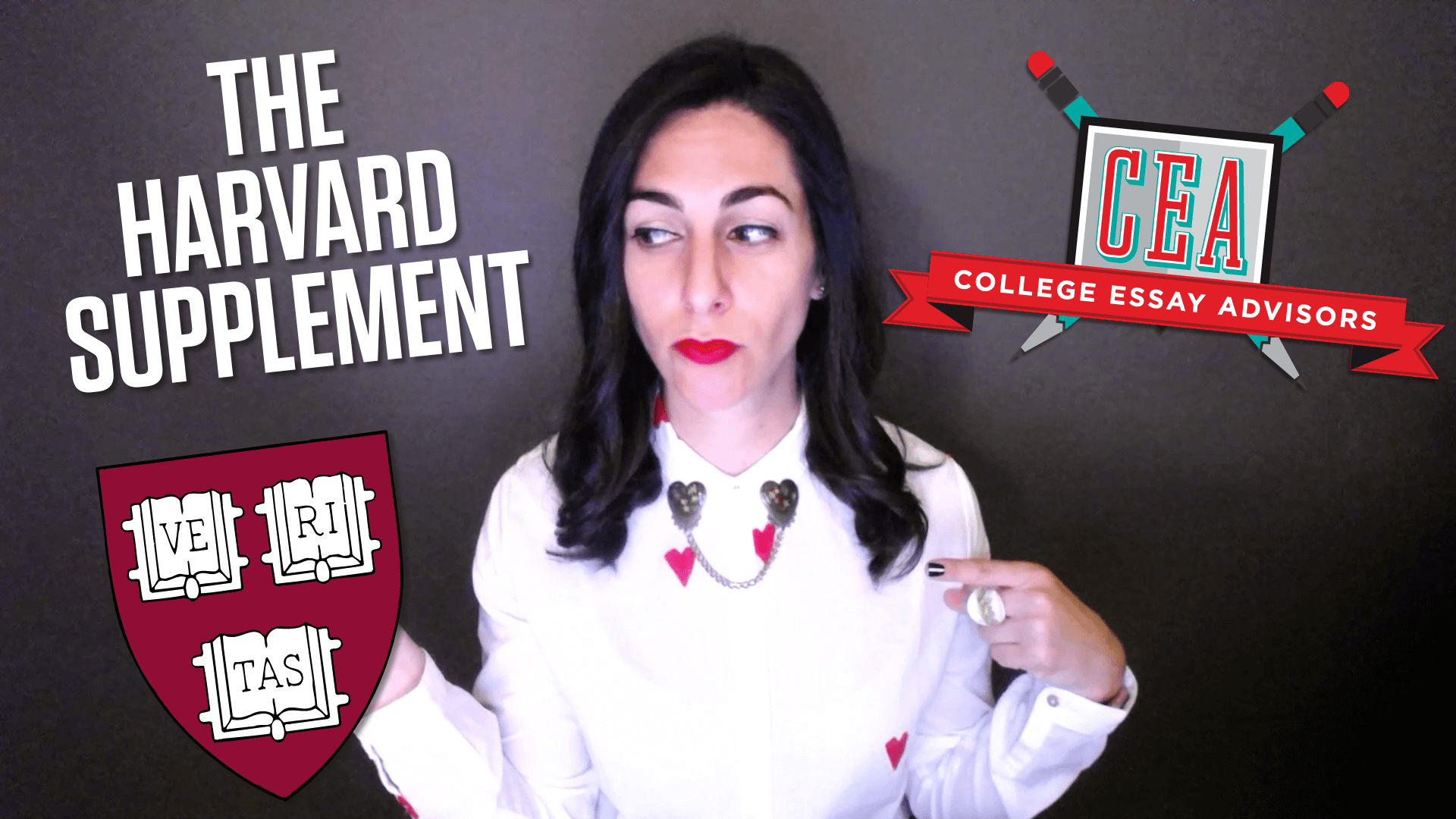
Guide to the 2017-2018 Harvard University Supplemental Essay
Harvard University is one of the most competitive schools in the country. Every year admissions officers are bombarded with applications from eager students looking to make the cut. Thus, Harvard has a supplement to give students an opportunity to distinguish themselves from the competition. Writing supplemental essays can be daunting, but luckily for you, College Essay Advisors founder (and admissions expert) Stacey Brook is here to break down the Harvard supplement so you can hit submit with confidence.
- Our Approach & Team
- Undergraduate Testimonials
- Postgraduate Testimonials
- Where Our Students Get In
- CEA Gives Back
- Undergraduate Admissions
- Graduate Admissions
- Private School Admissions
- International Student Admissions
- Common App Essay Guide
- Supplemental Essay Guides
- Coalition App Guide
- The CEA Podcast
- YouTube Tutorials
- Admissions Stats
- Notification Trackers
- Deadline Databases
- College Essay Examples
- Academy and Worksheets
- Waitlist Guides
- Get Started
American University Undergraduate College Application Essays
These American University college application essays were written by students accepted at American University. All of our sample college essays include the question prompt and the year written. Please use these sample admission essays responsibly.
Join Now to View Premium Content
GradeSaver provides access to 2359 study guide PDFs and quizzes, 11005 literature essays, 2763 sample college application essays, 926 lesson plans, and ad-free surfing in this premium content, “Members Only” section of the site! Membership includes a 10% discount on all editing orders.
- Browse College Application Essays
- Undergraduate
College Application Essays accepted by American University
The face of poverty anonymous, american university.
At the turn of the twenty-first century, the United Nations committed to eradicating poverty by the year 2025. Many foreign nations were skeptical at first and believed that such an ambitious goal was unattainable. But over the past twenty-five...
Life in a Canoe Anonymous
The thought that nearly eight hours later we would be dragging a canoe through a swamp in the dark never crossed anyone’s mind as we began to film. Clad in American Revolution-era attire, my friends and I made a short crossing of the Town River in...
My life defining moment Anonymous
My mother was diagnosed with cancer. It all started in April of my sophomore year when she complained of exhaustion, nausea, a back ache, and bad breath. I remember the day perfectly. It was Easter morning and my mom was scheduled for a procedure...
Nice, Nice, Very Nice Anonymous
Please write a personal statement.
The day Kurt Vonnegut died my friend Becca called me crying. “So it goes,” I said, and we chuckled in spite of our sadness. We had become devotees of Vonnegut since our introduction to Cat’s Cradle two years ago,...
A Newfound Nostalgia Katherine Perry
Describe an aspect of your childhood/upbringing that shaped the person you are today.
In a navy blue Volvo station wagon my entire childhood evolved. Inside, memories rested alongside the hardened French fries and squashed fruit snacks that lined...
Life Changing Experience Andrew Ahn
Smack! Within a fraction of a second, my life was changed forever. A homemade slingshot snapped and launched a funnel and water balloon at an unimaginable speed directly into my left ear. Once I’d been hit, an incredibly loud whistling screamed...
The Dojo-Kun Anonymous
“Repeat Dojo-kun. Seek perfection of character. Be faithful. Endeavor. Respect others. Refrain from violent behavior,” I call out. To my left, the line of kneeling students repeats my words. “Sensei-ni, rei,” I call to the line, and we bow to our...
Election Anonymous
It was hours before dawn when I awoke, but I was not tired. There was an almost palpable sense of apprehension and excitement spreading throughout the country, and I felt a wave of it hit me as I stepped out the door. It was dark, but the...
Ten Facts about Cindell Cindell Corbeil
1. At four, her dad left a pot of coffee on the counter (a pot meaning twelve cups) while he went upstairs to take a shower. She climbed on the counter, took out a mug and drank the entire thing by herself. When her father came back downstairs he...
Political Advocacy as an Intern Anonymous
Shark Day 2011. 100 miles from the ocean, but the fate of the top predator of the oceans, key to the health of marine ecosystems, would be decided right here in Sacramento. The role I got to play on Shark Day was cutting off the tags that said “...
My Confusing Cultural Identity Hannah Khan
“Aap meri choti shezadi ho, Hannah,” my Pakistani grandfather told me before I moved to the U.S. from Saudi Arabia. I was later able to translate his loving Urdu words into English: “You are my little princess, Hannah.” I am a...
Why I Want a College Education Hannah Khan
Looking down at the college preparation pamphlet laying on my dresser never seemed so dramatic, but with every word I read, and every page I turned, I could practically feel my future rushing towards me. As I approach the end of my high school I...
4'11 Forever Anonymous
When my mom gave birth to me, I weighed in at nine and a half pounds and measured twenty-two inches. One could say I was pretty big for a newborn, but whenever I tell this story, it is soon followed by a: “And that’s pretty much when I stopped...
The Diversity of Thought Anonymous
To the outside world, my high school is the antithesis of diverse. When my peers considered me a legitimate minority for being a redhead, I assumed “diversity” to be a dirty word within the ivory-skinned social scene. However, I discovered that...
The Backyard Anonymous
I remember when the flowers stopped blooming.
All throughout my childhood there was always one thing that would instantly make me happy. I had a beautiful backyard in my childhood home. The smell of the ripe red mango trees and the chirping of the...
Two and a Half Rotations Anonymous
Darkness permeates the early hours of a weekday morning as sleep wraps a blanket around New York City. The beaming moonlight penetrates the nighttime sky but steadily loses its strength as the first flickers of light appear. The color of the sky...
Common App Essay Anonymous
I felt an unequivocal sense of community when I gazed at my dinner plate one night at Chewonki and acknowledged that the beets, potatoes, and lettuce on my plate were plucked from the earth by me and my best friends. The hours that we expended on...
Full Color Sophia Smith
I am not a religious person. I cringe at the sound of Christian rock, think Broadway's The Book of Mormon is shamelessly hilarious, and am often scolded by my elders for flippantly exclaiming "Oh my God!" I find the following of dogmatic religious...
Familiarity Anonymous
“Entonces, Max, ¿dime porque has venido a España?”
I stared blankly at my host Dad while trying to catch a glimpse of how large his moustache really was, as he glanced over his shoulder towards me, his car narrowly avoided the oncoming traffic....
Outlets of Sound Anonymous
Every time I strap on a guitar, a joyous juxtaposition of feeling washes over me. Sweet harmony glides on a smooth, still surface of my mind, while nervous anticipation rumbles underneath in a tumultuous undercurrent. Behind the neck of this...
The 72 Point Trophy Anonymous
I have never loved math—in fact, it’s always been my least favorite subject. I spent years attempting to keep up with even basic math that most of the kids in my class found simple. Despite my struggles, I had no motivation to actually learn or...
Debating My Way to Certainty Hannah Peters
I have no idea why freshman me signed up for debate. However, I marked a check next to “DEBATE1” on my tentative schedule because it seemed like the thing nerdy kids do and I most definitely am a nerdy kid. My first time competing at a debate...
'Ohana Anonymous
My grandma thought I was going to die. By studying abroad in France, away from her care, I learned that I must be the one to make the most out of an experience, even if it’s not what I expected it to be. Coming from Hawai’i from a single parent...
The Segway to Self-Identity Anonymous
“Wissen Sie, wo die Stadtamhof Haltestelle ist?” (Do you know where the Stadamhof Station is?). The German man directed his question to me, but before I had the chance to respond, my sister interjected, “Oh no, that's just my brother.” In that...
Recent Questions about American University
The Question and Answer section for American University is a great resource to ask questions, find answers, and discuss the novel.
different forms of labour
Is there a specific book you are referring to?
Contrast Ulysses between and Telemachus on the poem 'Ulysses' by Tennyson.
Ulysses loves to travel and has loads of energy, whereas his son is content to stay at home. He is anxious to go onto his next journey; he is experienced, and he desires new experiences.
Telemachus is content to rule, just to get by and keep the...
I'm not sure how much of the author's ideas are in the story.
Tips for Writing an Effective Application Essay

How to Write an Effective Essay
Writing an essay for college admission gives you a chance to use your authentic voice and show your personality. It's an excellent opportunity to personalize your application beyond your academic credentials, and a well-written essay can have a positive influence come decision time.
Want to know how to draft an essay for your college application ? Here are some tips to keep in mind when writing.
Tips for Essay Writing
A typical college application essay, also known as a personal statement, is 400-600 words. Although that may seem short, writing about yourself can be challenging. It's not something you want to rush or put off at the last moment. Think of it as a critical piece of the application process. Follow these tips to write an impactful essay that can work in your favor.
1. Start Early.
Few people write well under pressure. Try to complete your first draft a few weeks before you have to turn it in. Many advisers recommend starting as early as the summer before your senior year in high school. That way, you have ample time to think about the prompt and craft the best personal statement possible.
You don't have to work on your essay every day, but you'll want to give yourself time to revise and edit. You may discover that you want to change your topic or think of a better way to frame it. Either way, the sooner you start, the better.
2. Understand the Prompt and Instructions.
Before you begin the writing process, take time to understand what the college wants from you. The worst thing you can do is skim through the instructions and submit a piece that doesn't even fit the bare minimum requirements or address the essay topic. Look at the prompt, consider the required word count, and note any unique details each school wants.
3. Create a Strong Opener.
Students seeking help for their application essays often have trouble getting things started. It's a challenging writing process. Finding the right words to start can be the hardest part.
Spending more time working on your opener is always a good idea. The opening sentence sets the stage for the rest of your piece. The introductory paragraph is what piques the interest of the reader, and it can immediately set your essay apart from the others.
4. Stay on Topic.
One of the most important things to remember is to keep to the essay topic. If you're applying to 10 or more colleges, it's easy to veer off course with so many application essays.
A common mistake many students make is trying to fit previously written essays into the mold of another college's requirements. This seems like a time-saving way to avoid writing new pieces entirely, but it often backfires. The result is usually a final piece that's generic, unfocused, or confusing. Always write a new essay for every application, no matter how long it takes.
5. Think About Your Response.
Don't try to guess what the admissions officials want to read. Your essay will be easier to write─and more exciting to read─if you’re genuinely enthusiastic about your subject. Here’s an example: If all your friends are writing application essays about covid-19, it may be a good idea to avoid that topic, unless during the pandemic you had a vivid, life-changing experience you're burning to share. Whatever topic you choose, avoid canned responses. Be creative.
6. Focus on You.
Essay prompts typically give you plenty of latitude, but panel members expect you to focus on a subject that is personal (although not overly intimate) and particular to you. Admissions counselors say the best essays help them learn something about the candidate that they would never know from reading the rest of the application.
7. Stay True to Your Voice.
Use your usual vocabulary. Avoid fancy language you wouldn't use in real life. Imagine yourself reading this essay aloud to a classroom full of people who have never met you. Keep a confident tone. Be wary of words and phrases that undercut that tone.
8. Be Specific and Factual.
Capitalize on real-life experiences. Your essay may give you the time and space to explain why a particular achievement meant so much to you. But resist the urge to exaggerate and embellish. Admissions counselors read thousands of essays each year. They can easily spot a fake.
9. Edit and Proofread.
When you finish the final draft, run it through the spell checker on your computer. Then don’t read your essay for a few days. You'll be more apt to spot typos and awkward grammar when you reread it. After that, ask a teacher, parent, or college student (preferably an English or communications major) to give it a quick read. While you're at it, double-check your word count.
Writing essays for college admission can be daunting, but it doesn't have to be. A well-crafted essay could be the deciding factor─in your favor. Keep these tips in mind, and you'll have no problem creating memorable pieces for every application.
What is the format of a college application essay?
Generally, essays for college admission follow a simple format that includes an opening paragraph, a lengthier body section, and a closing paragraph. You don't need to include a title, which will only take up extra space. Keep in mind that the exact format can vary from one college application to the next. Read the instructions and prompt for more guidance.
Most online applications will include a text box for your essay. If you're attaching it as a document, however, be sure to use a standard, 12-point font and use 1.5-spaced or double-spaced lines, unless the application specifies different font and spacing.
How do you start an essay?
The goal here is to use an attention grabber. Think of it as a way to reel the reader in and interest an admissions officer in what you have to say. There's no trick on how to start a college application essay. The best way you can approach this task is to flex your creative muscles and think outside the box.
You can start with openers such as relevant quotes, exciting anecdotes, or questions. Either way, the first sentence should be unique and intrigue the reader.
What should an essay include?
Every application essay you write should include details about yourself and past experiences. It's another opportunity to make yourself look like a fantastic applicant. Leverage your experiences. Tell a riveting story that fulfills the prompt.
What shouldn’t be included in an essay?
When writing a college application essay, it's usually best to avoid overly personal details and controversial topics. Although these topics might make for an intriguing essay, they can be tricky to express well. If you’re unsure if a topic is appropriate for your essay, check with your school counselor. An essay for college admission shouldn't include a list of achievements or academic accolades either. Your essay isn’t meant to be a rehashing of information the admissions panel can find elsewhere in your application.
How can you make your essay personal and interesting?
The best way to make your essay interesting is to write about something genuinely important to you. That could be an experience that changed your life or a valuable lesson that had an enormous impact on you. Whatever the case, speak from the heart, and be honest.
Is it OK to discuss mental health in an essay?
Mental health struggles can create challenges you must overcome during your education and could be an opportunity for you to show how you’ve handled challenges and overcome obstacles. If you’re considering writing your essay for college admission on this topic, consider talking to your school counselor or with an English teacher on how to frame the essay.
Related Articles
Home — Application Essay — University — American University
American University Admission Essays
Personal statement: pursuing law to advocate for justice.
Witnessing the struggles faced by marginalized individuals, I developed a burning desire to advocate for those who could not advocate for themselves. This aspiration, combined with my unwavering belief in the power of the law to bring about positive change, has led me to pursue…
XYZ University: The Ideal College for Me
When I first began my college search, I was overwhelmed by the number of options available to me. As a high school student, it is easy to get caught up in the excitement of applying to as many colleges as possible, hoping that one will…
Why Us: Crafting Authentic and Compelling Statements
Choosing a college or university to attend is one of the most important decisions a student can make. It is a decision that will shape their future, both academically and personally. With so many options available, it is crucial for students to thoroughly research and…
Pursuing an MBA for Entrepreneurial Leadership
In a world that is constantly evolving, it has become crucial for individuals to equip themselves with adaptable skills to thrive in the dynamic business environment. As a college student with a zest for personal and professional growth, pursuing an MBA is an inevitable step…
Why I Chose XYZ College
Choosing a college is one of the most significant decisions in an individual’s life. It is a choice that shapes not only their academic journey but also their personal growth and future career prospects. When I embarked on the challenging task of selecting the perfect…
Overcoming Hardships: A Deserving Candidate
I am honored to apply for the Hardship Scholarship Essay. Growing up in a low-income family, I have been exposed to various hardships that have tested my resilience and determination. Despite the numerous obstacles I have encountered, I refuse to let my circumstances define me….
How a Scholarship Will Benefit Me
With ambitious goals and limited financial resources, receiving a scholarship would have a profoundly positive impact on my academic journey, personal growth, and future career prospects. The financial support provided by a scholarship would alleviate the burden of educational expenses, allowing me to focus more…
Why I am Eager to Pursue this Internship
I am excited about the opportunity to apply for this internship and dive into the challenging world of professional experience. With a thirst for knowledge and a desire to continuously learn, this internship aligns perfectly with my career goals and aspirations. In this essay, I…
Why American University?
I am eager to pursue higher education at American University. This esteemed institution not only offers a world-class education, but also provides a diverse and vibrant campus community that fosters personal growth and intellectual development. By immersing myself in the rich academic and cultural experiences…
Modern Love: Self-Discovery and Connection
Love, a concept as old as time itself, has evolved in the modern era, just like the college experience. As a college student navigating the complexities of relationships, I have come to realize that modern love is about self-discovery, connection, and embracing the challenges and…
Get professional help in 5 minutes

— EST. 1893 —
13,858 Students
4400 Massachusetts Ave NW, Washington, DC 20016-8001
Selected filters
Universities
Related Universities
- Cornell University
- Pratt Institute
- Tulane University
- University of Chicago
- University of Colorado - Boulder
- University of Florida
- SUNY Stony Brook
- Syracuse University
- Mount Holyoke College
- Swarthmore College
We use cookies to personalyze your web-site experience. By continuing we’ll assume you board with our cookie policy .
- Instructions Followed To The Letter
- Deadlines Met At Every Stage
- Unique And Plagiarism Free

Search form
- Honorary Degree Recipients
- AUP History Timeline
- Faces of AUP - Dr. Lloyd A. DeLamater
- Faces of AUP - Marie Louise Viborel DeLamater
- Faces of AUP - Col. Karl S. Cate
- Faces of AUP - Raymond D. Flowers
- Faces of AUP - Walter J. Brennan
- Mission & Core Values
- Vision Statement
- About the President
- Past Presidents
- Board of Trustees
- PAAC Members
- Strategic Plan
- Delivering Academic Excellence
- Memberships
- Partnerships and Consortia
- Assessment Calendar
- Assessment Resources
- Steering Committee
- Institutional Research
- Retention and Graduation Rates
- Student Right to Know
- State Nonprofit Disclosures
- Publications
- Gender Equality Plan
- Undergraduate Outcomes
- Graduate Outcomes
- Online Campus Tour
- Combes Student Life Center
- Grenelle Teaching and Mentoring Center
- Quai d'Orsay Learning Commons
- The Monttessuy Center for the Arts
- Permanent Collection
- Past Exhibitions
- Call for Submissions
- Policies & Guidelines
- Majors & Minors
- Integrative Inquiry for the Global Explorer
- Critical Inquiry and Expression
- Quantitative and Experimental Reasoning
- Expression Française
- AUP Capstone
- Prior General Education Program
- Core Capabilities
- English Courses
- Program Requirements
- Career Outcomes
- Fashion Studies at AUP
- Professor Albert Cath
- MSc in Strategic Brand Management
- Find Your Thesis Advisor
- Previous Programs
- Cultural Programs History
- Study Trips
- Cultural Excursions
- Coup de Pouce
- Summer Trips and Excursions
- Cultural Program Videos
- Conferences & Talks
- Faculty Directory
- Faculty Emeriti
- Summer School
- Upcoming Events
- Coordinated Reports
- EU Horizon Grant
- OppAttune: Countering Oppositional Political Extremism
- Call for Papers - Violent Turns
- Democracy Lab (D.Lab)
- 2023 - 2024
- 2022 - 2023
- UPEL Seminar 2022-2023
- 2021 - 2022
- Inaugural Lecture
- Race and Law
- European Democratic Theory
- Digital Demos
- Democracy and Deradicalization
- Event Recordings
- What DEMOS for the 21st Century?
- 2020 - 2021
- 2018 - 2019
- 2016 - 2017
- 2015 - 2016
- 2017 - 2018
- CCDS Highlights
- An Interview with Stephen Sawyer
- Past Events
- Cahiers Series
- The Muriel Sparks' Letters
- Beckett Letters
- Music & Literature
- The White Review
- That Other Word
- An Interview with Dan Gunn
- Community: Writers, Translators & Artists
- Press Coverage
- Figuring Memory Seminar
- About the Conference
- Keynote Speakers
- Abstracts and Program
- Hotels and Restaurants
- The Archives
- Fellowships and Grants
- International Conferences & Workshops
- Study Trips & Classes
- Event Replays
- International Courts
- Terrorism Courts
- Migration Courts
- Strategic Lawyering
- "On the Edge" Project
- Justice Lab Talks
- Beetle Kinship Project
- Climate Change Project
- Podcast: Water Is Not Just Water
- An Interview with Claudio Piani
- Event Spotlight
- Digital Civil Society
- Affiliations and Partnerships
- Coexist: Culture and Conflict
- Media Art, Sound & Listening
- Sensory Studies
- Building Bridges
- Migration, Exile, Identities
- Civic Engagement in the Workplace: Working for a Better World
- Tactical Media
- Gender: Taking Action
- Mapping Power, Studying Crisis: Keeping an Eye on the World
- Art History and Fine Arts
- Computer Science, Mathematics, and Environmental Science
- French Writing Lab
- French Honor Society
- FfIRE - Forum francophone interdépartemental de recherches et d'enseignement
- Psychology, Health & Gender
- Student - Erin Garry
- Student - Linnea Wingerup
- Economics and Management Highlights
- History and Politics
- Academic Policies and Procedures
- Executive Committee of the Faculty Senate
- Committee for Rank and Promotion
- Curriculum Committee
- GLACC Committee
- Ethics Committee
- Institutional Review Board
- Council of Chairs
- Graduate Program Review Board
- Council of Directors of Research Centers
- Appeals Committee
- Budget Committee
- Faculty Support
- Curricular Proposal Documents
- Department Chair and Graduate Program Director Resources
- Academic Calendar
- Information for Faculty
- Information for Students
- Peer Tutoring
- Writing Resources
- Writing in the Disciplines
- ...And More
- Returning Student Registration
- Scheduling Information
- Request Form
- Graduate Thesis Information and Forms
- External Course Pre-Approval
- Room Reservation
- Transferring out
- FERPA Information
- Registrar’s Office: FAQs
- Teaching Resources
- Center in Action
- Employer Network
- Services & Accommodations
- Documentation & Registering
- Policies & Procedures
- Faculty Involvement
- Resources & Forms
- Frequently Asked Questions & Definition
- Quai D'Orsay Learning Commons
- Paris as Classroom
- Internship Spotlights
- Degree Requirements & Worksheets
- Academic Advisor Assignments
- Forms, Information and Useful Links for Students
- First Year Abroad and Visiting Students
- Transfer Students
- Bachelor's/Master's Program
- External Language Study
- GPS & Academics
- Design Thinking Workshops
- GPS Panel Presentations
- Requirements
- Pre-Approval Paperwork
- Career & Internship Planning
- Global Talent Profile
- Global Mentoring Program
- Fellowships, Scholarships & Grants
- Career and Internship Services
- Job and Internship Databases
- Global Professional Skills (GPS) Program
- Internship Forms for Students
- Career and Internship Resources for Students
- ACE Newsletter Archives
- Career Services
- Mentor an AUP Student
- Job Databases
- Engage With AUP
- How You Can Help
- Global Talent Portal
- Share a Job or Internship Opportunity
- AUP Internship Program
- Get Involved With AUP
- Faculty Collaboration
How to Apply
- Estimated Living Expenses
- IB Diploma Scholarships
- Course Transfer Tool
- Credit Transfer
- Part-time Studies
- Homeschooled Students
- Deferring Your Offer
- 38 Credit Programs
- 42 Credit Programs
- 48 Credit Programs: MADIL
- 48 Credit Programs: MAGC
- 48 Credit Program: MSIM
- 48 Credit Program: SBM
- 62 Credit Programs
- Financial Aid
- French Immersion
- Creative Writing
- Tuition & Costs
- Summer Trips & Excursions
- Summer Housing
- Summer Calendar
- Prepare for Arrival
- How to Apply: Gap Year Visitor
- How to Apply: Independent Study Abroad
- How to Apply: Study Abroad Partner
- Veterans Scholarship
- Applying for Benefits
- Yellow Ribbon Program
- Request Information
- Find Your Counselor
- Counselor Advisory Board
- Admissions Calendar
- Quai d’Orsay Learning Commons
- La Tour-Maubourg Administration Building
- Passage Landrieu
- Saint Dominique
- Visit the Campus
- Online Application
- Validation des Acquis de l'Experience
- Your Housing Options
- AUP Housing
- Housing Database
- Searching on Your Own & Housing Resources
- Meet the Team
- Procedures and Policies
- IT Services
- Campus Security
- Emergency Services
- Student Leadership Office
- Staff and Faculty Advisors to Student Senate
- Minutes & Reports
- Student Advisor Program
- Sophomore Mentoring Program
- Competitive Sports
- Clubs & Classes
- Gym Memberships
- Student Organizations
- Print Media
- Digital Media
- Broadcast Media
- Audio Media
- Service Organizations
- Student Leadership Awards
- Safety in Paris
- Student Jobs
- Transportation
- Food & Shopping
- Inexpensive Entertainment
- Settling In
- Leaving Paris
- Student Development Help Desk
- Undergraduate Tuition & Fees
- Graduate Tuition & Fees
- Payments and Procedures
- Tuition Refunds
- U.S. Tax Information
- Taxes for non EU packages
- Apply for Slosberg Travel Grant
- Sin-ming Shaw Award for Excellence
- Third-Party Payments / 529 Plans
- First-year Students
- Under-18 Students
- Returning Students
- Visiting Students
- Graduate Students
- Summer Students
- Part-Time Students
- EU Students and Dual citizenship (non EU - EU)
- Forms & Resources
- Student Grievance Procedure
- Accessibility FAQs
- Diversity Council
- Reimbursement
- Hospitalization
- Useful Documents
- Finding Medical Providers
- Immunization
- Counseling Program - Policies, Procedures and Confidentiality
- Suicide Prevention
- Sexual Misconduct Prevention
- Alcohol and Substance Abuse
- Support for our Diverse Communities
- Time Management
- Digital Student Handbook
- Commencement Ceremony
- Graduation Gala
- Graduation FAQs
- ABOUT SCOS 2023
- Arrival and Check-in
- Conference Committee
- Registration
- Presidential Lecture Series
- About the 2022 Fashion Education Conference
- Fashion Education Resources
- Fashion Education Podcast
- Demos21 Lecture Series
- The Digital Multilogue on Fashion Education 2020
- Paris Centennial Conference
- Jessica Newman '01
- Craig Brown G'11
- Wanja Laiboni '07
- The Quai d'Orsay Learning Commons
- Student Scholarships
- The Cultural Program
- Get Involved
- Career Mentors
- Parent Ambassadors
- Jasmine Paul '18
- Lavinia Stanescu
- Slosberg Travel Grant
- Faith Toran G'18
- Professor Tresilian
- Clark Marchese
- Housing Requirement
- How to Register
- Payment and Refund Policies
- AUP Annonciation
- AUP Champs Élysées
- AUP Heliopolis
- AUP Jouffroy d'Abbans
- Citadines Aparthotel
- Studelites Le Marechal
- YouFirst Tolbiac
- Housing Prices
- How to Register for Housing
- Flexliving Independent Apartments
- YouFirst La Defense
- IRIS Project
- Get started
- Service Catalog
- Security, policies and procedures
- Get IT Help
- Alumni Benefits
- Alumni Stories
- Career Resources
- Admitted Students
- Current Students
- Faculty & Staff
- Prospective Students
- Parents & Families
- De-Radicalisation in Europe and Beyond
- DEMOS21 Lecture Series
- Courts and Global Challenges
- Archived Projects
- Administrative Forms
How to apply for undergraduate studies
Our application process is simple and straightforward. Submit your information, send us your supporting documents, and you’ll receive your admission decision.
If you’re interested in spending one or two semesters at AUP as a visiting student, submit a Study Abroad application instead .
Application deadlines
We review completed applications in rounds throughout the year. You’re strongly encouraged to apply by 1 February (Priority Admission).
Fall Admission
Spring admission, application requirements.
An application to The American University of Paris requires several supporting documents and sometimes tests. Most requirements can be uploaded directly in your online application.
Online application form
Personal statements.
- Extracurricular activities and work experience
Two letters of recommendation
- Official transcripts
English language test
- SAT/ACT test scores (optional)
We offer students two options to apply to the University, both of them online:
- AUP Application Portal - €50 non-refundable application fee
- Common Application - $50 non-refundable application fee
We ask that you include both a personal statement and a supplemental essay in English as part of your application.
The 650 word personal statement prompts listed below match the Common Application, If you are completing the Common Application, you will complete the personal statement, as a part of the main application, and the supplemental essay (in the additional questions section of the Common Application specific to AUP).
If you are using the AUP Application Portal, you can upload both the personal statement and the supplemental essay as one document to your online application.
The personal statement prompts this year are listed as follows:
- Some students have a background, identity, interest, or talent that is so meaningful they believe their application would be incomplete without it. If this sounds like you, then please share your story.
- The lessons we take from obstacles we encounter can be fundamental to later success. Recount a time when you faced a challenge, setback, or failure. How did it affect you, and what did you learn from the experience?
- Reflect on a time when you questioned or challenged a belief or idea. What prompted your thinking? What was the outcome?
- Describe a topic, idea, or concept you find so engaging that it makes you lose all track of time. Why does it captivate you? What or who do you turn to when you want to learn more?
- Discuss an accomplishment, event, or realization that sparked a period of personal growth and a new understanding of yourself or others.
The AUP supplementary essay enables us to get an insight into your motivations to come and study in a uniquely international setting, surrounded by a community of students interested in the world around them. This is a shorter essay to highlight your own academic, career and personal goals. The 300-word supplemental essay prompt is: “What is it about The American University of Paris that has led you to apply here and how will studying here fit with your educational and personal goals? (300 Words)”
Extracurricular activities & work experience
Using the AUP Application Portal you can submit your list of activities and work experience in .pdf format. In the Common Application use the “Extracurricular Activities & Work Experience” section.
Online forms for your recommenders (including at least one from a teacher or professor) are provided in both the AUP Application Portal and Common Application . In the Common Application, first-year applicants use the School Report and the Teacher Evaluation ; transfer applicants use two Instructor Evaluations .
Homeschooled applicants: please do not present letters written only by people in your household. We need additional objective evaluations from educators who have interacted with you, for example someone who has known you in a professional context, such as a part-time job or volunteering setting.
Veteran & Military Applicants : We welcome letters of recommendation from Commanding Officers as they make ideal recommenders.
Official transcripts from the past three years of schooling
These transcripts must be in English or French, or be accompanied by a certified translation.
Transfer applicants : you need to submit individual transcripts for every college or university attended. If you have completed fewer than the equivalent of 6 full-time US-college semesters, you must also submit your secondary school transcript.
Homeschooled applicants: you must provide detailed transcripts similar to those provided for traditionally-schooled students for the past four years. If you did attend high school or university at any time, please have the institution send your transcript for coursework completed. In addition, please provide, written verification from the appropriate school district or authority, or by the state Department of Education indicating that the homeschooled education meets the equivalency to what is taught in the high school district and/or what is required in the student’s state.
Students must demonstrate sufficient English fluency. If English is not your first language, we require that you submit one of the following tests and that the results be no more than two years old.
- TOEFL – Internet Based Test (ibT) minimum score: 88. To have your results sent directly, use our institutional code 0866.
- Cambridge English - First, Advanced, or Proficiency level, minimum score: 176.
- TOEIC - Listening and Reading, minimum score: 810. To have your results sent directly, use our institutional code 0866.
- IELTS - Academic Option, minimum score 6.5.
The English language test requirement is waived if you meet one of the following criteria:
- You have been living in Australia, Canada, Ireland, New Zealand, South Africa, the United Kingdom or the United States where you have recently studied in an all-English curriculum for at least two consecutive years.
- You have studied for at least four years in an all-English curriculum in any other country, although we continue to reserve the right to request English test results from any applicant.
- You will complete or have completed the International Baccalaureate Diploma Programme or A Levels and will be able to submit your official IB Diploma before the start of the semester.
- The only program you are applying for is AUP’s French Immersion summer program .
We reserve the right to request English test results from any applicant.
Covid-19 Special Measure: As a result of the disruption to English Language Testing caused by Covid-19, AUP is trialing the acceptance of the Duolingo Language Test. For undergraduates we require 115+. The test must have been taken after 20 July 2020 and include sub-scores for the 4 component elements. AUP reserves the right to ask for an alternative English Test.
SAT/ACT test scores
AUP is a test optional university and as such we allow applicants to decide themselves whether or not their SAT or ACT results accurately reflect their academic ability and potential. If you are a first-year applicant and you have already taken SAT or ACT examinations, you may voluntarily submit your official scores and they will reviewed along with other indicators of academic ability. Our SAT institutional code is 0866 and our ACT institutional code is 5295.
Homeschooled applicants: Test scores (SAT or ACT or GED) are required of all home-schooled applicants. For SATs taken prior to 2016, please include your score from the SAT Writing section.
Quick Links
- Mailing List Sign Up
- Online Information Sessions & Events
Address for official documents
Submit official transcripts from your school or paper recommendation letters using the following postal address:
The American University of Paris Admissions Office 5, Boulevard de La Tour-Maubourg 75007 Paris France
In North America you may use the address below, but note that it will take 1-3 extra weeks for your documents to reach the Admissions Office in Paris:
The American University of Paris 700 North Colorado Boulevard #502 Denver, CO 80206 USA
- Mentions Légales
AU Honors Homepage
You are here: american university learning communities au honors homepage.
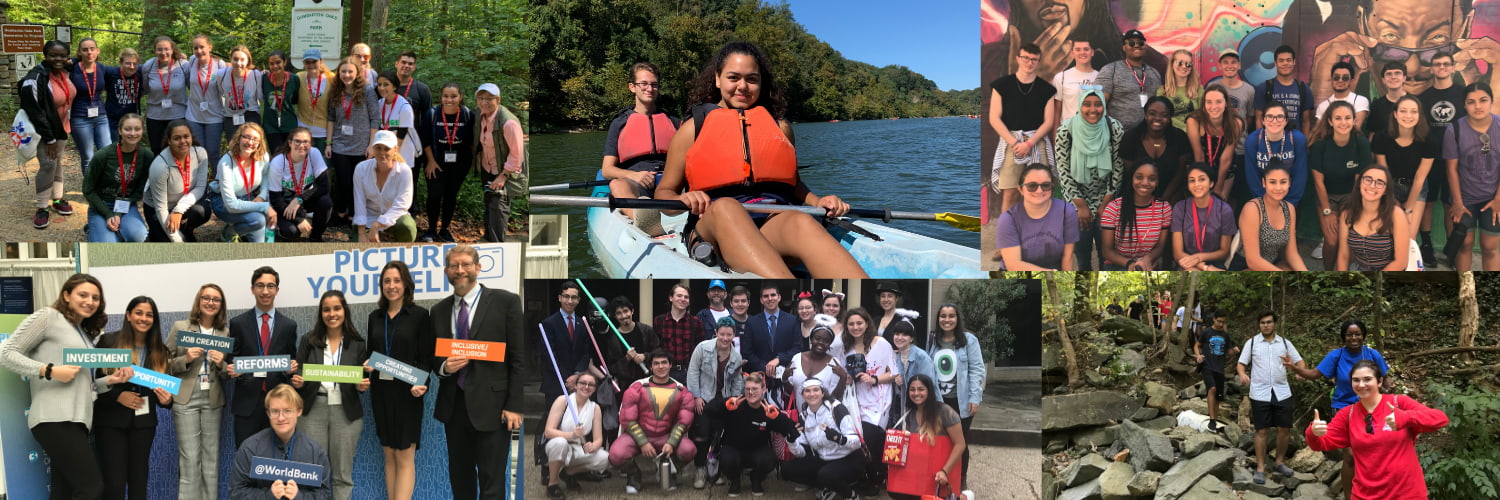
Dare to know AU Honors Program
202-885-6194
Contact: Laura Lannan Program Coordinator, AU Honors
Anderson Hall, Room 103 on a map
Back to top
Welcome to AU Honors
We begin in wonder, journey in curiosity, and ultimately, dare to know. The AU Honors Program brings together a diverse group of students and faculty to engage in experiential and inquiry-driven learning. Propelled by curiosity and a desire to take risks, our students endeavor to push the bounds of the known and the knowable throughout their academic journeys. The program supports students as they dare to contribute to knowledge, creative expression, and meaningful change.
Why AU Honors
AU Honors fosters critical thinking, intellectual growth, and readiness for careers or graduate school. Beyond the carefully structured first year, each semester in Honors prepares students by building skills and knowledge for the next. This pathway to learning prepares students for increasingly independent exploration and project-based coursework anchored by ongoing support of honors faculty and staff. In addition to rigorous and enriching courses, other program benefits include:
- Receive priority when you register for classes
- Partner with faculty on a first-year research project
- Reside with highly motivated peers on the AU Honors floor during your first year
- Travel for experiential learning opportunities in the US and abroad
- Collaborate with distinguished faculty as a paid undergraduate research assistant
- Apply for national merit awards while receiving intensive, personalized guidance
- Volunteer to mentor first-year AU Honors students
- Access special funding for research activities and creative projects
- Gain leadership skills through many paid leadership opportunities within the program
- Compete in a juried capstone conference

IMAGES
VIDEO
COMMENTS
In June 2023, the United States Supreme Court struck down the use of affirmative action in college admissions. Nevertheless, the ruling allows colleges to consider race on an individual basis, which is one reason many schools are now including diversity prompts as one of their supplemental essay prompts.
Application Checklist. Common Application or Coalition Application, including essay. Submit the Nonrefundable $75 application fee or application fee waiver; High School Transcript(s) SAT and/or ACT Scores (if not Test-Optional) Applicants may self-report their SAT or ACT scores on their admissions application (if not test-optional).
American University 2023-24 Application Essay Question Explanations. The Requirements: 1 essay of 150 words. Supplemental Essay Type (s): Community. At American University, Inclusive Excellence is a cornerstone of the academic experience for our students, and we deeply value the learning that is inspired by the diversity of backgrounds and life ...
Mistake #1: Writing about the school's size, location, reputation, weather, or ranking. Mistake #2: Simply using emotional language to show how you fit in. Mistake #3: Messing up the mascot, stadium, team colors or names of important people/places on campus. Mistake #4: Restating the language on brochures or the website.
If you prefer to use a courier service, keep your tracking number, and send your supplemental application materials to: Undergraduate Admissions Office of Enrollment 4801 Massachusetts Ave., NW STE-218 Washington, DC 20016-8001 USA Tel: +1-202-885-6000. Questions? Contact [email protected]. The Application Form. Complete the application ...
American University Acceptance Rate: 36%- U.S. News ranks American University as a more selective school. American University Essay Requirements: 1 (~ 150 word) essay. American University Application: Students must submit their American University application through the Common Application. Make sure to have all of your American University ...
He is a co-author of the books The Enlightened College Applicant (Rowman & Littlefield, 2016) and Colleges Worth Your Money (Rowman & Littlefield, 2020). American University requires applicants to answer one 150-word "Why Us?" supplemental essay prompt. We offer writing tips in this article.
Please review the three admission essay questions below. When you are ready to begin your essays, use the PDF template at the end of this page or respond to each question in a single word document and save as a PDF. Upload your completed PDF to the SIS Statement of Purpose Supplemental Item within your application portal.
American University is a competitive private research university located in the heart of Washington, DC. For students interested in leadership, politics, and public service, American is a top choice university. The best way to make your application stand out from the DC-loving crowd is through stellar essays.
Use this information to paint a detailed picture for admissions of how American University can help you get where you want to go and, ultimately, why it's the perfect fit for you! Please note: the information below relates to last year's essay prompts. We are going to update this guide with the prompts for 2021-22 as soon as they become ...
How to Write Fantastic Application Essays for the University of Georgia. The University of Georgia asks students to write two application essays of 200-300 words. The first prompt is set in stone, and for the second essay, applicants can choose one of four prompts to respond to [prompts below].
Join Now to View Premium Content. GradeSaver provides access to 2355 study guide PDFs and quizzes, 11005 literature essays, 2762 sample college application essays, 926 lesson plans, and ad-free surfing in this premium content, "Members Only" section of the site! Membership includes a 10% discount on all editing orders.
Follow these tips to write an impactful essay that can work in your favor. 1. Start Early. Few people write well under pressure. Try to complete your first draft a few weeks before you have to turn it in. Many advisers recommend starting as early as the summer before your senior year in high school.
Applicants must meet the minimum university requirements for pre-college study: high school diploma; GPA: 3.2 (minimum) Admissions decisions are based on your: application; transcripts from all institutions attended (high school and any college) 2 essay questions (500-words each) 2 letters of recommendation (academic advisor + 1 other)
This college essay tip is by Abigail McFee, Admissions Counselor for Tufts University and Tufts '17 graduate. 2. Write like a journalist. "Don't bury the lede!" The first few sentences must capture the reader's attention, provide a gist of the story, and give a sense of where the essay is heading.
College essay example #1. This is a college essay that worked for Harvard University. (Suggested reading: How to Get Into Harvard Undergrad) This past summer, I had the privilege of participating in the University of Notre Dame's Research Experience for Undergraduates (REU) program .
Writing an admission essays for American University is always quite a job. So, we prepared free application essays 📝 to make your life easier.
Common Application, including the application essay. ... American University Undergraduate Admissions 4400 Massachusetts Avenue, NW Washington, DC 20016-8001. Additional Documents. One letter of recommendation is optional for transfer students. You can select and assign at least one Academic Evaluator within the Common Application.
An application to The American University of Paris requires several supporting documents and sometimes tests. Most requirements can be uploaded directly in your online application. ... We ask that you include both a personal statement and a supplemental essay in English as part of your application. The 650 word personal statement prompts listed ...
Application Essay Prompts. Question 1 Discuss a significant issue in your home country about which you are passionate and describe how you would use the education you obtain at our institution, American University (AU), Washington, DC, to create positive civic and social change once you return home. (250 words or less) Question 2
The AU Honors Program brings together a diverse group of students and faculty to engage in experiential and inquiry-driven learning. Propelled by curiosity and a desire to take risks, our students endeavor to push the bounds of the known and the knowable throughout their academic journeys. The program supports students as they dare to ...